21 AUGUST

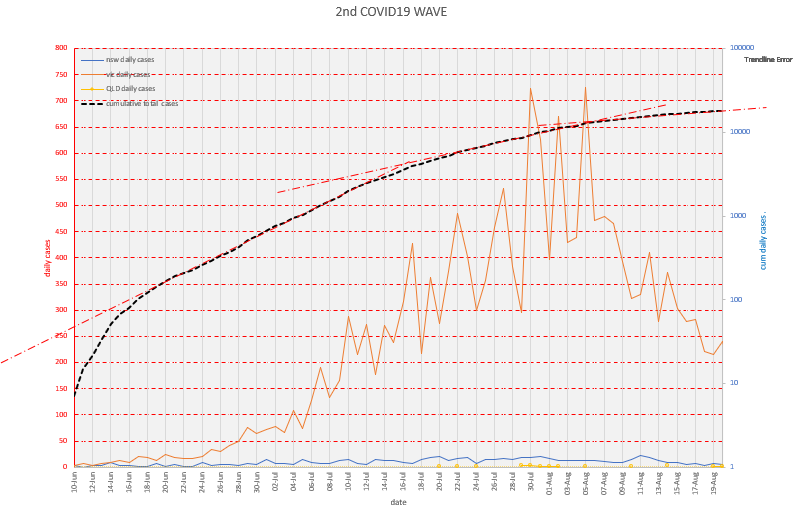
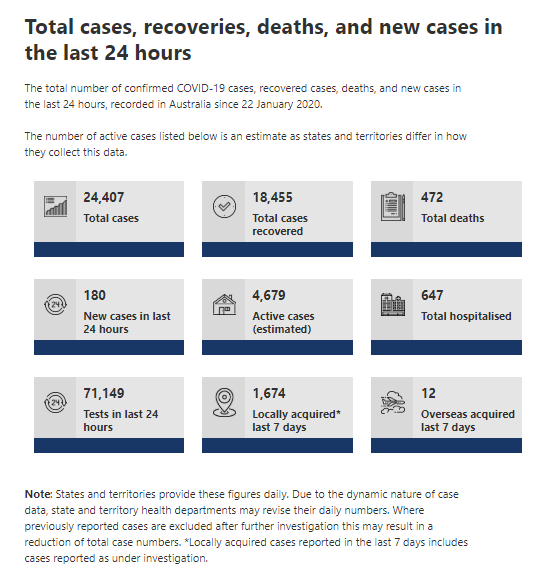
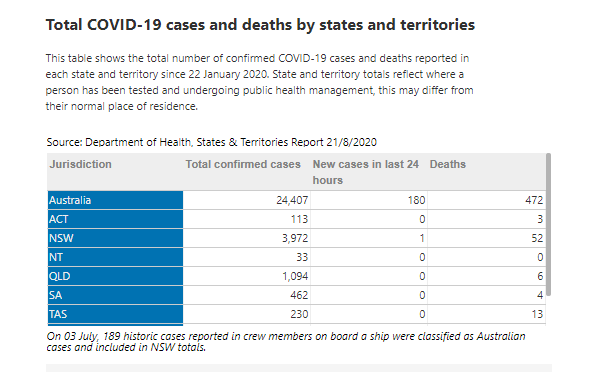
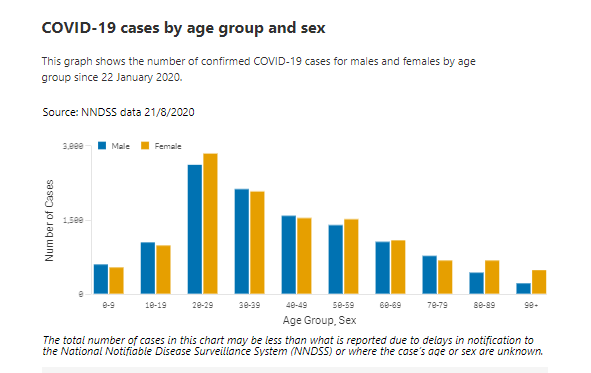
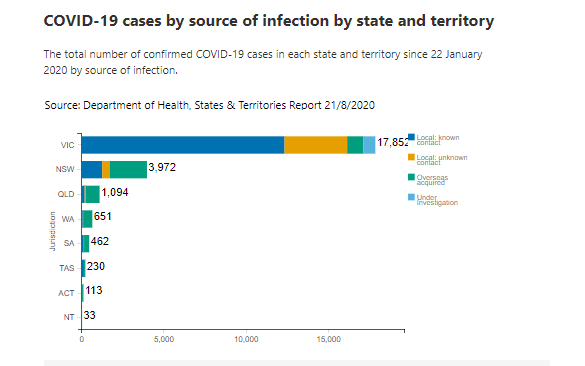
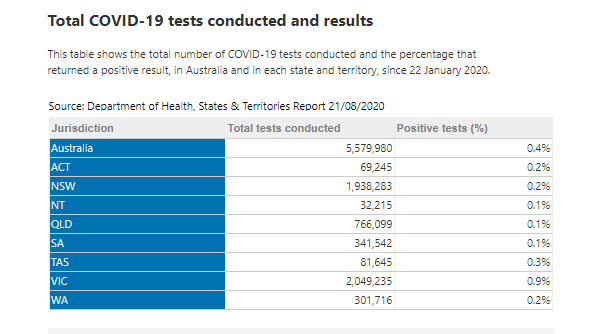
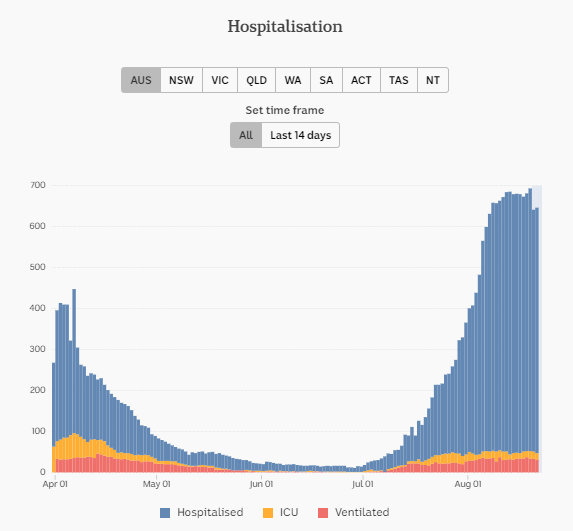
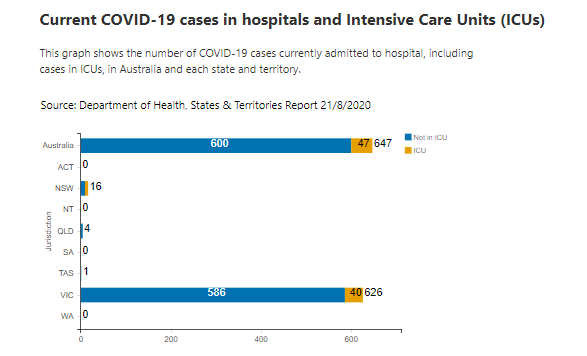
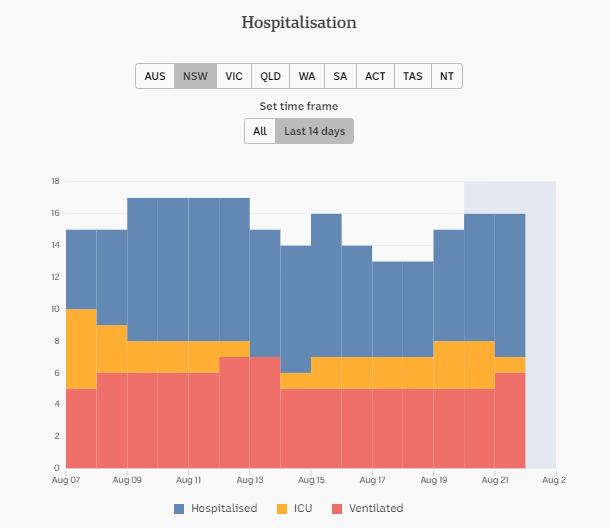
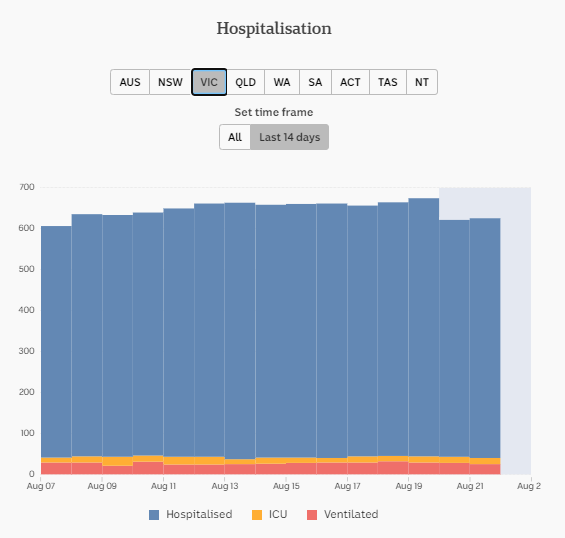


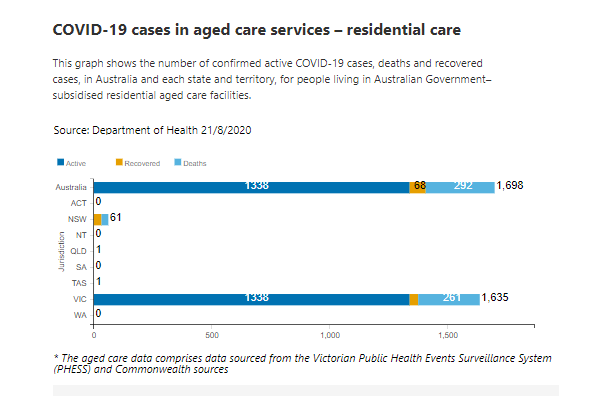
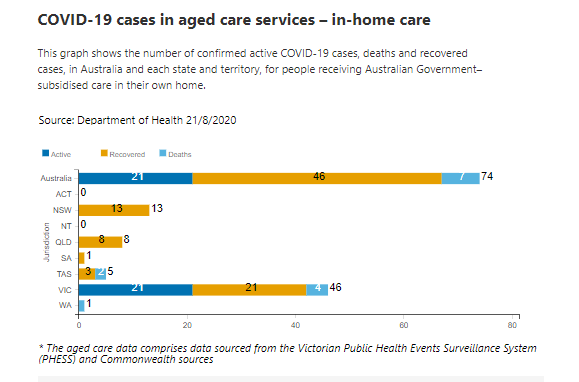
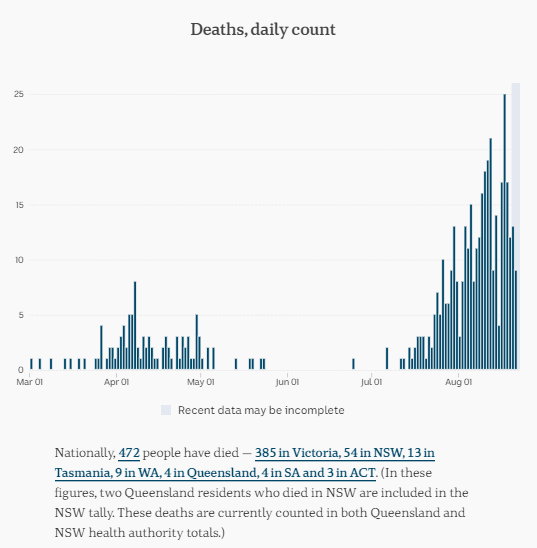
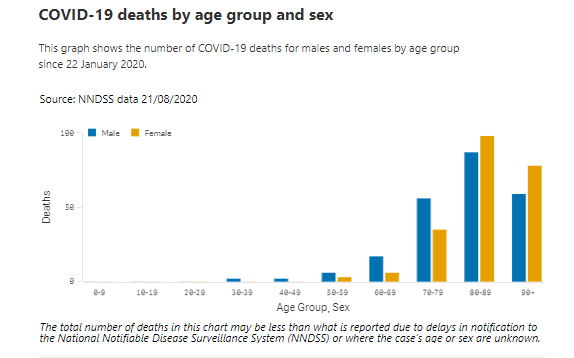
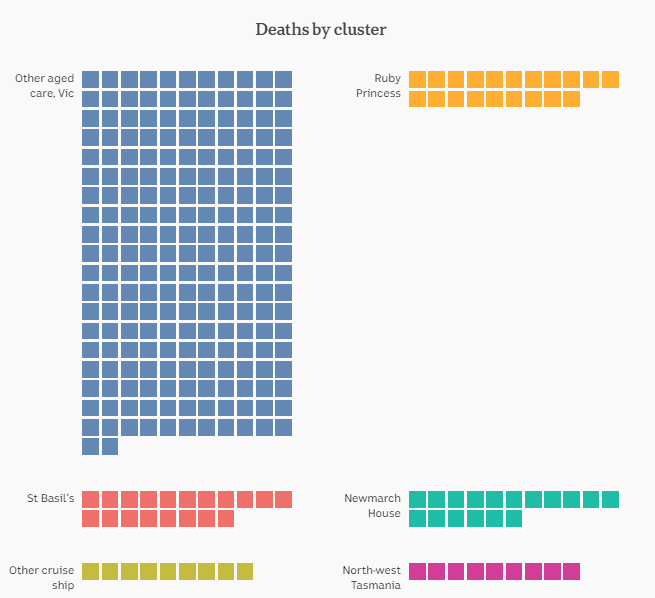
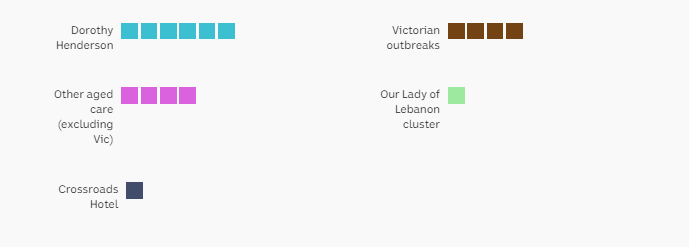






































https://www.msn.com/en-au/news/melbourne/doctors-and-nurses-to-trial-hydroxychloroquine-against-covid-19-at-melbourne-hospital/ar-BB18cOBoHealthcare workers at St Vincent's Hospital Melbourne will be taking part in a clinical trial to investigate whether controversial drug hydroxychloroquine can protect doctors and nurses while they treat COVID-19 positive patients.
The trial – nicknamed "COVID SHIELD" – will involve half of the participant group being given hydroxychloroquine tablets, while the other half will receive placebo tablets over the course of four months.Hydroxychloroquine is commonly used in the treatment of lupus and rheumatoid arthritis, and first received attention after US President Donald Trump spoke of it being a treatment for COVID-19.
The Therapeutic Goods Administration has said the drug poses "well-known" risks to patients and should not be taken outside of clinical trials.
"However, these medicines pose well-known serious risks to patients including cardiac toxicity (potentially leading to sudden heart attacks), irreversible eye damage and severe depletion of blood sugar (potentially leading to coma)," the TGA said in a statement.
"Given the limited evidence for effect against COVID-19, as well as the risk of significant adverse effects, the TGA strongly discourages the use of hydroxychloroquine outside of its current indications at this time other than in a clinical trial setting or in a controlled environment in the treatment of severely ill patients in hospital."
9News understands that as many as 116 doctors and nurses at St Vincent's in Melbourne have been infected with COVID-19.
There are currently more than 700 active cases of the virus in healthcare workers in Victoria.
Associate Professor Mandana Nikpour, one of COVID SHIELD's lead principal researchers, said she has been inspired by the support she has received.
"I have been really touched and inspired by all the support we've had across the various units and the hospital, and the opportunity to work with the Intensive Care Unit research team has been incredible," Associate Professor Nikpour said.
"I feel privileged to have the opportunity to collaborate with Professor John Santamaria, head of ICU, and his research team, especially given the pivotal role that our Intensive Care Unit is playing in the management of our sickest COVID-19 patients."
https://www.msn.com/en-au/news/australia/hotel-quarantine-officer-not-trained-in-ppe-before-overseeing-scheme/ar-BB18e2jQA hotel quarantine officer claims he received diversity training but no guidance on personal protective equipment
Luke Ashford, a senior employee with Parks Victoria, was seconded on May 25 to work as an authorised officer across seven different quarantine hotels.
He told state's hotel quarantine inquiry he completed an hour of 'equity and diversity training', was given a 10-minute handover before the start of his first shift and a 'draft document' outlining what his role entailed.
But he received no training in infection control or how to use personal protective equipment.
'Everything I know about COVID-19 is from Channel 9 and the ABC,' he wrote in his statement. He quit on June 18, angered by the lack of infection control among staff.
'I did not feel that this was a safe environment to work in and I was concerned for my health and the health of my family,' he said.
'I didn't want to be the guy who shut my daughter's school down.'
The inquiry also heard from a security supervisor who saw guards, nurses and departmental staff working across a number of sites.
'It goes without saying. If you're trying to isolate movement of a virus, then that is not a way to do it,' he told the inquiry. The supervisor, who cannot be named for legal reasons, worked at the Crowne Plaza and Pullman hotels between April 9 and July 4.
He said he was 'relieved' when shifts were no longer given to two or three guards he constantly 'had to keep an eye on' to ensure they didn't leave their posts, fall asleep or spend too much time on their phones.
He had assumed they were fired, but later discovered they had been moved to a different hotel.
The supervisor, who was subcontracted by Wilson Security, said he was concerned by the amount of 'subcontracting on top of subcontracting'.
'The guards at the bottom are getting paid hardly anything,' he wrote in a statement to the inquiry.
'They are not going to be as conscientious and it is those guards that are more likely to work at different hotels, be on their phones or fall asleep.'Liliana Ratcliff and her family returned from Spain on May 6 and were taken to the Stamford Plaza, which along with the Rydges on Swanston can be linked to 99 per cent of the state's current COVID-19 cases.
The health practitioner of 20 years described the security guards at the hotel as 'very lovely people' who seemed to not understand infection control.
She said nursing staff didn't change gloves between COVID-19 tests, while a staff member came to her hotel room to deliver a Mother's Day gift without a mask.
'We are more likely to catch COVID-19 by being locked in a hotel with other returned travellers than if we were allowed to quarantine at home,' Ms Ratcliff wrote in a complaint to the Department of Health and Human Services.
She is yet to hear back from the department.
Sue and Ron Erasmus, who stayed at the same hotel, raised similar concerns at the inquiry.'We were pretty much sitting ducks,' Ms Erasmus, a trained nurse, said.
The couple and their two children had returned from South Africa on May 1, following the death of Mr Erasmus's father.
Mr Erasmus spiralled into a depression during their 14-day quarantine but when trying to seek mental health support he was put through to different staff who were unable to help.
'It felt like I lost my dad 14 times in that process,' he said.
https://www.msn.com/en-au/news/australia/one-melbourne-family-already-decorated-their-house-in-christmas-lights/ar-BB18df8bMelbourne's horror coronavirus lockdown has become too miserable to bear for one family who decided to brighten their spirits by decorating their home with Christmas lights - four months early.
The homeowners lit up their one-storey house with the roof, windows and front all sporting flashing decorations - and their efforts have provided a much-needed lift to Victorians as they suffer through Stage Four restrictions.
In any other year a home boasting Christmas lights in August would be widely criticised but as Melbourne battles through its second wave of coronavirus, many have said it's the perfect way to cheer everyone up - and wish for an early end to a horrible 2020.
A photo of the home was shared to Reddit with many commenters admitting they also want to dust off the Christmas decorations way ahead of time.One said the house was decorated by his father, who has been constantly coming up with new projects during lockdown.
'This is my dad. Has a new DIY project every few days. Some of them not the smartest but it is what it is,' the commenter said.
'In any other year this wouldn't make sense. Now everyone gets it,' wrote another.
'I don't blame him I'm so over 2020 as well,' wrote someone else.
'We have Christmas lights and tinsel on the house, and baubles in the garden. I hope it makes people smile as they walk past,' said one.'A lot of people in my neighbourhood did this when we went into postcode lockdown. It was really nice seeing all the lights up on my way home from work!' another commented.
'I can't blame him I'd love to skip the rest of the year and go straight to Christmas,' someone wrote.
Several other Victorians have taken it upon themselves to lift people's spirits during the crushing lockdown.
Stuart Tyson, otherwise known as the St Kilda Spider-Man, has been running around the beachside suburb dressed up as the popular superhero.
The 36-year-old psychology student said he wanted to bring some 'joy' into the people around him while going for his daily jogs.'I had hoped it would bring some joy and smiles to other people but seeing the posts and likes online has been wonderful [for me, too],' he told The Sydney Morning Herald.
The runner said he had seen a man in London do a similar thing before purchasing a suit online for $98.
'I was pretty nervous. I looked in the mirror for quite a while in the costume wondering how this was going to go,' Mr Tyson said.
'I've been requested to fly up trees and buildings by some children and to shoot my web, which I have politely declined.'
Another Melburnian who has taken to poking fun at the restrictions is Jodi Grollo, who is better known as 'Karen from Brighton'.The mum embraced her viral nickname after she attracted online fame for a video in which she justified breaking lockdown on her daily walks because she was bored with treading the streets in her affluent coastal suburb of Brighton.
She is even using an Instagram account to take potshots at Victorian Premier Daniel Andrews after becoming a minor celebrity, and even challenged him to a fight in a recent post.
'Karen's next opponent is Lord Daniel of House Andrews in the battle of the Northern Face,' the post reads.
'I'll dodge him faster then he dodges questions about hotel quarantine. I'll lock him down like Victoria.'
Many of her posts play on her posh Brighton accent, which features elongated vowels.
'No self respecting Briiighton woman would be caught on Triple M. We only listen to 3AW,' one post read.
Another post said: 'Can't go to Noooooosa this year.'It comes as those in Melbourne were warned Christmas celebrations would look a lot different this year.
Victoria was initially placed into lockdown during March after the outbreak of the virus.
Restrictions started to ease in May but cases flared up again after an outbreak in returning travellers quarantining in two Melbourne hotels.
Melbourne and the Mitchell Shire were plunged back into lockdown in early July and by August the whole of the state was also locked down.
Residents in the capital city are currently in the midst of a harsh stage four lockdown including an 8pm-5am curfew after COVID-19 cases surged.
Melburnians are only permitted to leave their homes outside of the curfew for four reasons. These include exercise but only for one hour a day and within 5km to their home, shopping for necessities like food, to give or receive care and for work or study.
Face masks are compulsory across the state as the rest of Victoria undergoes stage three restrictions.
Premier Daniel Andrews earlier this month warned families would be planning funerals instead of Christmas dinners if infection rates didn't drop.
'What I want to do is make sure there are as many people at Christmas dinner as possible,' he said.
'Unless we get these numbers down we are going to continue to have to be asking families to plan funerals. That's not acceptable.'We need to get these numbers down. That part of the year, every part of this year, is going to look different. Until we get the vaccine this is going to be part of our lives.'
The state recorded 179 new cases on Friday - the lowest number in five weeks - with many are hoping restrictions will soon ease.
But Deputy Chief Health Officer Allen Cheng warned numbers would need to drop to 'single digits or low double digits' before Melbourne could leave the stage four lockdown.
Mr Andrews also said measures wouldn't be lifted anytime soon.
'Even though we've got numbers in the low 200s and the trend is good ... even at half that number if you opened up you wouldn't have defeated the second wave, you'd just be beginning the process of a third wave,' he said.
Victoria has recorded 17,862 infections in total and has had 385 deaths.
https://www.msn.com/en-au/news/australia/one-in-four-victorians-have-turned-to-junk-food-during-lockdown/ar-BB18dAjsFamilies in Victoria are turning to junk food during lockdown as the price of healthy purchases increase, researchers have found.
VicHealth surveyed 2,000 people between March and May, during the first lockdown, and found many families were struggling to meet basic needs.
The figures were even worse when looking at families earning less than $40,000 a year, with 49 per cent switching to eating junk food.
Single-parent families were slightly better off with 38 per cent failing to keep up their healthy diet but 27 per cent couldn't afford to buy any food.
VicHealth CEO Dr Sandro Demaio said the pandemic was just the latest event to hit Victorian families financially.
'The ripple effect of this year's bushfires, drought and coronavirus pandemic has put significant financial strain on Victorian families, and it's having a concerning impact on children's diets,' he said.
'This year there's been a hefty increase in the cost of healthy food, like fruit, vegetables, seafood and meats, at a time when families are losing their jobs or having their hours dramatically cut back.'
Dr Demaio said the early stages of the pandemic saw a wave of panic buying which resulted in the prices of fruit and vegetables spiking.
He said supermarkets were more likely to discount unhealthy soft drinks and cereals rather than fresh fruit and vegetables.
'We also know unhealthy food companies deliberately target their promotions and advertising to families from poorer communities, putting their profits ahead of our health.' he said.
Families may already be seeing the impacts of the unhealthy foods, with the survey finding 25 per cent of children found to be overweight or obese.
Dr Demaio called on the government to financially support children in need so they were able to eat a healthy diet and avoid critical health problems.
'It's great to see the extension of JobKeeper Payment beyond September but for real impact, the federal government's Coronavirus Supplement for JobSeeker Payment recipients must also be extended,' he said.
Dr Demaio said these payments should include asylum seekers and migrant workers who were often hit the hardest by financial woes.
https://www.msn.com/en-au/news/melbourne/angry-melburnians-threaten-a-revolution-to-resemble-eureka-stockade/ar-BB18dnx4Melburnians fed up with Victoria's Stage Four lockdown restrictions are planning to hit the streets in protest in defiance of the emergency laws.
At least 11,000 have already committed to the 'Freedom Day' protest, which is planned for Saturday, September 5th.
<< YEH RIGHT, THE SECOND STOCKADE WILL LAST NO LONGER THAN THE FIRST ONE DID I EXPECT, MAYBE THE ADF AND VIC POLICE CAN DO WHAT JULIUS CAESAR DID TO THE GAULS , BESEIGE THEM / RING FENCE THEM AND REFUSE THEM ACCESS TO SUPPLIES UNTIL THEY SURRENDER , THEN JUST FINE THE LOT OF THEM AND SEND THE ORGANISERS TO PRISON FOR A VERY LONG TIME >>
This is ahead of Victorian Premier Daniel Andrews' pledge to end Stage Four lockdown on September 13 - but he has repeatedly warned that could be extended at any time.
Rumblings about a planned protest have been circulating for days, with a protest initially planned to go ahead on the day the lockdown was to end.
That date has now been pushed forward to September 5, with a public Facebook page quickly amassing thousands of supporters.
Organisers had initially attempted to keep the planned protest in the shadows out of fear of arrest and sabotage by authorities.
Angry Victorians identified by social media posts were initially contacted by organisers privately before a public page emerged.
Protesters are expected to include everyone from anti-maskers and anti-vaxxers to ordinary Melburnians who have lost their livelihoods due to the lockdown.
Victoria police has clamped down on public protests with extreme prejudice in the months following the Black Lives Matter protest on June 6.
Back then, police stood back and watched on as thousands of arrogant COVIDiots marched along Melbourne's streets following the death of Black American George Floyd at the knee of police.
Premier Daniel Andrews is refusing to rule out further restrictions on Victorians next month
A month after it happened, the premier blamed the protest on police.
'We indicated to everybody involved that they should not be protesting, it’s not time for a protest, make your point some other way,' Mr Andrews told Triple M radio on July 8.
'I don’t think you do your cause any good by going out and protesting.
'But look, police made the call that the notion of trying to arrest 10,000 people was just not something that could be practically done.'
Since then, Victoria Police has embarked on a massive show of force on Melbourne's streets.
"{:tag :strong, :content ["'A"]}"
Just weeks after Mr Andrews' comments, police marched upon Melbourne's Shrine of Remembrance armed with guns, batons and horses in preparation for a planned rally by anti-mask protesters.
The move largely worked, with only a small gathering braving the police juggernaut.
On Friday, Victoria recorded 179 new coronavirus cases - the lowest daily increase since July 13.
The premier has indicated that number would need to reduce even further for Melburnians to be released.
'We have numbers in the low 200s, the trend is good. [But] we have to acknowledge that even at that number, even at half that number, if you opened up, you wouldn't have defeated the second wave — you'd just be beginning the process of a third wave,' he said this week.
Meanwhile, those planning to hit the streets in protest of the lockdown have been thrown into confusion when the planned date suddenly moved forward to September 5 - well within the stage four lockdown period.
'In my opinion the 5th is a dangerous date because if things should go wrong then it will give Andrews all the more powers to hold it against us and continue with stage 4 or even more,' one person commented.
<< 5TH SEPT IS THE DAY BEFORE FATHERS' DAY HERE , SO I CANT SEE MANY BEING INTERESTED IN PROTESTING THAT WEEKEND>>
'If you guys keep the date at the 5th of September, whats to stop the police using extreme measures and force to stop people from the suburbs getting into the city,' another wrote.
'I am a mother and have to think about the wellbeing of my family, I definitely wont be attending on the 5th largely due to fears of the police exercising (their) new found powers.'
While it is understood the intent of the protest was to be peaceful, Daily Mail Australia has been told it could end with 'blood on the streets'.
'All it will take is for someone to just chuck a rock at a lamp post outside of (parliament). That's what triggered off the Eureka Stockade. It'd be quite symbolic,' one Melburnian said.
The Eureka Stockade was a rebellion in 1854, instigated by Victorian gold miners, who revolted against the colonial authority of the United Kingdom.
On Friday, protest organisers claimed to have made the decision to go public amid fears the lockdown will continue indefinitely.
'If you noticed over the last few months, there’s been dozens of groups on Facebook addressing the issue of lockdowns in Australia,' they stated.
'It took a bit of time but within 2 days, all of us got in a zoom call meeting, got on the same page with a nationwide date, time + location.
'The Victorian government is expected to continue the lockdown indefinitely, so we will remain subject to change in accordance to their decisions this weekend.'
Police welcomed protesters in Melbourne last month with a show of extreme power
Victoria Police told Daily Mail Australia it was aware of the planned protest and would be ready.
'We are continuing to make enquiries into the organisers of this event to deter any breaches of the Chief Health Officer’s directives,' police stated.
'This would be a completely blatant breach of the Chief Health Officer’s directions, putting Victorian lives at risk.'
Police made it clear they would not hesitate to enforce the emergency laws.
'Be assured Victoria Police will be responding and will take appropriate action. Those thinking of attending can expect to see a highly visible police presence in and around the city to ensure the community is complying with Stage 4 Restrictions,' it stated.
'We will have no hesitation in issuing $1,652 fines or making arrests on the day, if necessary. In addition to this, those who are found to be in breach of a self-isolation order can be subject to a fine of $4,957. '
https://www.msn.com/en-au/news/australia/eight-ndis-participants-have-died-from-covid-disability-inquiry-told/ar-BB18dvMJEight people who access Australia’s National Disability Insurance Scheme have died from Covid-19 since the start of the pandemic, the disability royal commission has been told.
The figure – the first time the total number of deaths among scheme participants has been reported by federal authorities – was revealed by the NDIS Quality and Safeguards Commission on Friday.
“The commission has had eight deaths reported to us of participants passing away from Covid-19 whilst positive with Covid-19, and one worker,” Samantha Taylor, the NDIS Commission registrar, told the hearing.
Taylor said the worker who died was employed in an area outside of the commission’s jurisdiction, which Guardian Australia understands to be a state-regulated facility in Victoria.
Under questioning by senior counsel assisting Kate Eastman SC, Taylor also conceded that the watchdog only investigated a tiny fraction of infections linked to the NDIS, prompting a rebuke from the royal commission chair.
Asked whether it followed up infections with providers, Taylor said it would not be “realistic or reasonable” to do so.
She said three investigations were underway in Victoria, all related to group home settings. On Friday, there were 116 active cases linked to the scheme in the state.
Taylor gave the example of a person whose provider had told the commission the participant had cancelled in-home services because they had tested positive.
“It would not be appropriate or reasonable for us to investigate such a matter,” she said, adding that the commission would follow up if it had concerns about infection controls.
The commissioner, Ronald Sackville, responded: “How would you know whether the service provider had appropriate infection controls in place unless you investigated?”
Taylor reiterated that it would investigate if the watchdog had concerns, prompting Sackville to interrupt.
“How about the infection of the resident?” he said. “That’s a pretty good indication, isn’t it?”
She emphasised that the watchdog also worked with Victorian health authorities, which allowed it to ascertain whether further inquiries should be made into a case.
Related: Australian disability homes at risk of Covid-19 exposure, royal commission hears
Earlier on Friday, the federal government was criticised at the royal commission for failing to collect broader data on the number of people with disabilities who have contracted or died from Covid-19.
Two senior health department officials were asked by Eastman how many people with disabilities had caught the virus, or died, since the start of the pandemic.
“We do not have perfect data on that issue,” replied Simon Cotterell, the first assistant secretary at the Department of Health. “The answer is we don’t know.”
Nick Coatsworth, the deputy chief medical officer, also conceded he did not know how many people with disabilities had been affected by Covid-19 in Australia.
Asked to explain the federal government’s failure to collect the data, he said that people with disabilities were “so heterogeneous in terms of risk or vulnerability to Covid-19” such statistics did not need to be included in the daily data reported by the Commonwealth National Notifiable Diseases Surveillance System.
“That is certainly not to say that it is not important to collect data on the effects of Covid-19 on people with disability,” he said.
Coatsworth acknowledged many people with disabilities were more vulnerable to the virus than the general population, but added that there were also some who had “no more or less risk for Covid-19 than other members of the community”.
He was later challenged by commissioner Rhonda Galbally, who said even those without specific clinical risks were still more likely to face “major issues of discrimination” and a lack of access to health services.
The disability royal commission is sitting in Sydney this week to examine how the coronavirus pandemic had impacted Australia’s disability community.
On Friday, it also heard there was no mention of people with disabilities in the federal government’s first pandemic plan, which Cotterell acknowledged was an omission.
“It was prepared very quickly and under great pressure, but by staff conscientiously doing their best,” he said.
The lack of data around the number of people with disabilities affected by the virus has been raised by disability advocacy groups, as well as Labor’s spokesman, Bill Shorten, who has called for real-time reporting of cases and deaths within the NDIS.
Earlier this week, the NDIS minister, Stuart Robert, said the government would start providing case numbers for scheme participants and workers.
But the statistics do not include the number of fatalities, and only include those cases reported to the NDIS commission by scheme providers, leaving out those who manage their own plan. Guardian Australia obtained data from the NDIS Quality and Safeguards Commission earlier this month showing three Victorian NDIS participants and one worker had died after testing positive since March.
While there are 400,000 NDIS participants, about 4.4 million people identify as having a disability in Australia, meaning the data now reported by the NDIS may only cover a fraction of all cases among people with disabilities.
In the UK, the country’s Office of National Statistics reported in July more than 22,000 disabled people died from coronavirus, from 2 March to 15 May, making up two-thirds of all deaths.
Friday’s session featuring commonwealth officials came as the federal and Victorian governments confirmed the creation of a $15m joint disability response centre, a week after reports that the federal government was resisting the proposal.
The new disability package announced on Friday will include a joint-funded worker mobility reduction payment scheme, which will compensate workers who are now only working at one site.
On Thursday, the royal commission heard that residential disability accommodation was at risk of infection, prompting calls for governments to seek to reduce the number of carers working across several homes.
Earlier this month, the Victorian government began reporting the number of cases in residential disability accomodation, with the current data showing 62 active Covid-19 cases in disability care sectors, across 60 different sites.
NDIS data showed that on Friday there were 117 cases, including three new participant infections, taking the total to 40, and 76 worker cases. All but one of the infections were in Victoria.
https://www.msn.com/en-au/news/australia/victoria-s-coronavirus-restrictions-seem-to-be-working-and-daniel-andrews-is-warning-they-will-be-around-for-a-while/ar-BB18co4RAt long last, Victoria is starting to see some consistently lower coronavirus case numbers on a daily basis.
There have been five straight days with under 300 new cases, and while that's still hundreds more than the daily tallies of other states and territories, it's a decided improvement on the 520-plus Victoria averaged through the first five days of the month.
Naturally, with such strict restrictions on so much of the state, the optimists among us are looking ahead to what it could mean for the lockdown if the numbers keep coming down.
Could it bring an early end to the stage 3 and stage 4 measures in place?
Premier Daniel Andrews doesn't want to start talking about opening back up for a few reasons.
Fears of a third wave
Early in the pandemic, when people were asking if we could start easing restrictions shortly after they were imposed, the parachute analogy was used.
You jump out of a plane and start plummeting towards the ground. Then you open your parachute and the speed of your descent slows rapidly. But you don't then get rid of the parachute.
In this case, the social distancing, stay-at-home orders, curfew and everything else the statewide restrictions entail are the parachute and the case numbers are your velocity. Slowing, but far from zero and hanging by a few strings.
The current state of play is supposed to remain until September 13 at the earliest, but the Premier was asked if there was any chance some restrictions could be lifted earlier in light of some relatively promising numbers.
He pointed out that the state was in its third of at least six weeks of the harsh restrictions and it was simply too hard to forecast even a week ahead, but that they would keep taking experts' advice.
"It's absolutely fine for us to be having these discussions, it is just hard to crystal ball where we might get to," he said.
"We've just got to accept, as tough as it is, that we've still got a long way to go in this and we have to keep doing everything we possibly can to drive those numbers down and down further.
"Then there'll be a time where we can say, 'Yes, we're past this. Now let's have a proper discussion about what's a proportionate easing'. Then debates will start again about whether you're opening up too fast or too slow. That will be a great day … but we have to stay the course.
"We have numbers in the low 200s, the trend is good. [But] we have to acknowledge that even at that number, even at half that number, if you opened up, you wouldn't have defeated the second wave — you'd just be beginning the process of a third wave."
Drop in testing numbers
Daily testing numbers in Victoria have been consistently sitting above 20,000, until this week.
But after a few days in the 15,000 to 18,000 range, Victoria's authorities were happy to see the figure back up above 20,000 on Thursday, urging people to keep getting the swab.
As Donald Trump has told us, if you test more you're going to find more cases. But even if you don't find them, those cases can still be out there.
Fortunately, Victoria's proportion of positive results to tests conducted is pretty good — around 1 per cent.
Mr Andrews said if that percentage was higher — one out of every 10 was the example he used — "then we'd be worried that there's an iceberg that we're missing".
But they will want to see a few more big testing days going forward to make sure they aren't missing too many cases.
Still too many mystery cases
Not all numbers are created equal, and a coronavirus case where the origin is known is far less disturbing than a "mystery case".
If a case is found but it's not known where that person caught it, then it leaves authorities with little way to know how many other people could have been infected by that person because they could have come into contact with any number of people while they were contagious.
In the two weeks from August 4-17, Victoria recorded 767 mystery cases.
As the Premier said: "In general, a mystery case means that there's at least one other [case] out there, so I would be happier not to have any of those."
So, even if the raw number of daily cases gets nice and low, the nature of those cases (i.e. if the origin is known or unknown) could determine whether things open up.
The good news is, as the numbers get smaller, it becomes easier for the coronavirus cops to "drill down very carefully into the data to see where they might have got it", which will make opening up safer and therefore more likely.
No identifiable trend downwards in case numbers
We have had a few false dawns during the second wave, seemingly more out of wishful thinking than anything else.
Whenever the current day's numbers would turn out to be lower than the previous day's, people would start asking about downward trends and getting on top of the outbreak.
Mr Andrews wants to look at the week-on-week averages to determine a trend, and there isn't quite enough data yet because Melbourne's stage 4 restrictions haven't even been in place for three weeks yet (they started on August 2).
And while looking at graphs of case numbers you can see a vague downward trend, as the Premier said, it's not happening all that quickly, "and not in a way that you could really call a trend just yet".
But at the end of the day, yesterday's announcement of 240 new cases was actually more than both of the previous two days, despite being on the end of a general downward slide.
"I think what's important is actually the new case numbers. There are still 240 today. So those numbers are still too high. But they're not 700, which they were a couple of weeks ago," Mr Andrews said.
"So they are coming down, they're going in the right direction. We're not looking for single-day figures, but a trend over time, and that trend is coming down.
"It can change day to day. That's why the weekly trends are much more valuable to us."
Trying to clear active cases
There are almost 5,000 active cases in Victoria and, despite that being a drop of more than 2,000 from the previous day, bringing those numbers down is not a fast process.
To be cleared, someone who has tested positive needs to go through a process called "release from isolation", which is different to the 14 days of quarantine we've all heard so much about.
The 14-day quarantine is for people who are known contacts of someone who has tested positive or are at high risk of having been infected by a known case. So that person goes into quarantine for 14 days because that's how long it takes for symptoms to show up if you have been infected.
The "release from isolation" process goes like this: a person tests positive, that person is ordered to go into isolation, they stay there for at least 10 days, they are allowed out once the public health team clears them.
Part of getting the all-clear includes trained health professionals from Health Direct interviewing the person who tested positive to make sure they've recovered and are allowed to get out of isolation.
Obviously Health Direct staff did not clear 2,000-plus cases in a day, so there is also a clerical element to when we find out these numbers, making it a lengthy process that could push out the restrictions' end date even further.
If someone is asymptomatic after the 10 days and not in a high-risk group, this releasing/clearing process DOES NOT involve getting another test. The isolation could be longer if the person has symptoms and they will be in regular contact with the public health team.
https://www.msn.com/en-au/news/australia/should-regional-victorian-towns-with-no-coronavirus-cases-be-exempt-from-stage-3-restrictions/ar-BB18cpkdMore than 400 kilometres north-west of Melbourne is the delightfully named farming town of Rainbow, where most of the 683 residents know each other.
Rainbow has no confirmed cases of COVID-19, yet, like the rest of regional Victoria, it is subject to stage 3 restrictions including staying at home, wearing a face mask in public and takeaway only from cafes and restaurants.
Victoria is struggling to reduce the number of new coronavirus cases but is still recording more than 200 a day.
The majority of those are in Melbourne but there have been over 1,000 people infected with coronavirus across regional Victoria.
'We can last six months if we're lucky'
Owners of the Pot of Gold motel, Robyn and Lou Ravenhorst, had hoped to retire soon on income from the business.
They said they have effectively been shut down.
"We haven't had anyone in for days, weeks now," Ms Ravenhorst told 7.30.
"Our income has not matched our expenses.
"We would like to start thinking we could enjoy our golden years sometime next year.
"Right now, I think it'll be at least another 18 months to two years before we can even start thinking about enjoying our golden years, to be honest."
With bookings up and down over the past year, the Ravenhorsts say they have not met the threshold for Government support and have been forced to dip into their savings.
"We can probably last about six months if we're lucky. That's being generous," Ms Ravenhorst said.
"With paying bills, because they don't stop, and we also have to maintain the place, so we can't just let it go to rack and ruin."
'Regional Victoria is not Melbourne'
Local federal Nationals MP Anne Webster said the stage 3 restrictions were crippling regional businesses and she has called for exemptions for towns with zero cases.
"I believe that the current blanket approach with stage 3 restrictions across regional Victoria is unwarranted and needs to be looked at again," she told 7.30.
"We need a targeted approach.
"The evidence of low numbers is clear and it needs to be taken into consideration.
"Regional Victoria is not Melbourne."
But general practitioner Megan Belot from the Rural Doctors Association of Victoria said consistent restrictions were needed to limit the spread of the virus.
"We know that our smaller regional hospitals have fewer capabilities in the sense of infrastructure required to safely deal with the COVID-positive patient," Dr Belot told 7.30.
"If the numbers do increase, I think we definitely need to look at a stage 4 lockdown."
In a statement, the Victorian Government said there was a real and growing threat of the virus in some regional communities.
It said the thought of the virus spreading through regional aged care is a thought the Government cannot accept.
'It's for our own good'
The restrictions have forced Belinda Eckermann to shut her Rainbow art gallery.
She is also having to homeschool her children.
Despite the inconvenience, she said she supported the restrictions.
"Some people are frustrated having to wear masks with no cases in town, but I guess we know it's for our own good and the good of the people we care about," she said.
Ms Eckermann said Rainbow was vulnerable to coronavirus, with an average age of residents of 52.
"I'm scared for the people I love and care about and everyone else," she said.
"There's a big elderly population here and a lot of people with respiratory problems and heart conditions, so if it hit this town, everyone knows everyone and it would just be catastrophic."
Worried about the impact of the isolation on her community, Ms Eckermann started a tree art trail to give residents something to do.
"It's hard to see someone struggling with anything, struggling with the homeschooling, struggling with not being able to socialise or not being able to see their families," she said.
"It just gives a positive thing for people to look forward to when they go for their walk, rather than all the negative news you're hearing about the virus all the time."
https://www.msn.com/en-au/news/australia/centenarian-among-new-covid-19-deaths/ar-BB18cVkRVictoria's death toll now stands at 385 following the death of nine patients overnight, Premier Daniel Andrews has confirmed.
The state recorded 179 new cases in the past 24 hours, marking the lowest number in five weeks.
Of the new deaths, seven are linked to Victoria's aged care outbreak.
All of the patients who died were aged 60 or over, including one man in his 100s.
There are currently 626 Victorians being treated for coronavirus in hospitals around the state, 40 of whom are critically unwell in Intensive Care.
Of those patients, 25 require a ventilator to assist their breathing.
There are a total of 3,808 cases with an unknown source in Victoria – up by just 24 since yesterday.
Active cases in the state have also fallen by a further 443 cases since a dramatic drop yesterday, with 4,421 residents with active disease.
Victoria has recorded 179 new coronavirus cases and nine deaths, bringing the state’s virus death toll to 385 since the beginning of the pandemic.Victorian Premier Daniel Andrews said seven of the nine new fatalities were linked to known outbreaks in the aged care sector.
Mr Andrews said there were currently 626 Victorians being treated for the virus in hospital, 40 in intensive care and 25 on ventilation.
The Premier said there were now a total of 3808 cases with an unknown source, and an increase of just 24 since yesterday.
Out of 4421 total active cases in the state, he said 668 were healthcare workers and 1732 were in the troubled aged care sector.
https://www.msn.com/en-au/news/australia/victoria-records-just-24-new-mystery-cases-in-past-24-hours/ar-BB18cP2uVictoria has recorded 179 new coronavirus cases and nine deaths, bringing the state’s virus death toll to 385 since the beginning of the pandemic.
Victorian Premier Daniel Andrews said seven of the nine new fatalities were linked to known outbreaks in the aged care sector.
Mr Andrews said there were currently 626 Victorians being treated for the virus in hospital, 40 in intensive care and 25 on ventilation.
The Premier said there were now a total of 3808 cases with an unknown source, and an increase of just 24 since yesterday.
Out of 4421 total active cases in the state, he said 668 were healthcare workers and 1732 were in the troubled aged care sector.
https://www.msn.com/en-au/news/australia/victoria-on-track-to-ease-restrictions-in-mid-september/ar-BB18drjbAs new daily coronavirus infections in Victoria fall to the lowest rate in weeks, questions are being raised about when and how current restrictions in the state will be eased.
Stage Four restrictions in Melbourne and the Mitchell Shire and Stage Three restrictions elsewhere in the state are currently scheduled to expire on September 13, after six weeks of enforcement.
However, the state's leaders have remained adamant that these will be extended if the state has not brought community transmission under control in that time.
Chief Health Officer Professor Brett Sutton said today's 179 new infections was "pleasing" but the state still had a long way to go.
He wants Victoria's daily infections to be below 50 – and ideally below 10 – before current lockdowns end.
"I would be really gratified if it were in single figures (by mid-September), but I'm not convinced that it will be," Professor Sutton said.
"I think it's possible, but I think there are really significant challenges to get there.
"If we were in single figures, I'd be very relaxed (about opening up)."
He said that even more important than the total number of infections was where the cases were coming from.
The more "mystery" cases with unknown sources of transmission there are, the more reticent health authorities will be in relaxing restrictions.
Other factors such as rates of compliance with testing and isolating and how quickly residents were presenting for testing were also being taken into account when it came to rolling back restrictions, Professor Sutton said.
Premier Daniel Andrews said it was still too early to discuss how Victoria would come out of lockdown, with the focus remaining on continuing to bring down daily case numbers.
Professor Sutton also flagged the potential publication of COVID-19 benchmarks, which would allow the public to see what performance indicators needed to be met before society could open up, as is the case in parts of the United States.
However, he cautioned Victoria had no "magic number" that would allow for the lifting of restrictions.
"Unlike the US - which is not heading to zero by any stretch of the imagination - we are looking to get to zero community transmission if it is at all feasible," Professor Sutton said.
"So that means that there are lots of caveats around what our numbers are.
"It's one thing to get to 10 cases but, if they're all mystery cases, we don't know where they've come from and we don't know exactly where to focus our attention and energy in addressing them, that's a trickier problem than an outbreak of 10 cases where they're all known, where the chains of transmission are well-established."
He acknowledged that people were "looking for certainty".
"Certainly people are looking for some kind of assurance that we'll get to the other side and there'll be a lifting of restrictions – and that will be the case."
https://www.msn.com/en-au/news/melbourne/doctors-and-nurses-to-trial-hydroxychloroquine-against-covid-19-at-melbourne-hospital/ar-BB18cOBoHealthcare workers at St Vincent's Hospital Melbourne will be taking part in a clinical trial to investigate whether controversial drug hydroxychloroquine can protect doctors and nurses while they treat COVID-19 positive patients.
The trial – nicknamed "COVID SHIELD" – will involve half of the participant group being given hydroxychloroquine tablets, while the other half will receive placebo tablets over the course of four months.Hydroxychloroquine is commonly used in the treatment of lupus and rheumatoid arthritis, and first received attention after US President Donald Trump spoke of it being a treatment for COVID-19.
The Therapeutic Goods Administration has said the drug poses "well-known" risks to patients and should not be taken outside of clinical trials.
"However, these medicines pose well-known serious risks to patients including cardiac toxicity (potentially leading to sudden heart attacks), irreversible eye damage and severe depletion of blood sugar (potentially leading to coma)," the TGA said in a statement.
"Given the limited evidence for effect against COVID-19, as well as the risk of significant adverse effects, the TGA strongly discourages the use of hydroxychloroquine outside of its current indications at this time other than in a clinical trial setting or in a controlled environment in the treatment of severely ill patients in hospital."
9News understands that as many as 116 doctors and nurses at St Vincent's in Melbourne have been infected with COVID-19.
There are currently more than 700 active cases of the virus in healthcare workers in Victoria.
Associate Professor Mandana Nikpour, one of COVID SHIELD's lead principal researchers, said she has been inspired by the support she has received.
"I have been really touched and inspired by all the support we've had across the various units and the hospital, and the opportunity to work with the Intensive Care Unit research team has been incredible," Associate Professor Nikpour said.
"I feel privileged to have the opportunity to collaborate with Professor John Santamaria, head of ICU, and his research team, especially given the pivotal role that our Intensive Care Unit is playing in the management of our sickest COVID-19 patients."
https://www.msn.com/en-au/news/australia/hotel-quarantine-officer-not-trained-in-ppe-before-overseeing-scheme/ar-BB18e2jQA hotel quarantine officer claims he received diversity training but no guidance on personal protective equipment
Luke Ashford, a senior employee with Parks Victoria, was seconded on May 25 to work as an authorised officer across seven different quarantine hotels.
He told state's hotel quarantine inquiry he completed an hour of 'equity and diversity training', was given a 10-minute handover before the start of his first shift and a 'draft document' outlining what his role entailed.
But he received no training in infection control or how to use personal protective equipment.
'Everything I know about COVID-19 is from Channel 9 and the ABC,' he wrote in his statement. He quit on June 18, angered by the lack of infection control among staff.
'I did not feel that this was a safe environment to work in and I was concerned for my health and the health of my family,' he said.
'I didn't want to be the guy who shut my daughter's school down.'
The inquiry also heard from a security supervisor who saw guards, nurses and departmental staff working across a number of sites.
'It goes without saying. If you're trying to isolate movement of a virus, then that is not a way to do it,' he told the inquiry. The supervisor, who cannot be named for legal reasons, worked at the Crowne Plaza and Pullman hotels between April 9 and July 4.
He said he was 'relieved' when shifts were no longer given to two or three guards he constantly 'had to keep an eye on' to ensure they didn't leave their posts, fall asleep or spend too much time on their phones.
He had assumed they were fired, but later discovered they had been moved to a different hotel.
The supervisor, who was subcontracted by Wilson Security, said he was concerned by the amount of 'subcontracting on top of subcontracting'.
'The guards at the bottom are getting paid hardly anything,' he wrote in a statement to the inquiry.
'They are not going to be as conscientious and it is those guards that are more likely to work at different hotels, be on their phones or fall asleep.'Liliana Ratcliff and her family returned from Spain on May 6 and were taken to the Stamford Plaza, which along with the Rydges on Swanston can be linked to 99 per cent of the state's current COVID-19 cases.
The health practitioner of 20 years described the security guards at the hotel as 'very lovely people' who seemed to not understand infection control.
She said nursing staff didn't change gloves between COVID-19 tests, while a staff member came to her hotel room to deliver a Mother's Day gift without a mask.
'We are more likely to catch COVID-19 by being locked in a hotel with other returned travellers than if we were allowed to quarantine at home,' Ms Ratcliff wrote in a complaint to the Department of Health and Human Services.
She is yet to hear back from the department.
Sue and Ron Erasmus, who stayed at the same hotel, raised similar concerns at the inquiry.'We were pretty much sitting ducks,' Ms Erasmus, a trained nurse, said.
The couple and their two children had returned from South Africa on May 1, following the death of Mr Erasmus's father.
Mr Erasmus spiralled into a depression during their 14-day quarantine but when trying to seek mental health support he was put through to different staff who were unable to help.
'It felt like I lost my dad 14 times in that process,' he said.
https://www.msn.com/en-au/news/australia/one-melbourne-family-already-decorated-their-house-in-christmas-lights/ar-BB18df8bMelbourne's horror coronavirus lockdown has become too miserable to bear for one family who decided to brighten their spirits by decorating their home with Christmas lights - four months early.
The homeowners lit up their one-storey house with the roof, windows and front all sporting flashing decorations - and their efforts have provided a much-needed lift to Victorians as they suffer through Stage Four restrictions.
In any other year a home boasting Christmas lights in August would be widely criticised but as Melbourne battles through its second wave of coronavirus, many have said it's the perfect way to cheer everyone up - and wish for an early end to a horrible 2020.
A photo of the home was shared to Reddit with many commenters admitting they also want to dust off the Christmas decorations way ahead of time.One said the house was decorated by his father, who has been constantly coming up with new projects during lockdown.
'This is my dad. Has a new DIY project every few days. Some of them not the smartest but it is what it is,' the commenter said.
'In any other year this wouldn't make sense. Now everyone gets it,' wrote another.
'I don't blame him I'm so over 2020 as well,' wrote someone else.
'We have Christmas lights and tinsel on the house, and baubles in the garden. I hope it makes people smile as they walk past,' said one.'A lot of people in my neighbourhood did this when we went into postcode lockdown. It was really nice seeing all the lights up on my way home from work!' another commented.
'I can't blame him I'd love to skip the rest of the year and go straight to Christmas,' someone wrote.
Several other Victorians have taken it upon themselves to lift people's spirits during the crushing lockdown.
Stuart Tyson, otherwise known as the St Kilda Spider-Man, has been running around the beachside suburb dressed up as the popular superhero.
The 36-year-old psychology student said he wanted to bring some 'joy' into the people around him while going for his daily jogs.'I had hoped it would bring some joy and smiles to other people but seeing the posts and likes online has been wonderful [for me, too],' he told The Sydney Morning Herald.
The runner said he had seen a man in London do a similar thing before purchasing a suit online for $98.
'I was pretty nervous. I looked in the mirror for quite a while in the costume wondering how this was going to go,' Mr Tyson said.
'I've been requested to fly up trees and buildings by some children and to shoot my web, which I have politely declined.'
Another Melburnian who has taken to poking fun at the restrictions is Jodi Grollo, who is better known as 'Karen from Brighton'.The mum embraced her viral nickname after she attracted online fame for a video in which she justified breaking lockdown on her daily walks because she was bored with treading the streets in her affluent coastal suburb of Brighton.
She is even using an Instagram account to take potshots at Victorian Premier Daniel Andrews after becoming a minor celebrity, and even challenged him to a fight in a recent post.
'Karen's next opponent is Lord Daniel of House Andrews in the battle of the Northern Face,' the post reads.
'I'll dodge him faster then he dodges questions about hotel quarantine. I'll lock him down like Victoria.'
Many of her posts play on her posh Brighton accent, which features elongated vowels.
'No self respecting Briiighton woman would be caught on Triple M. We only listen to 3AW,' one post read.
Another post said: 'Can't go to Noooooosa this year.'It comes as those in Melbourne were warned Christmas celebrations would look a lot different this year.
Victoria was initially placed into lockdown during March after the outbreak of the virus.
Restrictions started to ease in May but cases flared up again after an outbreak in returning travellers quarantining in two Melbourne hotels.
Melbourne and the Mitchell Shire were plunged back into lockdown in early July and by August the whole of the state was also locked down.
Residents in the capital city are currently in the midst of a harsh stage four lockdown including an 8pm-5am curfew after COVID-19 cases surged.
Melburnians are only permitted to leave their homes outside of the curfew for four reasons. These include exercise but only for one hour a day and within 5km to their home, shopping for necessities like food, to give or receive care and for work or study.
Face masks are compulsory across the state as the rest of Victoria undergoes stage three restrictions.
Premier Daniel Andrews earlier this month warned families would be planning funerals instead of Christmas dinners if infection rates didn't drop.
'What I want to do is make sure there are as many people at Christmas dinner as possible,' he said.
'Unless we get these numbers down we are going to continue to have to be asking families to plan funerals. That's not acceptable.'We need to get these numbers down. That part of the year, every part of this year, is going to look different. Until we get the vaccine this is going to be part of our lives.'
The state recorded 179 new cases on Friday - the lowest number in five weeks - with many are hoping restrictions will soon ease.
But Deputy Chief Health Officer Allen Cheng warned numbers would need to drop to 'single digits or low double digits' before Melbourne could leave the stage four lockdown.
Mr Andrews also said measures wouldn't be lifted anytime soon.
'Even though we've got numbers in the low 200s and the trend is good ... even at half that number if you opened up you wouldn't have defeated the second wave, you'd just be beginning the process of a third wave,' he said.
Victoria has recorded 17,862 infections in total and has had 385 deaths.
https://www.msn.com/en-au/news/australia/one-in-four-victorians-have-turned-to-junk-food-during-lockdown/ar-BB18dAjsFamilies in Victoria are turning to junk food during lockdown as the price of healthy purchases increase, researchers have found.
VicHealth surveyed 2,000 people between March and May, during the first lockdown, and found many families were struggling to meet basic needs.
The figures were even worse when looking at families earning less than $40,000 a year, with 49 per cent switching to eating junk food.
Single-parent families were slightly better off with 38 per cent failing to keep up their healthy diet but 27 per cent couldn't afford to buy any food.
VicHealth CEO Dr Sandro Demaio said the pandemic was just the latest event to hit Victorian families financially.
'The ripple effect of this year's bushfires, drought and coronavirus pandemic has put significant financial strain on Victorian families, and it's having a concerning impact on children's diets,' he said.
'This year there's been a hefty increase in the cost of healthy food, like fruit, vegetables, seafood and meats, at a time when families are losing their jobs or having their hours dramatically cut back.'
Dr Demaio said the early stages of the pandemic saw a wave of panic buying which resulted in the prices of fruit and vegetables spiking.
He said supermarkets were more likely to discount unhealthy soft drinks and cereals rather than fresh fruit and vegetables.
'We also know unhealthy food companies deliberately target their promotions and advertising to families from poorer communities, putting their profits ahead of our health.' he said.
Families may already be seeing the impacts of the unhealthy foods, with the survey finding 25 per cent of children found to be overweight or obese.
Dr Demaio called on the government to financially support children in need so they were able to eat a healthy diet and avoid critical health problems.
'It's great to see the extension of JobKeeper Payment beyond September but for real impact, the federal government's Coronavirus Supplement for JobSeeker Payment recipients must also be extended,' he said.
Dr Demaio said these payments should include asylum seekers and migrant workers who were often hit the hardest by financial woes.
https://www.msn.com/en-au/news/melbourne/angry-melburnians-threaten-a-revolution-to-resemble-eureka-stockade/ar-BB18dnx4Melburnians fed up with Victoria's Stage Four lockdown restrictions are planning to hit the streets in protest in defiance of the emergency laws.
At least 11,000 have already committed to the 'Freedom Day' protest, which is planned for Saturday, September 5th.
<< YEH RIGHT, THE SECOND STOCKADE WILL LAST NO LONGER THAN THE FIRST ONE DID I EXPECT, MAYBE THE ADF AND VIC POLICE CAN DO WHAT JULIUS CAESAR DID TO THE GAULS , BESEIGE THEM / RING FENCE THEM AND REFUSE THEM ACCESS TO SUPPLIES UNTIL THEY SURRENDER , THEN JUST FINE THE LOT OF THEM AND SEND THE ORGANISERS TO PRISON FOR A VERY LONG TIME >>
This is ahead of Victorian Premier Daniel Andrews' pledge to end Stage Four lockdown on September 13 - but he has repeatedly warned that could be extended at any time.
Rumblings about a planned protest have been circulating for days, with a protest initially planned to go ahead on the day the lockdown was to end.
That date has now been pushed forward to September 5, with a public Facebook page quickly amassing thousands of supporters.
Organisers had initially attempted to keep the planned protest in the shadows out of fear of arrest and sabotage by authorities.
Angry Victorians identified by social media posts were initially contacted by organisers privately before a public page emerged.
Protesters are expected to include everyone from anti-maskers and anti-vaxxers to ordinary Melburnians who have lost their livelihoods due to the lockdown.
Victoria police has clamped down on public protests with extreme prejudice in the months following the Black Lives Matter protest on June 6.
Back then, police stood back and watched on as thousands of arrogant COVIDiots marched along Melbourne's streets following the death of Black American George Floyd at the knee of police.
Premier Daniel Andrews is refusing to rule out further restrictions on Victorians next month
A month after it happened, the premier blamed the protest on police.
'We indicated to everybody involved that they should not be protesting, it’s not time for a protest, make your point some other way,' Mr Andrews told Triple M radio on July 8.
'I don’t think you do your cause any good by going out and protesting.
'But look, police made the call that the notion of trying to arrest 10,000 people was just not something that could be practically done.'
Since then, Victoria Police has embarked on a massive show of force on Melbourne's streets.
"{:tag :strong, :content ["'A"]}"
Just weeks after Mr Andrews' comments, police marched upon Melbourne's Shrine of Remembrance armed with guns, batons and horses in preparation for a planned rally by anti-mask protesters.
The move largely worked, with only a small gathering braving the police juggernaut.
On Friday, Victoria recorded 179 new coronavirus cases - the lowest daily increase since July 13.
The premier has indicated that number would need to reduce even further for Melburnians to be released.
'We have numbers in the low 200s, the trend is good. [But] we have to acknowledge that even at that number, even at half that number, if you opened up, you wouldn't have defeated the second wave — you'd just be beginning the process of a third wave,' he said this week.
Meanwhile, those planning to hit the streets in protest of the lockdown have been thrown into confusion when the planned date suddenly moved forward to September 5 - well within the stage four lockdown period.
'In my opinion the 5th is a dangerous date because if things should go wrong then it will give Andrews all the more powers to hold it against us and continue with stage 4 or even more,' one person commented.
<< 5TH SEPT IS THE DAY BEFORE FATHERS' DAY HERE , SO I CANT SEE MANY BEING INTERESTED IN PROTESTING THAT WEEKEND>>
'If you guys keep the date at the 5th of September, whats to stop the police using extreme measures and force to stop people from the suburbs getting into the city,' another wrote.
'I am a mother and have to think about the wellbeing of my family, I definitely wont be attending on the 5th largely due to fears of the police exercising (their) new found powers.'
While it is understood the intent of the protest was to be peaceful, Daily Mail Australia has been told it could end with 'blood on the streets'.
'All it will take is for someone to just chuck a rock at a lamp post outside of (parliament). That's what triggered off the Eureka Stockade. It'd be quite symbolic,' one Melburnian said.
The Eureka Stockade was a rebellion in 1854, instigated by Victorian gold miners, who revolted against the colonial authority of the United Kingdom.
On Friday, protest organisers claimed to have made the decision to go public amid fears the lockdown will continue indefinitely.
'If you noticed over the last few months, there’s been dozens of groups on Facebook addressing the issue of lockdowns in Australia,' they stated.
'It took a bit of time but within 2 days, all of us got in a zoom call meeting, got on the same page with a nationwide date, time + location.
'The Victorian government is expected to continue the lockdown indefinitely, so we will remain subject to change in accordance to their decisions this weekend.'
Police welcomed protesters in Melbourne last month with a show of extreme power
Victoria Police told Daily Mail Australia it was aware of the planned protest and would be ready.
'We are continuing to make enquiries into the organisers of this event to deter any breaches of the Chief Health Officer’s directives,' police stated.
'This would be a completely blatant breach of the Chief Health Officer’s directions, putting Victorian lives at risk.'
Police made it clear they would not hesitate to enforce the emergency laws.
'Be assured Victoria Police will be responding and will take appropriate action. Those thinking of attending can expect to see a highly visible police presence in and around the city to ensure the community is complying with Stage 4 Restrictions,' it stated.
'We will have no hesitation in issuing $1,652 fines or making arrests on the day, if necessary. In addition to this, those who are found to be in breach of a self-isolation order can be subject to a fine of $4,957. '
https://www.msn.com/en-au/news/australia/eight-ndis-participants-have-died-from-covid-disability-inquiry-told/ar-BB18dvMJEight people who access Australia’s National Disability Insurance Scheme have died from Covid-19 since the start of the pandemic, the disability royal commission has been told.
The figure – the first time the total number of deaths among scheme participants has been reported by federal authorities – was revealed by the NDIS Quality and Safeguards Commission on Friday.
“The commission has had eight deaths reported to us of participants passing away from Covid-19 whilst positive with Covid-19, and one worker,” Samantha Taylor, the NDIS Commission registrar, told the hearing.
Taylor said the worker who died was employed in an area outside of the commission’s jurisdiction, which Guardian Australia understands to be a state-regulated facility in Victoria.
Under questioning by senior counsel assisting Kate Eastman SC, Taylor also conceded that the watchdog only investigated a tiny fraction of infections linked to the NDIS, prompting a rebuke from the royal commission chair.
Asked whether it followed up infections with providers, Taylor said it would not be “realistic or reasonable” to do so.
She said three investigations were underway in Victoria, all related to group home settings. On Friday, there were 116 active cases linked to the scheme in the state.
Taylor gave the example of a person whose provider had told the commission the participant had cancelled in-home services because they had tested positive.
“It would not be appropriate or reasonable for us to investigate such a matter,” she said, adding that the commission would follow up if it had concerns about infection controls.
The commissioner, Ronald Sackville, responded: “How would you know whether the service provider had appropriate infection controls in place unless you investigated?”
Taylor reiterated that it would investigate if the watchdog had concerns, prompting Sackville to interrupt.
“How about the infection of the resident?” he said. “That’s a pretty good indication, isn’t it?”
She emphasised that the watchdog also worked with Victorian health authorities, which allowed it to ascertain whether further inquiries should be made into a case.
Related: Australian disability homes at risk of Covid-19 exposure, royal commission hears
Earlier on Friday, the federal government was criticised at the royal commission for failing to collect broader data on the number of people with disabilities who have contracted or died from Covid-19.
Two senior health department officials were asked by Eastman how many people with disabilities had caught the virus, or died, since the start of the pandemic.
“We do not have perfect data on that issue,” replied Simon Cotterell, the first assistant secretary at the Department of Health. “The answer is we don’t know.”
Nick Coatsworth, the deputy chief medical officer, also conceded he did not know how many people with disabilities had been affected by Covid-19 in Australia.
Asked to explain the federal government’s failure to collect the data, he said that people with disabilities were “so heterogeneous in terms of risk or vulnerability to Covid-19” such statistics did not need to be included in the daily data reported by the Commonwealth National Notifiable Diseases Surveillance System.
“That is certainly not to say that it is not important to collect data on the effects of Covid-19 on people with disability,” he said.
Coatsworth acknowledged many people with disabilities were more vulnerable to the virus than the general population, but added that there were also some who had “no more or less risk for Covid-19 than other members of the community”.
He was later challenged by commissioner Rhonda Galbally, who said even those without specific clinical risks were still more likely to face “major issues of discrimination” and a lack of access to health services.
The disability royal commission is sitting in Sydney this week to examine how the coronavirus pandemic had impacted Australia’s disability community.
On Friday, it also heard there was no mention of people with disabilities in the federal government’s first pandemic plan, which Cotterell acknowledged was an omission.
“It was prepared very quickly and under great pressure, but by staff conscientiously doing their best,” he said.
The lack of data around the number of people with disabilities affected by the virus has been raised by disability advocacy groups, as well as Labor’s spokesman, Bill Shorten, who has called for real-time reporting of cases and deaths within the NDIS.
Earlier this week, the NDIS minister, Stuart Robert, said the government would start providing case numbers for scheme participants and workers.
But the statistics do not include the number of fatalities, and only include those cases reported to the NDIS commission by scheme providers, leaving out those who manage their own plan. Guardian Australia obtained data from the NDIS Quality and Safeguards Commission earlier this month showing three Victorian NDIS participants and one worker had died after testing positive since March.
While there are 400,000 NDIS participants, about 4.4 million people identify as having a disability in Australia, meaning the data now reported by the NDIS may only cover a fraction of all cases among people with disabilities.
In the UK, the country’s Office of National Statistics reported in July more than 22,000 disabled people died from coronavirus, from 2 March to 15 May, making up two-thirds of all deaths.
Friday’s session featuring commonwealth officials came as the federal and Victorian governments confirmed the creation of a $15m joint disability response centre, a week after reports that the federal government was resisting the proposal.
The new disability package announced on Friday will include a joint-funded worker mobility reduction payment scheme, which will compensate workers who are now only working at one site.
On Thursday, the royal commission heard that residential disability accommodation was at risk of infection, prompting calls for governments to seek to reduce the number of carers working across several homes.
Earlier this month, the Victorian government began reporting the number of cases in residential disability accomodation, with the current data showing 62 active Covid-19 cases in disability care sectors, across 60 different sites.
NDIS data showed that on Friday there were 117 cases, including three new participant infections, taking the total to 40, and 76 worker cases. All but one of the infections were in Victoria.
https://www.msn.com/en-au/news/australia/nsw-health-records-one-new-coronavirus-case-overnight/ar-BB18cYiDNSW health authorities have recorded just one coronavirus infection overnight — the lowest number in 50 days.
It is the lowest number of new cases since July 2, when there were no new infections reported and on August 18, when there were three.
The new case is a close contact of a previously reported case at Hornsby Hospital.
"The case went into isolation before the commencement of their infectious period following notification of the previous Hornsby case," NSW chief medical officer Kerry Chant said.
"While case numbers have remained low this week the virus continues to circulate in the community and vigilance must be maintained.
"It is vital that high rates of testing continue in order to find the source of the cases still under investigation and to identify and stop further spread of the virus."
Today was also the first time since August 7 where an unknown source didn't factor into daily infection figures.
An epidemiological report released by NSW Health examining the week ending on August 15 said investigations were unable to link seven infections to known cases or clusters.
NSW Premier Gladys Berejiklian expressed several times in the past fortnight about her "anxiety" over cases with unknown sources.
She said these mystery infections were appearing predominantly in Sydney's west and south-west.
"Anytime any of us leave the house, especially if we live in Western and South-Western Sydney, we have to assume we have been exposed to the virus, and we have to make that assumption every day," she said on Wednesday.
She added she was more worried about "the 16 cases we can't trace back to a source" than infectious travellers crossing the Victorian border.
There were 32,580 COVID-19 tests were conducted yesterday, up from 28,767 tests from the day before.
https://www.msn.com/en-au/news/australia/six-new-coronavirus-hotspots-are-declared-in-nsw/ar-BB18dvEHNSW Health has identified six new coronavirus hotspots despite only recording one new coronavirus case on Friday.
The latest COVID-19 infection is a close contact of a previously reported case at at Hornsby Hospital, in Sydney's north shore.
But health authorities have moved to increase coronavirus testing in four local government areas (LGAs) and two suburbs in western Sydney, Guildford and Merrylands.
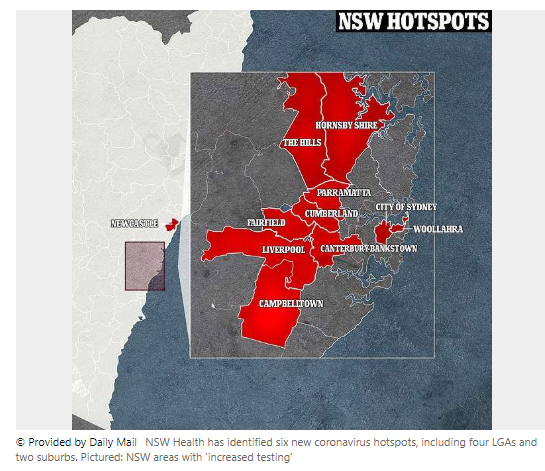
'With a growing number of cases, if you live in or have visited the following LGAs or suburbs in the past two weeks, get tested even if you have mild symptoms,' NSW Health said.
The newly identified LGAs include Hornsby Shire, The Hills, Newcastle and Woollahra.
It comes after the eastern part of the City of Sydney was identified as a coronavirus hotspot on Monday.
The City of Sydney suburbs include Sydney, Surry Hills, Darlinghurst, Woolloomooloo, Potts Point, Rushcutters Bay, Elizabeth Bay and Centennial Park.
NSW Health had already identified the Campbelltown, Canterbury-Bankstown, Cumberland, Fairfield, Liverpool and Parramatta LGAs as hotspots.
The one additional coronavirus infection reported on Friday came after 32,580 tests were conducted during the 24-hour reporting period.
It's the first time NSW has recorded one COVID-19 case since June 22 with daily case numbers hovering between five and 22 since late June.
New South Wales Chief Health Officer Dr Kerry Chant said the case went into immediate self-isolation after learning they had been in contact with an infected person.
There are 111 active coronavirus cases in New South Wales, including seven patients in intensive care and six on ventilators.
https://www.msn.com/en-au/news/other/nsw-covid-19-hotspots-list-of-regional-and-sydney-outbreak-locations/ar-BB18dfdJHere is an overview of the state’s current hotspots and what to do if you’ve visited them. More detailed information is available at the NSW Health website.
List of outbreaks in NSW
If you were at the following venues on these dates you must get tested and self-isolate for 14 days, even if your test is negative.
Wildginger restaurant, Huskisson: 7.45pm to 10.30pm on Saturday 8 August
Dooleys Lidcombe Catholic Club, Lidcombe: 5pm on Friday 7 August to 6.30am on Saturday 8 August; 4.30pm to 11.30pm on Saturday 8 August; 1pm to 9pm on Sunday 9 August; 12pm to 9:30pm on Monday 10 August
With the growing number of cases in the area, NSW Health is asking all people who live in, or have visited, the following areas in the past two weeks to get tested if they have any symptoms of Covid-19 at all, even the mildest of symptoms such as a runny nose or scratchy throat.
Campbelltown local government area (LGA)
Canterbury Bankstown LGA
Cumberland LGA
Fairfield LGA
Liverpool LGA
Parramatta LGA
City of Sydney (East) LGA
If you were at any of the following locations on these dates, monitor yourself for symptoms and self-isolate and get tested if symptoms occur.
Bankstown Central Shopping Centre, Bankstown: 10am to 3pm on Saturday 8 August
Bunnings Warehouse, Campbelltown: 11am to 7pm on Tuesday 4 August; 8am to 4pm on Wednesday 5 August; 1pm to 3pm on Thursday 6 August
Castle Towers Shopping Centre, Castle Hill: 3.30pm to 5pm on Friday 7 August
PharmaSave Cherrybrook Pharmacy in Appletree Shopping Centre, Cherrybrook: 4pm to 7pm on Thursday 6 August
Crust Pizza, Concord: 4pm to 8pm on Thursday 6 August; 5pm to 9pm on Friday 7 August
Café Perons, Double Bay: 1pm to 2pm on Saturday 8 August
DFO, Homebush: 10.45am to 12pm on Saturday 8 August
Sydney Markets Flemington, Homebush West: 8am to 4pm on Sunday, 9 August
Liverpool Hospital, Liverpool: 7am to 3pm on Thursday 6 August; 7am to 3pm on Friday 7 August; 5am to 1.30pm on Saturday 8 August; 5am to 1.30pm on Sunday 9 August
Westfield Liverpool, Liverpool: 10.30am to 11am and 12.30pm to 1pm on Friday 7 August
Woolworths Metro, North Strathfield: 12.15pm to 1.15pm on Saturday 8 August
Parramatta Local Court, Parramatta: 8.30am to 12.30pm on Tuesday 11 August; 8.30am to 12.3opm on Wednesday 12 August
Westfield Parramatta, Parramatta: 4pm to 5.30pm on Wednesday 5 August12pm to 1pm on Saturday 8 August
St Agatha’s, Pennant Hills: 6.30 am to 7am on Wednesday 5 August; 6.30 am to 7am on Thursday 6 August
Baby Bunting, Penrith: 1.15pm to 1.45pm on Saturday 8 August
Ikea, Rhodes: 1.20pm to 2.20pm on Saturday 8 August
Den Sushi, Rose Bay: 7.15pm to 8.45pm on Saturday 8 August
Chopstix Asian Cuisine, Smithfield RSL, Smithfield: Friday 31 July to Saturday 9 August
5th Avenue Beauty Bar, Wetherill Park: 2pm to 3pm on Saturday 8 August
https://www.msn.com/en-au/news/australia/sydney-shopping-centre-puts-up-christmas-tree-in-august/ar-BB18dkfPA Sydney shopping centre has been slammed for erecting a large Christmas tree in the middle of August.
Shoppers were left stunned when they stumbled across the giant tree covered in fluorescent decorations in the middle of the Queen Victoria Building, in Sydney's CBD, on Wednesday.
And while it was hoped the tree would help spread some joy during the coronavirus pandemic, some residents were less than impressed.
'I think it's insensitive,' one woman wrote. 'Just an early reminder to those struggling with job loss they can't afford presents this year for their kids.'
The coronavirus pandemic has seen unemployment rates spike to 7.5 per cent after hundreds of businesses were forced to close during the March lockdown.
Prime Minister Scott Morrison has cited unemployment as the biggest challenge the government is facing.
'It's about getting Australians back into jobs, it's about keeping Australia in jobs,' he said on Friday.
Others thought the decorations were 'ugly' and didn't quite understand the timing.
'Christmas already? Calm down,' another person wrote.
'Why is there a Christmas tree in the QVB in August? Why is it so ugly?' another asked.
However, some were happy with the colourful display.
'How pretty,' one wrote.
'So keen to see off 2020,' another wrote.
A spokesman for the shopping centre said the tree was supposed to act as a symbol of 'joy and resilience for a time like no other'.
They worked with artist Gerwyn Davies to created 'The 2020 Tree', with the idea to make something magical from a 'collective mess'.
Using unassuming icons of the Australian suburban landscape, he has used 'all too familiar' objects to create sculptures and ornaments.
'The crowning lightning bolt at the top of the tree symbolises the spark of life that the QVB aims to reignite in the recently quietened city of Sydney and the bold interpretation heroes the individual and unique moments of joy that can be experienced even at this difficult time,' the spokesman said.They aren't the only ones getting into the Christmas spirit early.
A Melbourne family has the bold move to decorate their family home in Christmas lights four months early.
https://www.msn.com/en-au/news/australia/young-inmates-locked-in-cells-as-authorities-brace-for-a-potential-coronavirus-outbreak-at-the-brisbane-youth-detention-centre/ar-BB18ce8gYoung offenders in South-East Queensland will be sent to Townsville as the state scrambles to manage a potential outbreak of coronavirus in the Brisbane Youth Detention Centre in Wacol.
The Brisbane correctional centre remains in lockdown, with nearly 130 inmates, some as young as 13, isolating in individual cells until further notice, after a 77-year-old worker tested positive to COVID-19.
Health Minister Steven Miles was confident the woman's infection was a true positive case, with a second test also returning a positive result.
"It seems as though she mostly went to and from work," Mr Miles told ABC Radio Brisbane.
"But we're just working with her to identify where else she might have been and who else might have been exposed, but the main priority right now is testing people at the detention centre."
All 127 inmates and 525 staff members are undergoing coronavirus testing with the inmates also isolating in individual cells.
This morning, Health Minister Steven Miles said 56 tests had been returned from the detention centre so far and all had returned a negative result.
He said more than half of the centre's inmates had been tested so far and results were due back later today.
While thousands of inmates in overseas prisons have tested positive to coronavirus, a potential outbreak in an Australian correctional centre would be unprecedented.
Queensland's director-general of youth justice Bob Gee said the state's system was well practised in health and security scares and has been prepared for this very scenario.
He said there will be no new admissions to the centre for the foreseeable future.
"The immediate plan is for them [young inmates] to remain in watchhouses, but we have significant capacity at Cleveland in Townsville," he said.
"We'll work through with police in terms of transporting them to Cleveland if we need to."
Upcoming court appearances and education programs have also been placed on hold.
Children locked in cells for up to two weeks
As soon as the staff member from Ipswich tested positive on Wednesday, all 127 young inmates at the facility, 110 males and 17 females, were placed in isolation.
"Every young person is in their own individual room," Mr Gee said.
"I really would doubt that there is any doubled up, from time to time that can happen where people are related or want to [share a room]."
He said the timeframe would be adapted in accordance with health advice, but that a 14-day quarantine at the Wacol facility was likely.
All 525 staff who work at the centre are also undergoing coronavirus testing.
Face-to-face visits only resumed at the centre on Monday, so contact tracing in that regard will be limited.
Queensland Corrective Services has also suspended personal visits at all South-East Queensland prisons, including Arthur Gorrie, Borallon and Wolston correctional centres.
The Department of Youth Justice said plans were in place to ensure staff and detainees have the appropriate personal protective equipment (PPE) and still receive support in terms of health, education and contact with family.
'We don't need hysteria, we need a response'
Justice and human rights advocate Debbie Kilroy has been calling for the release of prisoners since the start of the pandemic.
"Now we're seeing nearly 130 children locked down in solitary confinement to be tested," Ms Kilroy said.
"We know with anybody in solitary confinement that their mental health will decompose within 48 hours and we're talking about children."
She said a large majority of the young inmates at the facility were on remand and were yet to be convicted.
"Obviously we don't need hysteria, we need a response," she said.
"I wasn't shocked — I've been waiting on tenterhooks for this to happen.
"We've been calling to release people who are being held in prisons because we knew that when COVID entered the prisons, there's going to be a disaster and here we are now.
"We must release those children now into the community, into safe places where they can get appropriate medical attention, to be tested."
'A terrible situation for the kids'
The union representing detention staff, Together Queensland, said workers at the facility were also on edge.
Union secretary Alex Scott said he was satisfied enough PPE had been supplied but the lockdown, involving teenagers as young as 13, would be tough.
"It's going to be a terrible situation for the kids involved and it's going to be very difficult for the staff having to manage their emotional state," Mr Scott said.
"Clearly, this is a deeply stressful time."
The Department of Youth Justice said all movement of staff and inmates at the Wacol facility would be tracked via CCTV "within reason" in the event of an outbreak.
About 40 per cent of the inmates are Indigenous.
The Department said it had not ruled out reviewing the extensive security footage taken during the five shifts the woman worked at the Wacol facility while she was infectious.
The Queensland Family and Child Commission (QFCC) said it was also monitoring the situation closely and was in contact with the Department of Youth Justice.
"We understand all steps are being taken to ensure the safety and wellbeing of young people in that facility," QFCC commissioner Cheryl Vardon said.
"The health of these young people is paramount and we will continue to monitor the outcomes of the test results."
https://www.msn.com/en-au/news/australia/annastacia-palaszczuk-was-accused-of-politicising-qld-border-closure/ar-BB18cOiCPeter Dutton has warned state premiers like Queensland's Annastacia Palaszczuk will bankrupt the country if they insist on keeping borders shut despite tiny coronavirus infection rates.
The home affairs minister accused Ms Palaszczuk of ignoring medical advice when she closed the border to the ACT, NSW and Victoria.
'We just want an arrangement where people can get back to lives as we know it, and if we've got premiers who are pursuing an elimination process, the country will go broke,' he said.
Mr Dutton said the premier was chasing the popularity vote, while the border closure separated families and ruined more businesses.
Speaking on Today on Friday, he said: 'I was talking to the Brisbane Airport Corporation today, they are running at 20 per cent of domestic flights and it's just - it is crippling.
'Thousands of jobs will go as a result of it.'
'There is an election in October and I think Palaszczuk is concerned about that.'
Queenslanders will hit the polling stations for the state election on October 31.
The Sunshine State has recorded the highest unemployment rate in the country with 8.8 per cent. Western Australia followed behind on 8.3 per cent while South Australia recorded 7.9 per cent. All three states have strict border closures.
Queensland closed its borders to the rest of Australia on March 25, before it reopened them to most states on July 10.
Victorians were still barred from entering as the state wrestled with a second outbreak of COVID-19.
All of New South Wales was later added to the blacklist on August 8 after the state recorded a handful of new cases, while the ACT has been barred despite listing no new cases since July 10 and no active cases since the start of August.
Mr Dutton said the closure did more harm than good to businesses and families, many of which had been separated because of it.
'When you hear about families separated from sick kids or can't get medication, can't get to work, their business is on one side of the border and they live on the other, these are the practical implications of this closed Queensland border scenario.
'And it's driven by politics at the moment which I just think is frustrating a lot of Queenslanders.'
Opposition Leader Deb Frecklington said the border closure had severely dented the state economy and only spelled more hardship for businesses in the future, The Australian reported.
'Staying the course means a repeat of Labor's poor economic management, which has resulted in the highest unemployment rate in the nation and lowest business confidence … the biggest threat to Queensland's economic recovery is a Labor government with no economic plan or budget.'
Ms Palaszczuk has stood by her decision to keep the border closed.
'There are now more active cases in aged care in Victoria than Queensland has had during the entire pandemic,' she said.
'Our greatest resource of all is our people — Queenslanders and our ability to work together.'
The Queensland premier went on to say the closure would not only save more lives, but also ensure a smooth economic recovery.
'I don't want to see Queenslanders' lives put at risk and I don't want our economic recovery put at risk.'
https://www.msn.com/en-au/news/australia/queensland-s-top-doctor-shuts-down-dutton-s-criticism/ar-BB18cYsfThe LNP has rolled out its most senior Queensland politician to launch a fresh attack on the border closure ordered by the state's Chief Health Officer.
Speaking on Nine's Today on Friday morning, federal Home Affairs Minister Peter Dutton accused Premier Annastacia Palaszczuk of battening down the hatches to better her chances of winning the October state election.
"When you hear about families separated from sick kids or [people who] can't get medication, can't get to work, their business is on one side of the border and they live on the other, these are the practical implications of this closed Queensland border scenario," he said.
"And it's driven by politics at the moment which I just think is frustrating a lot of Queenslanders. We've got borders closed with the ACT as well [despite] no cases in the ACT. It's not based on medical advice, and that's the Prime Minister's point as well."
Mr Dutton went on to say: "If we've got premiers who are pursuing an elimination process, the country will go broke."
Australia's longest serving chief health officer, Jeannette Young, rejected the suggestion Queensland was pursuing an elimination strategy.
"If we wanted an elimination strategy, our borders would be closed to everybody," she said.
"I would not be recommending that all of these workers cross our border who are definitely at risk of bringing the virus in."
Dr Young said workers in construction, resources and agriculture industries were granted exemptions to cross state borders.
"There are other people I am far more concerned about, which is why I am being very rigorous about those [exemptions]," she said.
"I don't want healthcare workers crossing the border because they are coming from high-risk areas.
"Similarly police, I don't want police crossing the border ... because they are in high-risk situations, they are managing our borders, they are managing our hotels, they are out in the community."
Dr Young said she had advised the Premier to make no changes to border restrictions before a national cabinet meeting on Friday.
"My advice is driven by health and that is the only issue that I consider," she said.
"Here in Queensland we have six active cases, so that means we need to protect that and the best way of protecting it is for people to not go to places where there are active cases and bring it back into Queensland."
Dr Young said she remained concerned about people travelling out of Sydney into northern NSW.
"It means there is still a risk," she said.
"It is good that NSW is looking at their risks in Tweed because I know that were the virus to get out in the Tweed area, that would be a very big concern for us in Queensland."
Mr Dutton's border attack follow similar criticism from federal Health Minister Greg Hunt and NSW Deputy Premier John Barilaro.
Queensland Health Minister Steven Miles, who like Mr Dutton represents suburbs in Brisbane's north, invited the federal member "to go for a walk in the neighbourhoods we represent and see what Queenslanders think".
"I would just note he is one of the few people to have actually personally brought COVID-19 into Queensland," Mr Miles said, referring to Mr Dutton's positive diagnosis in March.
"He should know better than anyone how important it is that we keep the virus out of our state.
"Peter Dutton has one job, and that is keeping our borders safe, and he has consistently failed; he has failed on cruise ships, he has failed on hotel quarantine.
https://www.msn.com/en-au/news/australia/queensland-border-closure-causing-difficult-splits-nsw-families-say/ar-BB18dI2wIt has been almost a month since Brisbane-based teenagers Callum and Ashlee Gluyas have seen their three younger siblings who live south of the Queensland border bubble in northern New South Wales.
The youngsters are being kept apart by coronavirus-induced hard border restrictions, and it's unclear when they will be together again.
Callum had planned to visit father, Jamie, stepmum Jessica, and siblings Mikayla, Evan and Estelle in Mullumbimby the weekend Queensland closed its border to New South Wales for the second time.
The cross-border family had hoped to be reunited to celebrate father Jamie's birthday today
Jessica Gluyas said the original border closure made it easy for family members to maintain visitation schedules, but the new restrictions were much tougher.
"I have a four and a six-year-old here who have no idea when they will see their big brother again," she said.
"Same for my stepdaughter: she has a little sister that she has no idea when she will see her again, because there's no end date to this."
The ABC has contacted the Queensland Government for a response.
Under current rules, NSW parents living outside the "border bubble" can travel into Queensland to visit their children, but they must be able to prove they have quarantined for two weeks prior, or quarantine at a nominated premises in Queensland for 14 days.
They must also enter Queensland by air and provide evidence of a court order or legal agreement.
Parents can apply to the Queensland Chief Health Officer for an exemption to the 14-day quarantine and to come by road, but exemptions are only being granted in "extenuating circumstances".
Ms Gluyas said she had been buoyed by the support she had received for a petition calling for exemption passes to allow parent-child visitation across the Queensland border.
She said 650 people had signed her petition in the last week.
"Heartbreaking stories from other families who, their children might live with their mother and have no idea when they'll see their father again and vice versa," Ms Gluyas said.
"So it's not an individual situation. It definitely is affecting many families across south-east Queensland and Northern NSW."
Husband split from wife and four children
The Holden family, who have farms in Old Bonalbo and Woodenbong on the NSW side of the Queenslander border, have moved states so the children can still go to school in Warwick in the event of a full border closure.
Last week, Queensland's Chief Health Officer Jeannette Young said residents living in the border bubble needed to be prepared in case a future outbreak prompted the cancellation of all exemptions.
Leisa Holden said the move had come at a cost, as her husband, Boyd, would have to stay behind to run the farms.
"I needed to be on this side of the border in Queensland for the children to continue to go to school and my husband will be on the other side of the border," she said.
"Up until now I've been able to be on the farm full-time with Boyd but now with the border it's difficult."
Ms Holden said their four children were upset about leaving their dad and their home, as no-one knew how long they would be apart.
"The children's schooling was the priority, so we just had to work out a way forward," she said.
"I never thought I'd be renting a house over near Warwick because we wouldn't be able to go home."
https://www.msn.com/en-au/news/brisbane/sydney-couple-caught-trucking-into-qld/ar-BB18dpMOA Sydney couple have been caught by police trying to sneak across the Queensland border.
The pair were travelling in a truck on the Bruce Highway at Murrumba Downs on Wednesday when they were intercepted by an officer.
The driver, a 27-year-old Jordan Springs man, crossed into Queensland at Coolangatta using a freight border pass.
Police say a 21-year-old woman, from Saint Clair, was also travelling in the vehicle without an exemption.
The couple were each fined $4003 for failing to comply with Queensland's border directions, which are in place to prevent the spread of coronavirus.
The trucker was slugged a further $1305 for infringements including having an over-length vehicle and failing to correctly keep a work diary.
https://www.msn.com/en-au/news/australia/sa-borders-to-remain-closed-to-nsw-despite-low-infection-numbers/ar-BB18dtvl'South Australian borders will remain closed to New South Wales despite the state recording just one new coronavirus case in the past 24 hours.
Premier Steven Marshall held a meeting with South Australia's Transition Committee today and made the decision to keep border restrictions in place for the time being.
"At the moment the evidence suggests that border restrictions remain in place – we were looking at a July 28 date for lifting them, but after the Crossroads outbreak in NSW we want to make sure we don't jump the gun," Mr Marshall said.
South Australia also introduced tough new closures for Victorian border communities at midnight, preventing anyone living close to the border from entering SA, unless they qualify as an essential traveller.
Some exemptions are in place, including those with agricultural properties on the border of both states, and for students in years 11 and 12.
An approved cross border community member is not permitted to travel more than 40km into South Australia or Victoria from the point at which they entered.
Mr Marshall also commended the SA public for their compliance to coronavirus rules and restrictions since the pandemic began.
"We've got the lowest level restrictions and the highest level compliance out of any state or territory and that is something to be very proud of," Mr Marshall said.
He said as soon as the government can commit to easing border restrictions and social distancing it would.
Mr Marshall said the state's next focus would be on the economy recovering and getting more people back into regular working situations.
He said the National Cabinet spoke extensively about helping the state's economy recover from the impact of coronavirus.
"Obviously we are dealing with two crises in Australia at the moment, a health one and an economic one," Mr Marshall said.
"The main focus that came out of our meeting is we need to focus on job creation."
https://www.msn.com/en-au/news/australia/sa-police-looking-for-man-who-sped-through-bordertown-coronavirus-checkpoint/ar-BB18dUZGPolice are looking for a man who sped through a border checkpoint near the South Australian south-east town of Bordertown this morning.
They say a green Ford sedan with no registration plates drove through the Victorian border checkpoint about 11:45am without stopping.
The Ford was later abandoned at Bordertown after a short pursuit.
Police said they knew the driver's identity and "are making inquiries at various addresses in the area" to locate him.
Police said the man was 30 years old and was wearing a dark beanie, a light blue hoodie and dark pants and was carrying a dark backpack.
They released a photo of him from CCTV this evening.
From today, the only people allowed into South Australia from Victoria are essential workers, Year 11 or 12 students, people transporting students in private vehicles or farmers with properties on both sides of the border.
South Australia's Chief Public Health Officer, Nicola Spurrier, said the tough restrictions imposed on cross-border communities could be lifted as soon as next week.
"Things change very quickly in a pandemic, and you can see that," Dr Spurrier said.
"So all of a sudden, you can have increasing numbers but again, you can have rapidly reducing numbers, and we know with the level 3 restrictions in the regional areas [of Victoria], this will also be having an impact on the way they can get the community transmission under control."
Premier Steven Marshall said the state's transition committee was looking into lifting South Australia's border restrictions with NSW and the ACT.
Arrivals from NSW and the ACT are currently required to isolate for two weeks.
Mr Marshall said there was no plan to lift the mandatory quarantine yet but their rates of infection were improving.
"When that number gets down to an acceptable level, South Australians can feel confident that we will lift that restriction," he said.
"We don't want to keep it in place for one day longer than we need to, but at the moment the evidence is that it should remain in place."
South Australia recorded no new coronavirus infections for the third day in a row today.
https://www.msn.com/en-au/news/australia/covidiots-caught-sneaking-out-of-hotel-quarantine-to-attend-party/ar-BB18dAbHTwo covidiots who were caught sneaking out of their hotel quarantine to party with a rapper and 'hang out with mates' have given media the middle finger as they left Western Australia.
Isata Jalloh, 19, and Banchi Techana, 22, flew into Perth without permission on Monday and were told they would need to quarantine before returning to Adelaide.
The pair instead left the Novotel Perth a few hours later and caught a taxi to the party at a unit block in Coolbellup, south Perth. The women were sent back to Adelaide on Friday morning and made rude gestures on their way to the airport.
Both women had ignored orders from security guards and escaped through Novotel's emergency stairwell around 1.30am on Tuesday, WA Today reported.
Police called Jalloh's mobile phone to ask where the women were located but she laughed and hung up on the officer.
The mobile phone signal was then used to track both women to the Coolbellup flat occupied by amateur rapper Siri Kidd and a male friend.
Both women were arrested around 8.30am and taken into custody for two days.
They appeared in Perth Magistrate's Court on Thursday and pleaded guilty to the breach.
Jalloh was handed a $5000 fine and Techana, who also admitted to obstructing an officer while in custody, given an eight-month sentence, suspended for 12 months.
WA Police said the women arrived in Perth intending to holiday and visit family but were directed to quarantine until return flights could be arranged. The court heard Techana, a dancer, had moved to Perth for a 'fresh start' and planned to bring over her one-year-old daughter.
Jalloh's lawyer also argued the 19-year-old had travelled from Queensland to South Australia without self isolating and didn't understand WA's coronavirus measures.
Magistrate Ben White said he believed the women were aware of the border restrictions.
'It's difficult to think anyone in the current climate could be in the dark about those sorts of things.
'There's risks to health, there's risks of this sort of behaviour resulting in further lockdowns,' he said. The women were filmed arriving back in Adelaide airport on Friday, where they claimed they had been on a 'vacation' and were glad to have avoided jail time.
Amateur rapper Siri Kidd said he didn't know the women would be visiting him.
'I don't know, it's so crazy, I didn't even know this was all happening, this is surprising me too.
'I've met them once before, that was it, I didn't even know they were coming because they told us they wouldn't be able, or be allowed,' he told Nine News.
WA Premier Mark McGowan announced there would be a crackdown on quarantine surveillance on Thursday after a series of incidents.
He said WA had requested an additional 134 defence force officers, including 20 to be trained in COVID-19 contact tracing and a doubling of the personnel already supporting state authorities in quarantine hotels.
https://www.msn.com/en-au/news/australia/wa-leading-the-world-in-economic-recovery-records-no-new-cases/ar-BB18drwuWestern Australia Premier Mark McGowan has touted the state's economic fightback amid the COVID-19 crisis.
The state recorded no new cases in the past 24 hours, with nine active cases remaining in hotel quarantine.
Mr McGowan said the numbers showed Western Australia's regulations and hard border had been a success.
"It's important we all stay disciplined," he said.
"Complacency is our enemy in this period."
Mr McGowan said the state's economy was a "world leader" in terms of recovery.
"Life here is as normal as it can be in a COVID world," he said.
He claimed that in recent months the state had seen its strongest period of job creation in five years.
"Western Australia was the only state to see an expansion in retail over the June quarter," Mr McGowan said.
"Our building and construction industries are now powering along."
The government has unveiled its $5.5 billion recovery plan to help those workers and businesses still doing it tough.
State vs Palmer
Asked about the ongoing legal dispute with Queensland billionaire Clive Palmer, Mr McGowan said the government was determined to continue to stand up to his legal action.
"Mr Palmer has gone nuclear on Western Australia," he said.
"He's trying to take $30 billion from Western Australia, he's trying to bring down our hard border, he's trying to bankrupt me."
He claimed Mr Palmer did not have the state's best interests at heart, and that if his challenge to the hard border had been successful, people would have died.
Mr McGowan claimed Mr Palmer's actions were "grossly irresponsible".
"He picked the fight with our state," he said.
"You've got to stand up to these sorts of people, and that's what we're doing."
The West Australian Government is facing another legal fight with Clive Palmer, with the Queensland businessman suing the state for "unconscionable conduct".
Mr Palmer warned he would be seeking additional damages, on top of the approximately $30 billion he is already seeking as part of an iron ore dispute within the State Government, from his latest claim.
Mr Palmer said the new claim, which is being added to a lawsuit lost in the Federal Court last week, would be served on the state within 21 days.
The claim relates to unprecedented legislation passed by WA's Parliament, terminating separate action by Mr Palmer under arbitration.
Under that arbitration fight, Mr Palmer is seeking about $30 billion in damages, costs and interest over a decision to deny him approval to develop the Balmoral South iron ore project in the state's Pilbara region.
Clive Palmer confident of court win
Mr Palmer said legislation would be "for nothing" because the High Court would deem it unconstitutional.
"The simple fact is the state of Western Australia does not have the power to control either the Federal or the High Court of Australia," Mr Palmer said in a statement.
"The amount of damages is likely to exceed the damages claimed in arbitration the state had previously agreed to but legislated to terminate.
"Mineralogy's action in the Federal Court will result in a greater amount of damages and the High Court of Australia will, in my view, find the act unconstitutional."
Long list of Clive Palmer lawsuits
WA is now fighting a flurry of lawsuits against Mr Palmer.
On Wednesday night, Mr Palmer launched a defamation case against WA Premier Mark McGowan in the Federal Court.
There is also a case in the Queensland Supreme Court, with WA fighting to overturn a previous ruling that the awards made in arbitration over the iron ore dispute should be "enforced".
And, on top of this latest Federal Court action, Mr Palmer has repeatedly signalled he will challenge the validity of the legislation in the High Court.
Mr Palmer is also challenging WA's interstate border closure in the High Court, with a decision expected later this year.
Mr McGowan dismissed the defamation case as a "personal legal fight", saying he would not be distracted by it.
"I won't take a backward step when it comes to protecting the interests of Western Australia," Mr McGowan said.
"I will always stand up for WA."
Mr Palmer has also launched an advertising blitz against the WA Government, with a flurry of newspaper and radio commercials attacking the state's handling of the iron ore dispute and the border closure.
'Serious issues at stake': expert
Charles Sturt University constitutional law expert Bede Harris said it was rare to see one party bring so many lawsuits against another.
"It is very unusual, there is a legal term that refers to a 'vexatious litigant', that is someone who just keeps suing another party on and on," Dr Harris said.
"But the fact that Mr Palmer is litigating a great deal must not prevent us from evaluating what he is doing on its merits.
"Despite Mr Palmer's penchant for litigation, there are some really serious constitutional values at stake here."
Dr Harris said there was merit in Mr Palmer's claim that the legislation passed by WA relating to the iron ore dispute was unconstitutional.
"This is a very complex area of case law so one can't predict what the outcome will be, but certainly there is a case that is arguable, there is no doubt of that," he said.
https://www.msn.com/en-au/news/australia/health-bureaucrat-tells-royal-commission-people-with-disabilities-not-mentioned-in-coronavirus-plan/ar-BB18d5CpIt was an "omission" that people with disabilities were not mentioned in the Government's COVID-19 emergency response plan, a senior bureaucrat has told a royal commission.
The Royal Commission into Disability is investigating the impact of coronavirus on the disability community and the Federal Government's response.
Simon Cotterell, Assistant Secretary from the Department of Health told the commission, staff worked under immense pressure to prepare the action plan, but that people with disabilities were left out.
"It was prepared very quickly and under great pressure by staff conscientiously doing their very best. I think it is an omission that disability is not mentioned .... but the word 'vulnerable groups' is used," he said.
"The intention of using that language in that context is vulnerability to the virus whether it is exposure or severe impacts of the virus and via that mechanism people with disability would be covered.
"But I think it is an omission that they weren't specifically mentioned and in a number of places it would be useful for people with a disability to have been mentioned."
The commission heard that there was no single area in the department that had responsibility for the health of people with disabilities.
"We were all very busy focusing on what we could do to respond to the pandemic," Mr Cotterell said.
Mr Cotterell also said there was no exact data on the numbers of people with disabilities who had contracted COVID-19 or who had died from the virus.
"We don't know, but there is some data that the NDIS commission collects from notification from NDIS service providers. But we don't know, we don't have a full picture," he said.
The Deputy Chief Medical Officer Nick Coatsworth also gave evidence, and told the hearing developing an aged-care response to the COVID-19 pandemic was a higher priority than making a plan for people with disabilities.
Dr Coatsworth told the commission that of the 4.4 million people in Australia that have identified as having a disability, not all of them would be considered as being vulnerable to the virus.
He said in the initial stages of the pandemic, the aged-care sector was a higher priority.
"We already knew that age was the, not a, the most significant risk factor for Covid-19 mortality," he said.
He said that the plans that were prepared for aged care facilities would then be applied to other facilities like prisons, military barracks and residential care homes.
When questioned by counsel assisting Karen Eastman SC about why there was no specific data on people with disabilities who have contracted or died from COVID-19, he said it "wasn't collected because it would not have had a difference in the initial emergency response to the outbreak of the pandemic".
The royal commission has heard evidence that 76 people with disabilities registered with the NDIS had contracted COVID-19 during the pandemic.
Eight of those people have died.
https://www.msn.com/en-au/news/australia/aged-care-minister-is-roasted-for-failing-to-protect-vulnerable-people/ar-BB18dhL9Aged Care Minister Richard Colbeck was today exposed for not even knowing how many residents have died from coronavirus.
The Tasmanian senator was also accused in a senate inquiry of failing protect vulnerable Australians.
At the start of the hearing, Labor Senator Katy Gallagher asked the minister: 'How many residents of aged care facilities funded and regulated by the Australian Government have passed away from COVID-19?'
Senator Colbeck was unable to answer and said: 'I will just have to look that up my latest report, chair, that might take me a moment.'
After a 53-second pause, a department official said there had been 258 deaths linked to aged care.
Senator Gallagher then asked the minister how many residents are currently infected.
'Again, Senator, I don't have the report with the detail in front of me,' he replied.
Senator Gallagher roasted the minister for not knowing these details off the top of his head.
'I mean, you don't know how many people have passed away. You are now telling me you don't know how many people have the infection,' she said.
Senator Colbeck said he was looking for the report on his IT system.
He was later accused by Senator Gallagher of 'failing to prevent the virus spreading throughout those communities.'
Asked if the government has 'done enough to protect vulnerable Australians,' the minster replied: 'Chair, in some circumstances it hasn't as I've said, and I have acknowledged, and the Prime Minister has acknowledged, we haven't got it right.
'We apologise for that, we are not happy that some things haven't worked out as we might have hoped.'
Later in the inquiry, Senator Colbeck accepted responsibility for coronavirus outbreaks in nursing homes
'At the end of the day we as governments carry the can for policy and implementation for that policy, and in that context we accept responsibility,' he said.
Pressed on whether he accepted responsibility, he replied: 'Yes'.
But Senator Colbeck said widespread community transmission of coronavirus meant it would inevitably get to all corners of the community.
He also admitted that the government's worst-case scenario planning for aged care did not factor in the possibility that all support staff would be told to isolate, which is what happened at St Basil's carehome, requiring the army to step in.
The aged care watchdog has conceded it should have done better after not telling the federal government a Melbourne nursing home staff member had tested positive to coronavirus.
The Aged Care Quality and Safety Commission was told on July 10 the staff member had tested positive, but did not tell the health department for four days.
'Our understanding at the time was that the public health unit had been contacted,' commissioner Janet Anderson told the inquiry.
'I recognise that we erred in not escalating this information to the Commonwealth Department of Health at the time and we should have done better.'
St Basil's Homes for the Aged in Fawkner has been linked to at least 20 coronavirus deaths.
https://www.msn.com/en-au/news/australia/scott-morrison-defends-aged-care-minister-who-didn-t-know-number-of-covid-deaths/ar-BB18doFOScott Morrison has declared he still has confidence in his aged care minister after Richard Colbeck came under pressure at a Senate inquiry and was unable to recall how many people had died in aged care during the pandemic.
Colbeck apologised on Friday for the times when the Morrison government “didn’t get everything right” in dealing with aged care outbreaks – but insisted it had been prepared for what it sincerely believed to be the worst-case scenarios.
The minister’s performance – described by the opposition as “embarrassing” – overshadowed the government’s announcement of an extra $171m in federal funding for the aged care response.
When the minister was unable to say how many people had died in aged care settings, federal health department officials answered instead, noting 258 care recipients had passed away in Victoria, including 254 who were residential care recipients and four who were home care recipients. The current number of active cases in Victorian aged care settings is 1,811. Nationally, 292 people with Covid-19 have died in aged care during the pandemic
Speaking after a national cabinet meeting on Friday, Morrison said he had confidence in Colbeck’s performance as a minister but said he was “sure the minister regrets not being able to bring those figures immediately to mind”.
The prime minister said it was “a very demanding environment in which to be working”. Morrison said the extra $171m in federal funding would bring its contribution during the pandemic above $1bn.
The funding includes $81m to provide additional “surge” workforce and increased training for aged care workers, along with $12.5m to support residents and their families with grief and trauma support services.
The federal Aged Care Quality and Safety Commission will receive $9m to step up its checks on how facilities are preparing for and responding to Covid-19 outbreaks.
At Friday’s national cabinet meeting, state and territory leaders backed a plan to set up emergency response operations centres for aged care if community transmission became a concern.
The centres would be similar to the joint federal-state aged care coordination centre set up in Victoria last month – but Morrison said there was no need to establish one outside that state at this stage.
The acting chief medical officer, Prof Paul Kelly, said federal, state and territory governments would also “redouble our efforts to make sure that the sector is absolutely prepared” for outbreaks.
To that end, a panel of Australia’s chief medical and health officers will launch a “time-limited” aged care advisory group “bringing together a broad range of critical expertise about the aged care sector, infection control and emergency preparedness”, according to a federal government statement.
Earlier, Colbeck said the situation in Victoria remained “extremely fragile” and he angrily hit back at “offensive” claims the federal government had effectively been “absent” during the crisis.
Returning to the Senate’s Covid-19 committee for the first time since a royal commission heard evidence the federal government had not properly planned for aged care outbreaks, Colbeck apologised for the times when “we haven’t got it right”.
Colbeck accepted that the federal government was the principal funder and regulator of age care in Australia – but insisted that “in combination with the states it is everybody’s responsibility to prevent the spread of the virus”.
The loss of life had been “an absolute tragedy”, he said. When pressed on whether the system he was in charge of had failed to respond properly, he said the system had been “under extreme stress”.
“In some circumstances … we haven’t got it right. We apologise for that,” Colbeck said.
But he held to the government’s line that it was impossible to avoid outbreaks in aged care facilities when there was community transmission of Covid-19, and he maintained that it was “a combined federal government-state government responsibility for public health”.
Colbeck pushed back strongly when the Labor chair, Katy Gallagher, asked about the devastating scenes playing out in Victoria and why the federal government was “absent”.
The minister said he found that assertion offensive. “The government wasn’t absent. The government has been there every single step of the way providing every single resource it could muster in the interests of these people,” he said.
“We are all mortified by the circumstances that we have found in those facilities in Victoria,” he said.
Colbeck said the situation in Victoria had stretched the resources of the entire health sector, with close to 2,000 residential aged care workers furloughed because of being either Covid-19 positive or close contacts.
The minister was challenged over the accuracy of a press release he issued on 12 April that assured people that the government had “plans in place for worst-case scenarios where an outbreak in aged care facilities mean local staff are unable to continue to provide care due to an infection in the service”.
Related: We are 232 days into the coronavirus and aged care in Australia is in a deadly meltdown | First Dog on the Moon
Colbeck said on Friday he stood by that statement, but said the government had not expected workforce issues to extend beyond care staff, which is what eventuated at St Basil’s in Victoria.
“We did not anticipate that the entire management structure and the office structure, cleaning, catering staff would all be regarded as close contacts as part of an outbreak.”
He confirmed he had received a report in April on the outbreak at Dorothy Henderson Lodge in Sydney, which noted that almost all care staff had been furloughed.
Kelly, the acting chief medical officer, was asked on Friday whether the total and sudden withdrawal of an aged care workforce was really unforeseeable.
“I think that’s getting into pedantics of words at the moment, but certainly it was unprecedented,” Kelly told reporters. “Could we have foreseen that? That’s a matter of debate.”
Labor’s spokesperson for ageing and seniors, Julie Collins, told reporters Morrison and Colbeck’s performance was “not good enough” and families deserved to hear an unreserved apology.
“Nothing for those families who have lost loved ones is ever going to bring back their loved person because of the months that were wasted by the government when he didn’t do enough.”
https://www.msn.com/en-au/news/australia/the-future-of-renting-how-tenants-can-dodge-expensive-bonds/ar-BB18dgNjRenters can dodge expensive bonds, avoid living with annoying housemates and save money on fridges and dishwashers by moving into a new type of housing in Sydney.
LIV Indigo at Sydney Olympic Park, about 16 kilometres west of the CBD, is the first residential community in NSW designed and built exclusively for renters, giving tenants greater flexibility in their living situation - but without the vulnerability.
Residents can make their Mirvac apartment a 'home' by freely painting on the walls, hanging pictures on nails and keeping a pet.
The tenants, who are not required to pay an expensive bond, simply sign a 12-month secure lease with rental increases capped.
The two apartment blocks, comprising of 315 rooms, also come with an on-site maintenance team who can organise repairs immediately.
All apartments are fitted with refrigerator, oven, cooktop, microwave, washing machine and dryer - to the joy of admin officer Gail.
The 24-year-old is moving into a one bedroom apartment next month.
'The idea of having security and ownership without the hassle of mortgage was appealing to me,' she said.
'LIV would save me a lot of money especially because of amenities that tenants can use for free.
'I would say that it is very much worth its value.'
Gail, who was previously living in the Parramatta area, said she is particularly excited she is allowed to drill holes in the walls.
'I couldn't mount my TV in my old apartment and I also wasn't allowed pets. Now I can have both,' she said.
'I'm also super excited about painting my walls.'
LIV Indigo renters can also enjoy the shared community spaces, which includes a gym, cinema space, co-working arrangements and a kids game area.
There are also function spaces which renters can book out to host guests.
Instead of spending money on a weekly gym membership, Gail is excited to use LIV's facility for free.
The 24-year-old said she 'definitely' recommends this new style of renting.
'It just takes away so much of the stress and hassle,' she said.
'Why buy when you can rent and still feel like you own the place?'
At the LIV Indigo launch on Wednesday, Mirvac CEO and Managing Director Susan Lloyd Hurwitz said the apartments are bridging a gap between owning and renting.
'We are living in an era where property ownership is not the overarching goal of all Australians,' she said.
'And those who do aspire to home ownership will on average spend more time in the rental market before they can afford to buy their home.Tenants of the two LIV Indigo towers can say goodbye to gym memberships by using the gym on-site
'People who choose the LIV lifestyle will know that for as long as they want it, this is their home.'
Ms Lloyd Hurwitz said Mirvac crafted the housing choice that offers convenience, comfort and security after studying the market overseas and speaking to Australians about their rental experiences.
NSW Minister for Planning and Public Spaces Rob Stokes said build to rent was a game changer for the state's housing market.
'We can't just assume that the homeowner model is for everyone. As society changes and grows, our policies and approaches to living need to reflect that,' Mr Stokes said.
'Build to rent can attract direct investment in construction at a time when bank finance is hard to secure. It is a critical way to ensure housing is built during difficult financial times.
'Not only do we need different types of housing, such as detached, high-rise and missing-middle types, we need different tenures so that individuals and families can access secure housing that suits their circumstances.'
LIV Indigo is by Australian property group Mirvac.
https://www.msn.com/en-au/news/australia/kiwi-campaigner-wants-new-zealanders-to-agitate-to-get-aussie-welfare/ar-BB18dCKQA Kiwi crisis centre manager wants Australia's 600,000 New Zealanders to exploit a loophole so they can access welfare payments like the dole.
Migrants from New Zealand have since 2001 been banned from accessing Centrelink payments including JobSeeker, despite paying taxes and working in Australia.
A surge in unemployment, because of coronavirus shutdowns, has also forced Kiwis to dip into their superannuation.
Those lacking sufficient retirement savings to draw from have either moved back to New Zealand or gone homeless - despite rental eviction bans.
Vicky Rose, a Kiwi who runs the Nerang Neighbourhood Centre on the Gold Coast, has seen plenty of New Zealanders plead for help finding somewhere to live after suddenly losing their job.'We get on average about 25 to 30 calls a day across all of our programs here at the neighbourhood centre and 50 per cent of those calls would be from New Zealanders in crisis - long-time migrants who've just found out what their residency status means here,' she told Daily Mail Australia.
How Australia treats Kiwis badly
New Zealanders moving to Australia have since February 2001 have been denied access to welfare benefits, including the dole and Medicare
A Special Category Visa was created for Kiwis allowing them to stay in Australia indefinitely but they don't automatically get permanent residency - the only way someone can access welfare benefits and eventually apply for citizenship
Australians moving to New Zealand are treated with a lot more courtesy, getting access to subsidised healthcare provided they demonstrate they intend to stay for at least two years
They can also vote after just one year continuously in NZ and be eligible to apply for a student loan after three years
Australians can apply for citizenship in New Zealand after five years
Since 2017, Australia has allowed Kiwis to apply for permanent residency after five years but they must earn at least $53,900 a year
'I've got people co-sharing, living in friends', families' garages.
'It's still happening everyday and we've had people up and leave fully-furnished homes to go back to New Zealand.'
The 50-year-old grandmother, who came to Australia in 2008, wants Kiwis to do something about 19-year old laws banning Kiwis from accessing JobSeeker unemployment benefits or JobKeeper wage subsidies.
Under a special visa category for New Zealanders, known as subclass 444, Kiwis are allowed to stay in Australia indefinitely but they don't have an easy path to citizenship.
This loophole, however, allows them to join a political party.
Ms Rose, an ALP member, wants Kiwis to join the Australian Labor Party instead of the Liberal Party to effect change, arguing the party of Home Affairs Minister Peter Dutton would be unlikely to budge.
'They're the only ones that are likely to do anything for us,' she said.
'We have to be political.
'You can't just go, "I'm not interested in politics" because politics is exactly what puts us in our position so we have to think strategically and in my mind, this is the best pathway that we have here in Australia.
'What do you think a political party needs? They need numbers: 647,000 Kiwis live in Australia.'
Former Liberal prime minister John Howard in 2001 banned New Zealanders from accessing welfare, after Kiwis had been maligned as Bondi bludgers despite the fact they are more likely to be employed.
'We are not bludgers,' Ms Rose said.
Kiwis are also denied an easy pathway to Australian citizenship or permanent residency.Conversely, Australians moving to New Zealand can receive welfare and subsidised healthcare straight away provided they demonstrate they intend to stay in the country for two years.
After just one year in NZ continuously, they can vote and after three years apply for a student loan.
'It's not equitable, it's not fair and we're quite different to every other migrant,' Ms Rose said.
'They refer to us as family: this is not how we treat our family.'
Prominent Australians born in New Zealand have included actor Russell Crowe, the late former Liberal prime minister John Gorton, Queensland's longest-serving premier Sir Joh Bjelke-Petersen, former senator and media personality Derryn Hinch and Australia's longest-serving TV newsreader Brian Henderson
https://www.msn.com/en-au/lifestyle/wellbeing/australia-virus-cases-dive-to-five-week-low/ar-BB18cRt3Australia headed for its lowest daily increase in coronavirus infections in five weeks on Friday as the hotspot state of Victoria neared the midway point of lockdown, prompting the prime minister to hail "a week of increased hope".
While the rest of Australia eases restrictions, the home state of a quarter of its population is in a six-week lockdown due to a second wave of virus infections.
Victoria reported 179 new cases in the past 24 hours, from 240 a day earlier and down from over 700 a day two weeks ago. The state reported nine deaths.
The country's most populous state, neighbouring New South Wales, reported just one new case as an emergency cabinet of state and federal leaders discussed the prospect of relaxing closures of state borders that have been in place for months"Today's meeting of national cabinet came during what I would describe as a week of increased hope," Prime Minister Scott Morrison told a televised news conference.
"We're doing better than most and many of the developed world in this situation."
Victorian premier Daniel Andrews said new case numbers in his state had fallen faster than he expected after the state imposed a nightly curfew and shuttered many businesses.
"We are all pleased to see a 'one' in front of these additional case numbers," Andrews said. "To be at this point shows that the strategy is working."
With cases in Victoria declining and low or zero levels of infections elsewhere - some states had yet to report daily figures by mid-afternoon - business leaders have called for an easing of internal travel restrictions to alleviate the blow to business and the economy.
Many states have closed their borders to prevent the spread of infection, and Queensland's premier said earlier this week its border won't reopen to any states with cases of community transmission.
However, Prime Minister Morrison said Queensland had now agreed to relax a ban on interstate travel for people seeking health services. He said he would call for an agreed definition of a "hot spot" so the authorities and travellers could understand who was, or was not, allowed to travel interstate.
Qantas Airways Ltd said this week that state border closures were severely hampering a recovery in the domestic aviation market, while retail group Wesfarmers said the restrictions were causing "enormous hardship".
Other than the Victoria outbreak, Australia has largely avoided the high casualty numbers of many other nations with just under 24,500 infections and 472 deaths linked to the virus..
https://www.msn.com/en-au/news/australia/no-border-plan-from-national-cabinet-as-scott-morrison-defends-aged-care-minister-after-coronavirus-criticisms/ar-BB18dviENational Cabinet has not reached consensus on an Australia-wide agreement on how to manage internal borders, despite calls from Qantas and some within the Government's own ranks.
However, the group of state and territory leaders has agreed to come up with a national standard of what constitutes a COVID-19 hotspot, with some states agreeing to make variations to their border closures.
"When you have restrictions that are being placed on peoples' movement in the country based on what is and is not a hotspot, there needs to be a clear medical and scientific definition of what that is," Prime Minister Scott Morrison said.
"So people who are living in those areas can know when they are in one and when they are not."
Questions have been raised of the Queensland Government having declared the ACT a hotspot, despite the fact it has not recorded a COVID-19 case in more than a month.
Mr Morrison said some changes had been made at the NSW-Victoria border "particularly in relation to the movement of agricultural workers".
That comes after revelations Services NSW suggested farmers fly their sheep to Sydney rather than cross the Victoria-NSW border by more conventional means.
Qantas had raised hopes that a nationally consistent approach to state borders would be adopted, after unveiling a $2 billion loss and bemoaning the fact domestic travel has dried up significantly.
The airline's chief executive, Alan Joyce, suggested decisions around border closures were being fuelled more by local politics than health concerns.
Nationals Deputy Leader David Littleproud had said Friday's meeting could be a flashpoint for federal relations, pressuring states and territories to come to a more comprehensive border agreement.
Mr Morrison said when National Cabinet next meets, it will consider a code to allow agriculture workers to manage work across borders.
"[It] deals with the practical issues of how those in the agriculture workforce are managing their activities," he said.
https://www.msn.com/en-au/news/world/new-zealand-reports-another-11-coronavirus-cases/ar-BB18d7RNNew Zealand has recorded another 11 coronavirus cases, as the country continues to battle its second wave of infection.
Of the new cases, nine are from community transmission and two are in managed isolation.
Five of the community cases are linked to churches in South Auckland.
New Zealand now has 105 active cases, most of which have been linked to the Auckland cluster which sparked the nationwide lockdown.
Ashley Bloomfield, the director general of health, told reporters on Friday a Westfield employee, who was of the new cases confirmed this week, may have contracted the virus on a bus.
The bus journey happened on August 12, before Auckland went into alert level 3.
Mr Bloomfield said that case highlights the importance of wearing a mask on public transport.
The country, which is due to ease restrictions next week, will remain lockdown over the weekend as the number of cases continues to rise.
Prime Minister Jacinda Ardern said Cabinet will meet on Monday to discuss the possibility of extending the lockdown.
She said the decision to move levels would be based on advice from Dr Bloomfield.
'There is nothing to suggest we need to change our course and certainly nothing to suggest we need to elevate alert settings.'
Dr Bloomfield said they will look at case numbers to see if there is pattern in those cases, whether they be connected to households, church or school contacts.
The island nation had been the envy of the world for its handling of the COVID-19 crisis until new cases emerged on August 11.
Auckland was thrown back into lockdown, or Level Three, to suppress the spread of the virus, having enjoyed 102 days without a single case of community transmission.
The lockdown had played a critical role in finding the outbreak's perimeter and identifying cases early, Ms Ardern said.
The rest of New Zealand has been placed at Level Two, which mandates social distancing and caps on gathering sizes.
The source of the fresh Kiwi outbreak is still yet to be determined.
New Zealand and Australian officials are collaborating over a possible link through a freight business with outlets in Melbourne and Auckland.
New Zealanders had been enjoying the return of their usual freedoms after an autumn lockdown proved effective in temporarily eliminating the deadly virus.
New Zealand records first cases of community transmission of COVID-19 for 102 days
THE CASES
* Four members of a south Auckland family have tested positive to COVID-19.
* The 'index case' is a person in their 50s who has been symptomatic for five days and has no overseas travel history.
* Six family members received a rapid test on Tuesday evening; three tests came back positive and three are negative.
* A student at Auckland's Mount Albert Grammar School has tested positive for COVID-19.
* Health authorities are awaiting the test results for another four 'probable' cases of coronavirus - three adults and a teenager - linked to a family cluster.
* Health officials are moving to isolate and test contacts of the family, including two Auckland workplaces.
THE RESPONSE
* Auckland returns to a 'level three' lockdown from noon on Wednesday until midnight on Friday. Aucklanders are being asked to stay home except for essential work or essential needs.
* The rest of New Zealand returns to 'level two' for the same timeframe, with caps on gatherings and the return of social distancing.
* These measures have been enacted to buy health officials time time to test and isolate contacts, and to locate the source of the outbreak.
* Every worker at NZ's border regime and managed isolation facility will also be tested in the next few days.

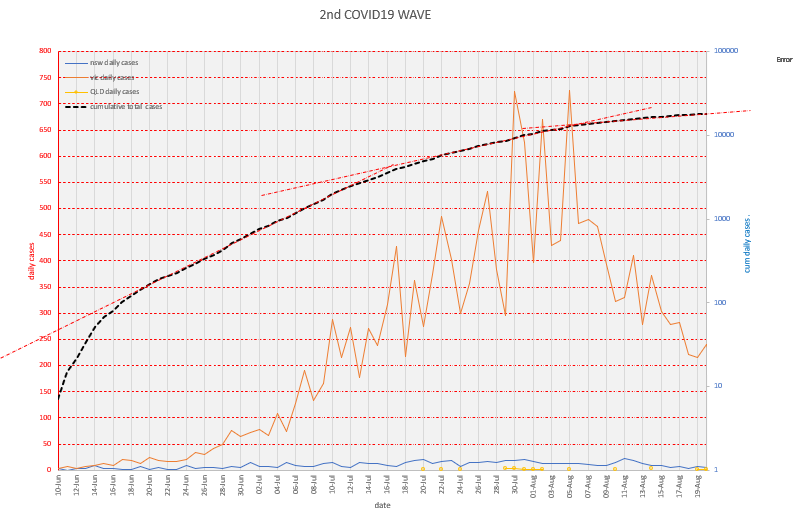
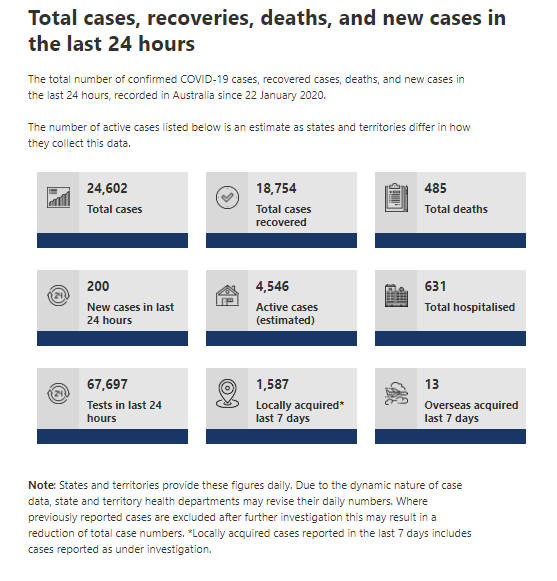
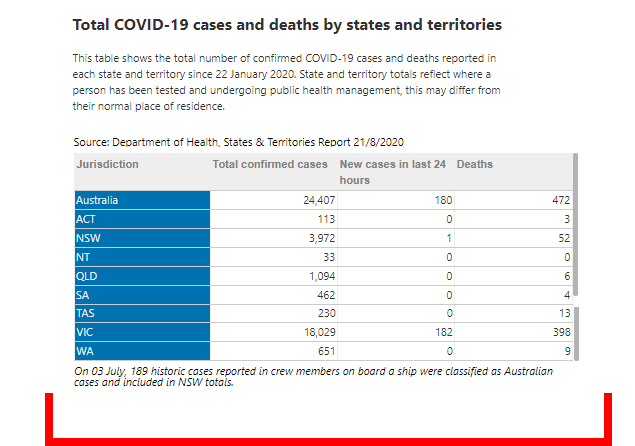
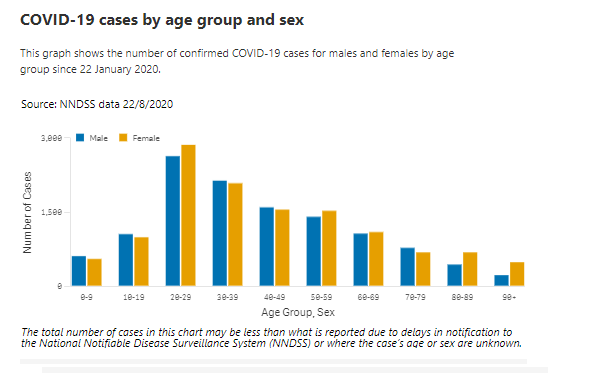
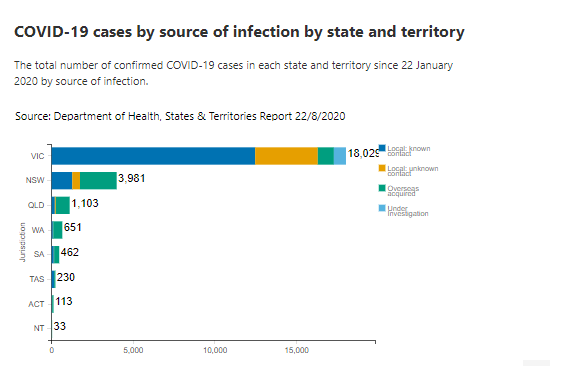
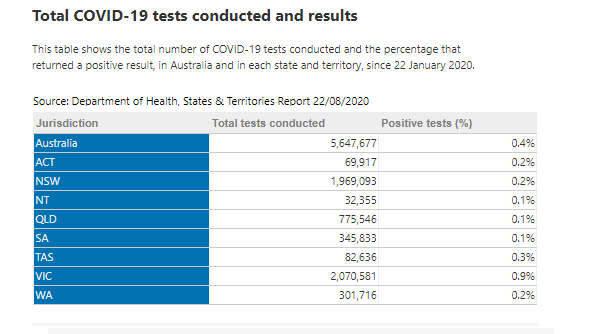
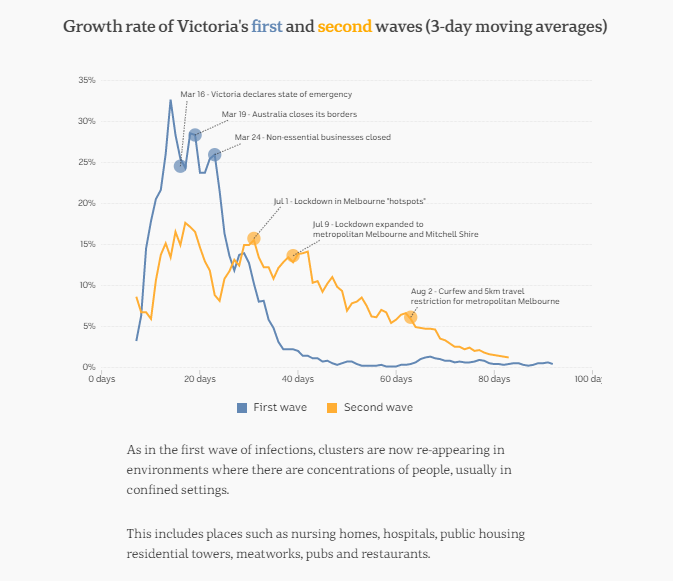
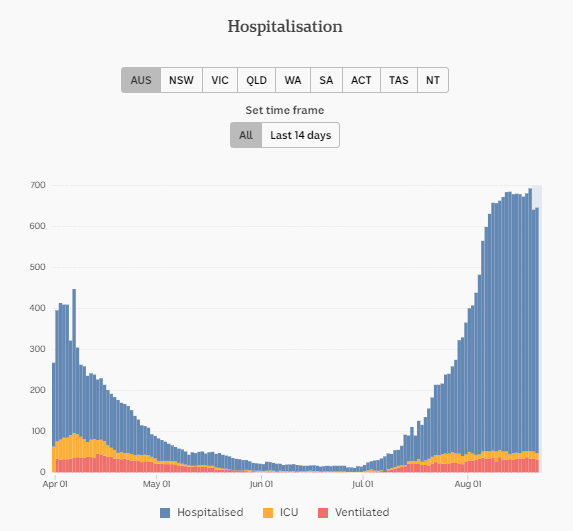
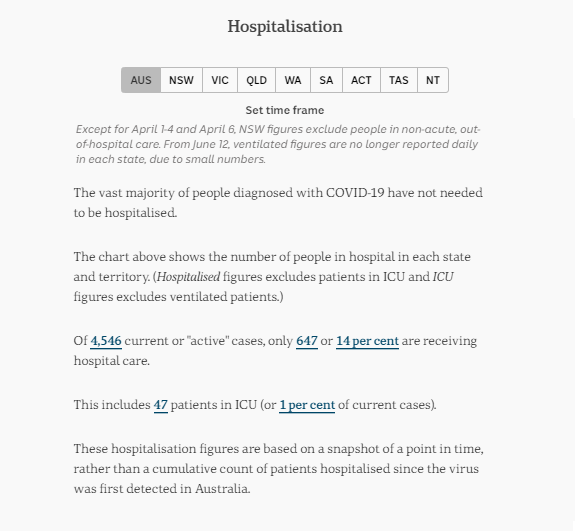

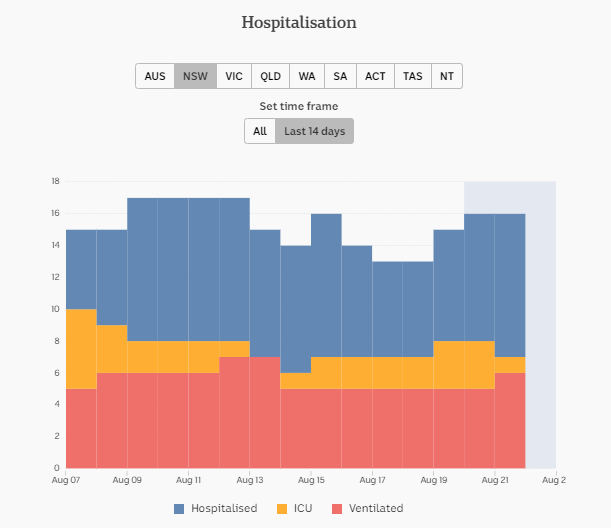
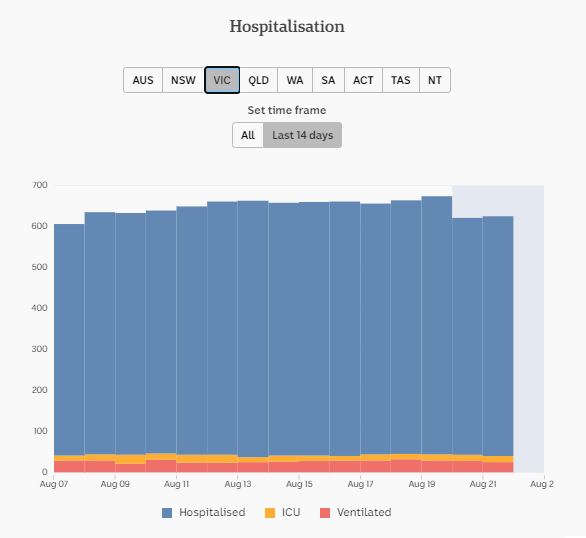
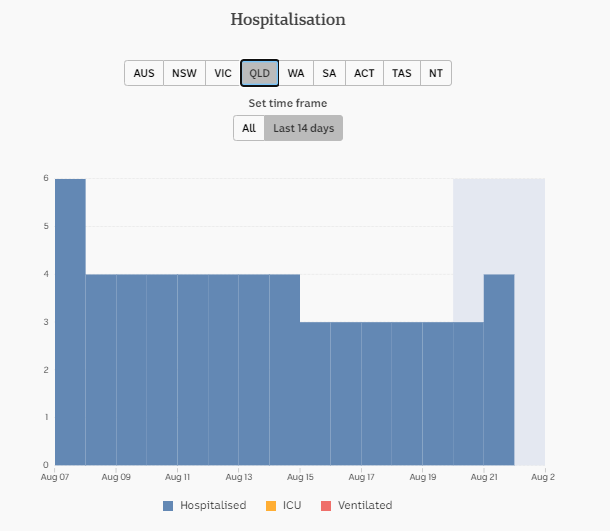
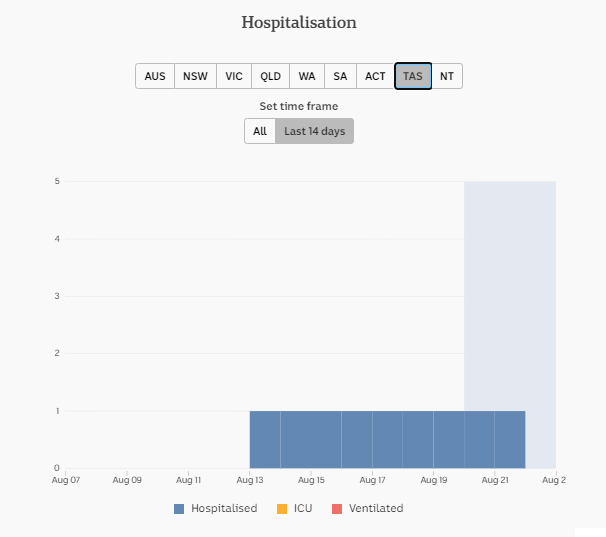
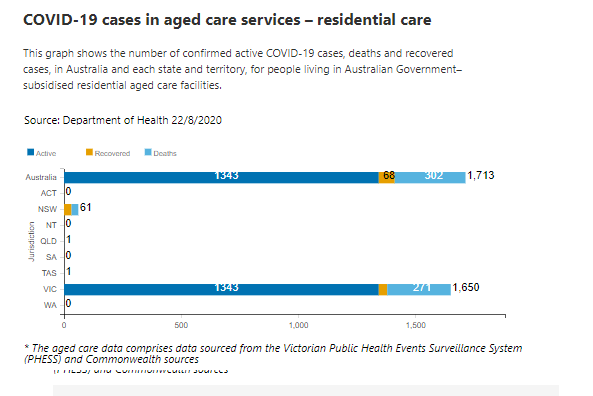
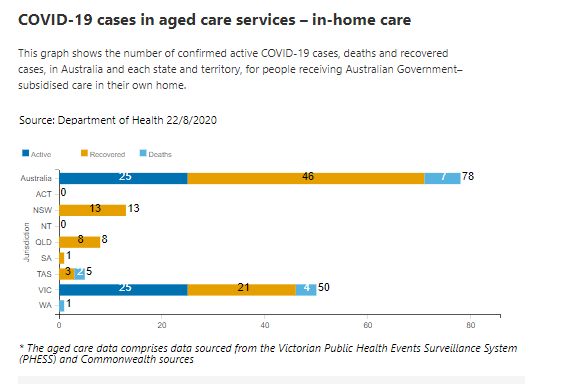
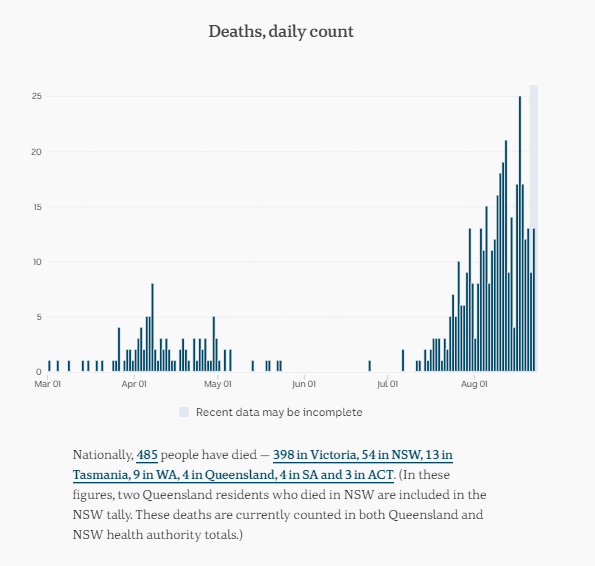
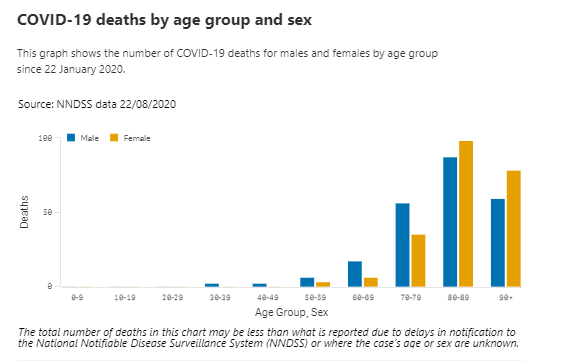
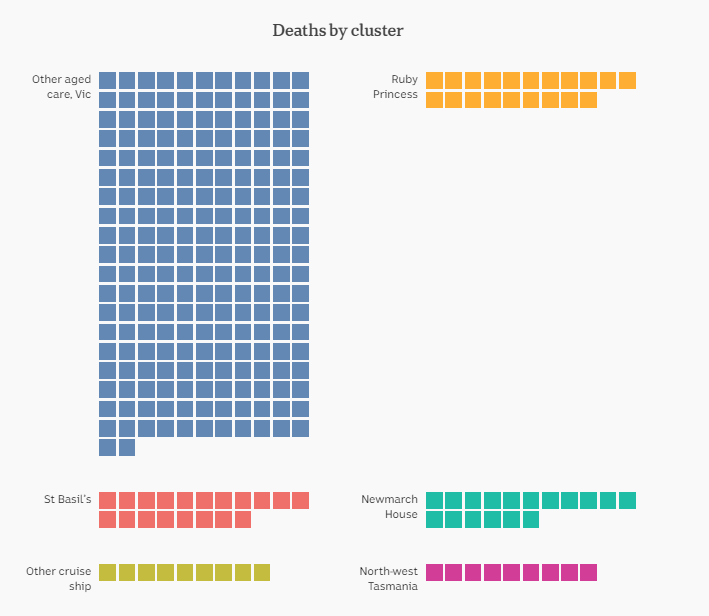

https://www.abc.net.au/news/2020-08-22/victoria-latest-coronavirus-covid-19-cases/12585452Key points:
There are 674 active cases in healthcare workers, up from 668 on Friday
Active cases linked to aged care outbreaks have also declined by 43 to 1,689
Chief Health Officer Brett Sutton said the rule on masks could be changed when there was zero community transmission
Premier Daniel Andrews has confirmed the second-lowest number of daily coronavirus cases in five weeks but warned Victoria moving out of stage 4 restrictions was a long way off.
Victoria recorded 182 new coronavirus cases on Saturday and a further 13 people have died.
It takes the state's pandemic death toll to 398.
Mr Andrews said the deaths included a man in his 50s, a woman in her 70s, two men and three women in their 80s, three women in their 90s and one woman in her 100s.
Ten of the deaths are linked to aged care outbreaks.
There are 610 Victorians in hospital, including 36 in intensive care and 22 of those 36 are on ventilators.
The latest figures come as Racing Victoria locks down seven Cranbourne stables linked to a staff member who tested positive to COVID-19.
The staff member was working with Cranbourne trainer Richard Laming.
Jockeys Alexandra Bryan, Michael Walker and Jason Benbow have been stood down from riding pending a coronavirus test.
Racing is one of few industries that was allowed to remain open throughout stage 4 restrictions.
Racing Victoria organised testing at the Cranbourne Turf Club on Saturday and expected results to be known on Sunday.
Plea to Victorians to get tested continues
Mr Andrews encouraged anyone with symptoms of the virus to get tested this weekend and asked they not be deterred by the cold and wet weather.
"It means we will know more … which is very, very important for all of us," he said.
Chief Health Officer Brett Sutton said it remained crucial that at least 20,000 Victorians came forward for testing each day, and urged symptomatic people to be swabbed.
Professor Sutton said while the number of mystery cases had increased by 30, the figure did not relate to Saturday's number but to the previous couple of weeks.
"The overall trend that I have seen is that a proportion of our total mystery cases are dropping," he said.
Mr Andrews said there were now 674 active cases in healthcare workers, up from 668 on Friday.
An outbreak at the Royal Melbourne Hospital's Royal Park campus is now linked to 155 infections.
Active cases linked to aged care outbreaks have declined by 43 to 1,689.
Cases in regional Victoria have also dropped — with Greater Geelong reporting 98 cases, 25 cases in Greater Bendigo, and four in Ballarat.
"We have seen a reduction in those big regional cities and we are seeing less cases across regional Victoria, that is exactly what we want," Mr Andrews said.
Cases in disability have risen by one to 63 — 50 staff and 13 residents — across 60 sites.
Professor Sutton said he remained particularly concerned about the Epping Gardens aged care outbreak, which has clocked 209 confirmed coronavirus cases.
He said an outbreak at the psychiatric ward at the Melbourne Clinic in Richmond was also a major focus. The source of that outbreak is unknown.
Melbourne lockdown will only end when second wave 'crushed'
Professor Sutton said masks would need to be part and parcel of how Victorians go about their daily lives for some time after stage 4.
"It's clear they are not always comfortable, they are not always convenient, but they are effective," he said.
"Everything counts when we are trying to crush this curve."
Professor Sutton said the rule on masks could be changed when there was close to no community transmission, or ideally zero community transmission cases.
"But there are other levels we can get to where maybe we don't require masks in all settings at all times in the way it is recommended at the moment," he said.
When asked about a possible end date for stage 4 restrictions, Professor Sutton said it remained a "grey area".
He said he was aware of the widespread discomfort of the strict restrictions on citizens and businesses.
"It is absolutely painful to be in stage 4, there is no question, and the additional restrictions on businesses and what it means for everyone's life is well known to the Government, is well known to me," he said.
But the alternative was a very, very slow reduction in numbers on a daily basis."
Mr Andrews said he understood Victorians were looking forward to the end of lockdown.
"I want it to be over so it's over. But we have to see it as an ultra-marathon," he said.
"You've got to crush the second wave before we open up … otherwise, you're just beginning the process of an inevitable third wave, the costs of which will be even greater."
Border zones between Victoria and SA possible
Mr Andrews flagged the possibility of a border bubble between Victoria and South Australia, similar to the system operating in border communities shared with NSW.
It would mean Victorians could, for example, get fuel and food from a South Australian community, rather than taking a much longer journey to Horsham or Mildura.
"I'm confident we'll be able to do that," he said.
When asked about law enforcement at the border, Mr Andrews said he was pleased that of the 16,115 border checks, just 13 vehicles had been turned back for lacking the required permit.
He said it was a testament to the responsible behaviour of Victorian citizens during this time.
Mr Andrew was also asked why Health Minister Jenny Mikakos had not been at a daily press conference for 12 days.
He said she was "busy" and he "wouldn't read anything into it".
"She's doing other things, lots of other things. When she needs to be here, she will be."
https://www.msn.com/en-au/news/australia/victoria-records-182-new-coronavirus-cases-and-13-deaths/ar-BB18eZNKThe premier also announced a new social media campaign would be rolled out from Saturday.
The advertisements will include famous faces including The Project host Waleed Aly, AFL star Tayla Harris and Kath and Kim character Sharon Strzelecki.
'Even though this is a challenging time, some humour is a very good thing to just try and remind people that we all have a part to play,' Mr Andrews said.
Mr Andrews said the celebrities in the advertisements were offered a 'small fee' for their work, which they could donate to charity.
On Friday, Prof Sutton was asked what daily case numbers he wanted to see to be confident about gradually reopening the state when the lockdown ends on September 13.
'I'd love us to be below 50,' he said.
'I would be really gratified if it we're in single figures but I'm not convinced that it will be.'
Decisions to lift restrictions would not depend only on daily case numbers but on '20-plus indicators', Prof Sutton said.
'How long are people taking between symptom onset and getting tested? How long are they taking between symptom onset and isolating? How many close contacts do they have for each person?' he said.
'They're all part of the KPIs that we're looking at internally.'
Mr Andrews urged Victorians not to waver in their lockdown efforts, even if the daily infection numbers were encouraging.
https://www.msn.com/en-au/news/australia/victorian-coronavirus-contact-tracing-delays-meant-teachers-worked-after-being-exposed/ar-BB18f3JdFailures in Victorian contact tracing meant teachers and students exposed to positive COVID-19 cases at four separate secondary schools were not notified until at least two weeks later.
One teacher said she was laughed at when she told a Department of Health and Human Services (DHHS) employee she had just received a text telling her to self-isolate as she was a close contact, but that because of the delay the text stated her isolation ended that day.
The schools — Manor Lakes, St Albans, Melton and Victoria University secondary colleges — are located in postcodes with some of the highest numbers of confirmed cases in Australia.
The delays to contract tracing in the past month meant teachers and other students were not told to isolate at the time they were most at risk of infecting others.
It also meant that those who feared they were close contacts but did not have symptoms were unable to get tested, as only those with symptoms or those who have received official notification that they are a close contact were eligible for testing.
Despite schools having been closed since early August, and the firm prospect they may not open again this year, the continuing failure to identify close contacts of positive cases deeply troubled the teachers who spoke to the ABC.
A teacher from one of the schools was not notified until 16 days after she had been in close contact with a student who had tested positive.
For a week after she was exposed, she continued to teach the same class the student had been in.
"I took my own precautions and was tested before I was even contacted by DHHS," she said.
"However, my students and many colleagues were continuing as if they were not a close contact for the entire period that they should have been quarantining due to these delays and miscommunication from DHHS.
"Speaking to staff from other schools has highlighted similar problems with contact tracing and poor communication from the department.
"I am truly shocked by these delays and I think they highlight why Victoria's numbers have been far higher than other states — particularly NSW, where it appears that they invested extra time and resources into contact tracing."
Delays causing 'stress and anxiety' for schools after positive cases
It is unclear if the contact tracing failures resulted in further infections, as the teachers who spoke to the ABC later tested negative.
Another teacher from one of the schools said a student whose mother contracted the virus working in an aged care facility attended class until mid-July. She left school the day her mother received a positive test result.
Emails seen by the ABC show staff at the school were struggling to reach the DHHS to clarify when they could reopen, and how to report people who they suspected were close contacts.
A senior Department of Education and Training regional advisor then told the school that it would be best to contact the DHHS via a hotline set up for all Victorians to access information about coronavirus.
A teacher said that once contact was made with the DHHS, it did not become any easier to clarify what the school was supposed to do, including whether it was allowed to remain open, how to organise a deep clean, and when close contacts would be told.
On July 24 — eight days after the student had attended school — the DHHS confirmed to the school that contact tracing had started.
But on July 27, a parent who was yet to hear from the DHHS about whether their child was a close contact called the DHHS coronavirus hotline. The parent was told that a contact tracing file had not even been opened for the school.
Plans for the school to reopen were further hampered when one of the workers employed to perform a deep clean tested positive.
The teachers did not wish to be identified as they were not authorised to speak about the positive cases.
Australian Education Union state president Meredith Peace said concerns had been raised by several school principals about the difficulties communicating with the DHHS about positive cases in the weeks immediately before schools were again closed.
The struggles with contact tracing in schools took place in the same weeks as a cluster linked to al-Taqwa College in Truganina ballooned to more than 180 cases.
"There's all the stress and anxiety around a positive case and who has been in close contact," Ms Peace said.
"I absolutely understand their frustrations around trying to manage this and not getting the information they needed in a timely manner."
On July 31, a bulletin was sent to principals confirming that the DHHS had established a specialised school closures team, which would provide case managers to specific schools in the event of an outbreak.
A DHHS spokeswoman said that the public health team had more than 2,600 staff and make contact with every positive case within 24 hours.
"Close contacts are followed up as soon as possible, either via phone calls or text messages.
"When a case is identified in a school setting, we work closely with the Department of Education and Training to manage any infection risks — this includes directing the school to close if a case has been on site while infectious and notifying any close contacts.
"We have established outbreak teams dedicated to each sensitive setting, including an educational setting-specific team with specialised staff who can provide rapid assessment and support to schools and their communities."
But Chief Health Officer Brett Sutton has said the majority of close contacts were now being contacted within 48 hours.
"We are still actively contact tracing every case but there is no question when you have hundreds of cases a day … it pushes those things out by a few hours," he told reporters last week.
"The fact we can get a message out and knock on the door of close contacts within 48 hours, 100 per cent virtually, is also very encouraging."
https://www.msn.com/en-au/news/melb...-covid-hit-melbourne-nursing-home/ar-BB18eI4nAn elderly care home resident who was transferred to hospital from a facility that was beleaguered with Covid-19 died with 18 sores on her body and was suffering from “pure neglect”, a nurse who treated her has told the Guardian.
The woman in her 90s was transferred to St Vincent’s private hospital in East Melbourne from the Kalyna Care aged care facility after she was found in her room with infected wounds on her leg.
The nurse involved with her care at St Vincent’s said when the woman arrived she and other nurses were “absolutely horrified” by the state she was in, and that the patient was delirious. The woman died last week.
Kalyna Care in Delahey was taken over by the Victorian government along with Glenlyn aged care facility in Glenroy and Florence aged care facility in Altona North almost two weeks ago due to the homes being unable to cope with coronavirus outbreaks.
The director of Kalyna Care told Guardian Australia last week that the home was well-run until the first case of Covid emerged in a staff member on 26 July, before spreading throughout the home’s workers, placing the home under immense pressure as residents became infected too.
But Guardian Australia can reveal the home failed an audit conducted by the aged care regulator three weeks earlier, on 5 and 6 July, which found the wounds of residents were not properly treated and that “management of pain does not ensure consumers are as free from pain as possible”.
An Aged Care Quality and Safety Commission assessment team found Kalyna Care flunked all five requirements on which it was tested. The commission found staff at the home “do not have the knowledge and competency to perform their roles effectively”.
The commission said there was evidence that “the deterioration [of] consumers’ wounds are not recognised and responded to in a timely manner” and that “changes in consumers’ pain is not recognised and responded to in a timely manner”.
The elderly woman who died was the subject of a previous Guardian report on Kalyna Care. She had long been suffering from several complex health conditions. But a nurse involved with her care at St Vincent’s said when the woman arrived, nurses were “absolutely horrified” by the state she was in.
“She was delirious, due to her wounds being infected,” the nurse said. “When an old person has an infection they are quite confused. We found multiple wounds all over her body. It wasn’t just one. We were stunned at how neglected she was. Someone attempted to wash her before she came over to us, but it was obvious her hair hadn’t been washed in a while.”
This was the culmination of six to eight weeks of neglect. I’ve never seen anyone so neglected before
The nurse told Guardian Australia that the nurses at St Vincent’s were well resourced and highly supported by management, and several nurses began immediately working to make the woman as comfortable as possible. But nurses were also under immense pressure, receiving aged care residents from multiple facilities, many of whom did not speak English, and did not always have time to extensively brief families, she said.
Exacerbating issues is that many nurses in private facilities are used to working with patients who come in for elective surgeries, such as ear, nose and throat surgery or plastic surgeries, and do not necessarily have experience working extensively with complex aged care cases, the nurse said. But she said the nurses immediately recognised the need to give urgent care to the woman and began to manage her pain and change her dressings.
“As the day went on we spent an hour-and-a-half to two hours redoing just her dressings,” the nurse said. “We started a morphine infusion. The whole day, everyone was distressed. This was pure neglect. It was really obvious she had been left in a room to rot. Someone said there was about 18 sores on her body. The worst was on her sacrum [the bone at the base of the spine]. It was roughly two centimetres, maybe three centimetres deep and necrotic.”
The nurse said the wounds ranged in severity. Some were recent, and mild, she said, the result of not being rotated and skin pressing against the bone. But other wounds were deep and infected, she said, and had been exposed for prolonged periods to moisture.
“This was the culmination of six to eight weeks of neglect,” the nurse said. “I’ve never seen anyone so neglected before. She did not die of natural causes. Her case should be referred to the coroner.”
A spokeswoman for Victoria’s coroner’s court said: “At this stage, no deaths from Kalyna aged care in Delahey have been reported for inclusion in the state coroner’s investigation into aged care deaths.” A spokesman from St Vincent’s Private East Melbourne said the hospital was “confident our staff gave the patient’s family an accurate description of her physical health, both at admission and throughout her stay, via regular contact”.
Since the beginning of Victoria’s second wave of Covid-19, St Vincent’s Private has admitted more than 50 people from aged care facilities for care and treatment, the spokesman said.
While the commission conducted its audit of Kalyna Care in early July, its final report was not delivered until 5 August, when the regulator instructed Kalyna Care to agree to make changes to improve care for residents. A commission spokeswoman said the regulator then became aware of a case of Covid-19 at Kalyna Care on 27 July.
“The situation at Kalyna Care has been very challenging for everyone involved,” the spokeswoman said. Kalyna Care was previously audited in September 2019. It passed with flying colours and the commission relicensed it for another three years.
The situation at Kalyna Care has been very challenging for everyone involved
But when an assessment team visited again less than a year later, and before the home first reported any Covid-19 cases, they discovered Kalyna Care failed licensing requirements including making sure that “consumers receive safe and effective personal and clinical care”, properly managing medical risks, and ensuring staff were skilled in recognising when the medical condition of residents was declining.
“Management have not adequately identified deficits in staff competency, knowledge and practice,” the commission said in the audit report.
“Consumer representatives interviewed indicated that when requested staff are responsive to consumers care needs, while a representative described how she must ‘push everything’ in relation to her father’s care.”
The regulator said Kalyna Care acknowledged the problems and agreed it had to improve. “The assessment contact conducted in July was not in response to a Covid-19 outbreak,” a commission spokeswoman said.
“There was no outbreak at this time. The commission does not provide information about the findings of assessment contacts to the minister or other government authorities in advance of making a decision about the service’s compliance. The findings of the assessment contact were taken into account in issuing the ‘notice to agree’ to the provider on 5 August 2020.”
She said the federal aged care minister, Richard Colbeck, was aware of the commission’s work in monitoring and supporting Kalyna Care’s efforts to manage its outbreak, alongside multiple other agencies. The commission advised the minister that it had issued the notice to agree on the day it was issued.
Colbeck told Guardian Australia Kalyna Care first requested workforce assistance from the department on 30 July, four days after the first case in a staff member.
“From 30 July 2020 the department worked with the Victorian Aged Care Response Centre and the Victorian Department of Health and Human Services and sourced staff for the service,” Colbeck said. He said he did not know about the commission’s audit of the home in July until it had finalised its report in August.
“The reason for this is that, in making a decision about a service’s compliance with the Aged Care Quality Standards, the commission considers a range of information including evidence gathered during an assessment contact, the approved provider’s response to the assessment team’s report resulting from the contact, and other information available to it about the service,” he sad.
“It is vital that this process is undertaken objectively and independently.”
Victoria’s Department of Health and Human Services first had contact with Kalyna Care on 28 July, at which time they only had a single confirmed case linked to the facility. The department advised on operational changes required during an active outbreak.
A DHHS ‘outbreak squad’ visited the facility the next day to offer on-the-ground infection prevention and control advice. However, the commission is a federal agency, and the outcomes of its audits are communicated to the facilities it audits, but not to the state government.
A Victorian government spokeswoman said the federal government only requested help managing the facility last week. “A dedicated health team and management team from Djerriwarrh Health Services took charge last Thursday to provide on-site support and staffing at Kalyna Care, including infection prevention control advice, and is in daily contact with families,” she said.
The chair of the board of Kalyna Care, Halja Bryndzia, said she would not be answering further questions from Guardian Australia.
But previously she had described the situation at the care home as “gut-wrenching”. She said the home had asked for help, which was not immediately forthcoming. “We made repeated and desperate staffing requests and we couldn’t get them, and those requests started from the end of July,” she said.
“But Victoria, generally, has a problem with infected aged care staff and healthcare workers, and so they needed to start sourcing workers from interstate. Eventually, we had people from Queensland and New South Wales come in to help us this week. In the meantime, we are a Ukrainian facility and so we called out to that community for anyone trained and willing to help. We are just one of about 100 places in Victoria that lost staff through no fault of their own.”
https://www.msn.com/en-au/news/aust...ught-in-to-help-struggling-nurses/vi-BB18ePGJA hospital in Bendigo has signed up some new staff to help lift the load on its nursing staff during the pandemic. Therapy dogs are boosting the spirits of exhausted frontline health workers.
https://www.msn.com/en-au/news/aust...dant-lines-on-a-map-minister-says/ar-BB18ftByState borders are 'anachronistic lines on a map' and have caused more anxiety than they are worth, the Federal Member for Gippsland Darren Chester has said.
Mr Chester said the pandemic was an opportunity to rethink local, state and federal political representation, with a move towards larger regional governments.
The call comes amid concerns about a constantly changing border permit system with New South Wales.
Mr Chester said decisions about border closures had been made in cities without consideration for how they affected country communities.
He said borders were "redundant in the 21st century" and did not meet the needs of their modern community.
"…What we're seeing now with the decision to close borders, particularly the Victoria and NSW one, is a lack of understanding of how our border communities work," Mr Chester said.
"It's added to the stress and anxiety.
"These anachronistic lines on a map that are dividing our country … are complete madness."
Mr Chester said a solution had been on his mind since the start of his career.
"We need to move towards a system where regional people have more control over their destiny, so larger regional governments, and a national parliament," he said.
"That's my personal view, it's not a government view, a not a cabinet view, it's just my personal view that I've had since I entered politics."
Borders, a help or hindrance?
Dr Sara Renwick-Lau is a GP in East Gippsland's Mallacoota, which is ostensibly within the state of Victoria.
But their nearest Victorian town is nearly two hours away.
East Gippsland itself has no active cases of COVID-19, and is 300 kilometres away from the nearest Victorian cases in the neighbouring Wellington Shire.
"Our closest town is Eden in NSW, that's where a lot of people go to the dentist, and where we access our vets and other tradespeople," Dr Renwick-Lau said.
"If someone from Mallacoota is trying to access medical care in Bega hospital [in NSW], they have to be treated as COVID positive.
"We're having difficulty accessing our visiting health services, like our mental health services."
Dr Renwick-Lau said the summer bushfires that burnt at least 100 Mallacoota homes also raised the question of whether state borders were a help or hindrance in fighting the fires.
She said both states' emergency apps were missing essential information for their community.
"The fire would look like it ended, there was a state border and the fire just stopped there — you had to mentally bring together both of those maps to get an idea of what was happening with the fires," she said.
Dr Renwick-Lau said the only thing that changed when crossing the border was the attitude towards rural people.
"NSW has got a much better idea of how to look after people in rural areas, Victoria is a bit more Melbourne-centric," she said.
https://www.msn.com/en-au/news/australia/rabbi-slams-ultra-orthodox-sect-for-coronavirus-loophole/ar-BB18fADgA rabbi has slammed an ultra-Orthodox sect for allegedly using loopholes to break Victoria's lockdown rules during a deadly second wave of coronavirus cases.
The Satmar Hasidic group were last month accused of holding illegal gatherings in Ripponlea and St Kilda East.
But the worshippers were able to dodge being fined by police by claiming they hosting a support group, Port Phillip Leader reported.
According to the Department of Health and Human Services (DHHS), essential support groups, such as those for drugs and alcohol, can continue to operate during Stage 4 lockdown.
'These support groups are subject to permitted workplaces and require a COVID-safe plan with density requirements of one person per four square metres,' DHHS says.
'When attending a support group, you must keep a distance of 1.5 metres between people at all times, and wear a face covering at all times, unless you have a lawful exception.'
In Stage 3 lockdown, support groups are capped at 20 attendees.
Rabbi Gabi Kaltmann said the group are 'an embarrassment' to the wider Jewish community, while describing their actions as 'appalling'.
'They've thrust the Jewish community into the spotlight for all the wrong reasons by exploiting this loophole,' he said.
'You've got 99 per cent of us doing the right thing, not meeting and yes, it's difficult, but the sanctity of life is the most important thing and stemming the tide of this pandemic must come first.'
Melburnians in Stage 4 lockdown cannot attend religious services in person.
Rabbi Gabi has adapted to the restrictions by engaging worshippers via online ceremonies.
'We've gone out of our way to try and find ways to continue deliver spiritual services without breaching COVID restrictions and then you've got this fringe, far-right group who have found a loophole and they're exploiting it,' he said.
Victoria Police can issue on the spot fines of up to $1,652 for individuals failing to follow the lockdown restrictions.
https://www.abc.net.au/news/2020-08-22/victoria-latest-coronavirus-covid-19-cases/12585452Victoria Police issued 161 fines for suspected breaches of the Chief Health Officer directions in the 24 hours to 11:00am.
Of these, 24 were issued to people who failed to wear a face covering, 58 to people breaching curfew, and 13 fines were issued at vehicle checkpoints.
One of the fines issued was to a man not wearing a mask near Flinders Street Station who told police he "did not believe in restrictions".
Another man was fined for walking in Abbotsford between 8:00pm and 5:00am and told police he "forgot" why he was outside.
https://www.msn.com/en-au/news/australia/nsw-records-nine-new-coronavirus-cases/ar-BB18foadew South Wales has recorded nine new coronavirus cases in the past 24 hours.
There were 30,810 tests carried out in the same time period.
Dr Jeremy McAnulty said four are close contacts of previously reported cases, whose source is still being determined.
https://twitter.com/NSWHealth/status/1296975480352985088
Two cases remain under investigation.
One case is a household contact of a previously reported case linked to the Tangara School for Girls cluster in Cherrybrook.
Two are household contacts of a person who tested positive as a result of the Bankstown funeral cluster.
Dr McAnulty also announced that a previous case has visited Westfiled in Mount Druitt on
Wednesday August 12 between 12pm and 12:30pm
Friday August 14 between 11am and 12pm
Anyone who visited the shopping centre on those dates has been asked to monitor their symptoms and if symptoms do arise, to get tested and self-isolate immediately.
Figures in the state have been low this week with just two new cases reported yesterday.
The state now has a total number of 3792 cases of COVID-19.
https://www.msn.com/en-au/news/australia/covid-rules-for-community-sport-tightened-in-nsw/vi-BB18ePGKCommunity sporting clubs in Sydney are predicting there will be problems enforcing new COVID-19 rules this weekend. Among the hardest to police - a one-spectator rule and a ban on carpooling to matches.
https://www.msn.com/en-au/news/australia/second-hotel-quarantine-security-guard-tests-positive-in-nsw/vi-BB18fBzTNSW Chief Health Officer, Kerry Chant, says a second security guard has tested positive to coronavirus after working at the Sydney Harbour Marriott Hotel.
https://www.msn.com/en-au/news/australia/pub-fined-10-000-over-birthday-party-for-craig-laundy-s-son/ar-BB18f26NA Sydney pub has been issued fines totaling $10,000 after it hosted a birthday party for Craig Laundy’s 22-year-old son.
The Red Lion Hotel in Rozelle – owned by Craig Laundy’s sister - was issued two $5,000 fines on Friday over a party thrown for Charlie Laundy on August 2.
An investigation was launched after an anonymous tipster complained about the event, which allegedly catered for 40 people.
Those in attendance were seen on CCTV footage mingling. failing to social distance, as well as breaching gathering limits outlined in Public Health Orders.
https://www.msn.com/en-au/news/australia/new-coronavirus-cluster-at-brisbane-youth-detention-centre/vi-BB18f2BPQueensland has tightened restrictions after announcing nine new coronavirus cases in the past 24 hours.
Aged care homes and disability accommodation will be locked down as of today and limits on gatherings have been reduced.
In home and outdoor gatherings will be limited to 10 people, effective immediately in areas including Brisbane, Ipswich, Logan, the Scenic Rim, Lockyer Valley, Morton Bay and Redlands.
Home and outdoor gatherings have been limited to 30 people everywhere else across the state.
Queensland Premier Annastacia Palaszczuk also announced additional fever clinics would be set up and urged anyone with the mildest of symptoms to get tested for the virus.
The restrictions come after the Premier announced another six positive coronavirus cases linked to a cluster at the Brisbane Youth Detention Centre overnight.
The cases were detected after a female staff member at the centre returned a positive test.
“We are concerned about the now total of seven positive cases linked to the youth detention cluster because people have been out and about in the community,” she said.
Authorities are investigating the original source of the cluster.
The state also recorded three positive cases from crew members on ships, but the Premier said those cases did not threaten the greater community.
https://www.msn.com/en-au/news/australia/queensland-records-nine-new-covid-19-cases-six-linked-to-detention-centre-cluster/ar-BB18f6ECSix new COVID-19 cases have been linked to a case at the Brisbane Youth Detention Centre, a cluster the Queensland Premier says is of concern because "people have been out and about in the community".
Three additional cases have been detected in crew members on ships, but Queensland Premier Annastacia Palaszczuk said at a press conference on Saturday morning that those cases were not of concern.
Restrictions on gatherings have been reintroduced in Queensland following the outbreak.
Ms Palaszczuk said both indoor and outdoor gatherings in south-east Queensland would be limited to 10 people "effective immediately".
A supervisor at the youth detention centre, a 77-year-old Ipswich woman, tested positive for COVID-19 on Wednesday night, triggering a massive health response.
Authorities are still working to discover how the supervisor first contracted the virus, with genomic testing under way to determine if there was any link between the woman and a small outbreak in Ipswich and Logan last month. Queensland Health has tested 127 youths in detention and more than 500 staff.
The children, some as young as 13, have been locked down in their rooms and were expected to stay isolated for 14 days.
"We are concerned about this cluster because people have been out and about in the community," Ms Palaszczuk said.
New restrictions
The restrictions on gatherings will include "people living in the areas of Brisbane, Ipswich, Logan, Scenic Rim, Lockyer Valley and Moreton Bay and Redlands", Ms Palaszczuk said.
Gatherings outside the south-east corner will be restricted to 30 people - indoors and outdoors.
"What we are concerned about is that people, these people, have been out and about in the community, so what we also need are Queenslanders to realise, especially in south-east Queensland, is that if you have any symptoms whatsoever, we need you to get tested now."
More cases 'likely'
Queensland Health Minister and Deputy Premier Steven Miles said it was likely more COVID-19 cases would be detected over the weekend following the latest outbreak.
"This is precisely what we have been planning for," Mr Miles said. "Our contact tracers are working and have been working through the night."
The state conducted 9447 coronavirus tests in the past 24 hours, "but we need to test more over this weekend", Mr Miles said.
He urged people in the greater Brisbane and Ipswich areas "with any symptoms at all" to get tested.
"There will be likely more cases over the weekend. If there are cases out there, we hope we find them."
https://www.msn.com/en-au/news/australia/testing-blitz-underway-as-qld-youth-detention-centre-cluster-grows/ar-BB18ftVIA testing blitz is underway in Brisbane, as health authorities confirm several new coronavirus cases linked to a youth detention centre.
Nine cases were recorded overnight with six of the cases linked to the detention centre - six workers and two family members.
Qld Chief Health Officer Dr Jeannette Young confirmed further cases would be likely.
The Palaszczuk government responded with the immediate tightening of restrictions.
Aged care homes and disability accommodation would be locked down as of today and limits on gatherings were reduced.
Home and outdoor gatherings would be limited to 10 people effective immediately in areas including Brisbane, Ipswich, Logan, the Scenic Rim, Lockyer Valley, Morton Bay and Redlands.
Home and outdoor gatherings were limited to 30 people everywhere else across the state.
https://www.msn.com/en-au/news/australia/here-s-what-we-know-so-far-about-queensland-s-coronavirus-outbreak-in-the-brisbane-youth-detention-centre/ar-BB18fjHaIt all started when a prison worker, who was largely asymptomatic, tested positive to coronavirus after working five shifts at the Brisbane Youth Detention Centre in Wacol.
Now, restrictions have been reimposed across the state and nearly 130 inmates, some as young as 13, have remained in lockdown in their cells as they and 500 staff at the facility undergo rigorous testing.
Six people that are linked to the facility have tested positive to the virus overnight, bringing the total number of cases linked to the outbreak to seven.
With more positive results expected in coming days, authorities are bracing for what's to come.
So where did this outbreak come from and how has it gotten out of control?
Here's what we know so far.
What caused the outbreak?
We don't yet know.
The 77-year-old prison supervisor contracted the illness earlier this week but health authorities are still uncertain where she contracted it.
Chief Health Officer Jeannette Young said extensive testing was underway to find out the source of the woman's mystery infection.
"We're doing genomic sequencing as we speak and we should have those results at the end of next week," Dr Young said.
"That will give us a better idea about where this strain of the virus originated.
"We're exploring all possibilities at the moment."
Dr Young said the woman had indicated she had not travelled interstate or overseas.
She said Queensland Health had not yet identified any contact with a known or likely source.
The woman showed no coronavirus symptoms aside from a headache and was admitted to Ipswich Hospital with minor symptoms.
Could the case be linked to the Melbourne trio?
Authorities don't know yet.
Dr Young said she was exploring "all possibilities".
She said Queensland Health will investigate if there was any link to the women who travelled to Melbourne in July and failed to adhere to quarantine directions.
"At this stage, we're not aware of any venues that she has been to that those young women who went down to Melbourne have been to during that period," Dr Young said.
"But that is the work that we will now be doing thoroughly over the rest of today to work out all of her contacts, where she has been and where she might have got this infection."
Who are the six people who have tested positive?
Four were workers at the youth detention centre and two were close contacts of those workers.
Here's a full list of the new cases:
Male worker from the suburb of Marsden, in the Logan City Council area
Male worker who is also a contractor for QBuild and had been working on upgrades at the Springwood State High School
Wife of the above worker, the couple live in the Brisbane suburb of Carindale
Male worker who also worked at a disability accommodation facility in North Ipswich
Relative of the above worker who had visited the Ipswich Hospital
Female worker who lives in the Brisbane suburb of Forest Lake
How concerned are authorities?
Very.
A full list of places the new cases have been to is yet to be released by Queensland Health.
"As we get that information, we will absolutely be letting the community know," Ms Palaszczuk said.
The Premier said she was concerned because she feared the cluster could be more widespread and that more cases would be detected in coming days.
"We're concerned about this cluster because people have been out and about in the community," Ms Palaszczuk said.
She has urged anyone in the Great Brisbane region who may be showing symptoms to immediately get tested.
"We're concerned about any contacts these people might have had," she said.
"Let's also bear in mind too that we may get further cases of workers at the detention centre."
What about the three other new cases?
Three of the nine cases recorded overnight were from onboard a cargo ship that was off the coast of Townsville.
But the Premier said she wasn't concerned about those cases as they didn't pose a major risk.
"We are not worried about the crew members on the ships because they are being taken care of and they are no concern to us," the Premier said.
Those infected with the virus on cargo ships have been transported to Townsville Hospital, where they are recovering.
So what's next?
Dr Young urged Queenslanders living in the Greater Brisbane region to "have a weekend at home" and adhere to social distancing.
"We'll get through this together, I'm very confident we will, if everybody listens to the messaging and we all play our part to keep everyone safe," Dr Young said.
"The key is social distancing."
She said it was essential people got tested if they were feeling unwell.
"Everyone should think about their personal COVID-safe plan and, if they're in that vulnerable group, start thinking about how they can manage themselves," she said.
"This is maybe the weekend to have a weekend at home."
https://www.msn.com/en-au/news/australia/aged-care-homes-in-greater-brisbane-to-go-into-lockdown/vi-BB18ffKsCEO of Leading Age Services Australia, Sean Rooney, weighs in on the Federal Government's response to coronavirus outbreaks in aged care.
https://www.msn.com/en-au/news/australia/queensland-government-denies-toddler-hotel-quarantine-exemption-after-open-heart-surgery/ar-BB18eXomA two-year-old girl could be required to recover from open-heart surgery in hotel quarantine — against the wishes of her doctors — because the Queensland Government refuses to grant her family an exemption.
Luella Gilliland underwent the surgery, for the second time in her life, at The Children's Hospital at Westmead in Sydney last week.
The life-saving operation could not be delayed and was already in motion when Annastacia Palaszczuk's Labor Government closed the border to people who had visited New South Wales.
"She's having night terrors, she's still very emotional, obviously asking, 'When can we go home?'" her mother Laurren Gilliland told the ABC.
"She's reached her coping abilities for a toddler who has just gone through a traumatic event such as open-heart surgery."
Returning Queensland residents are currently required to go into hotel quarantine, but Luella's doctors say that would harm her recovery.
"There are significant psychological and physical risks that are posed to Luella," her mother said.
The family hoped to go home to the Sunshine Coast next week, and has twice submitted applications for an exemption to hotel quarantine.
<< THE ARE VERY FINE SURGEONS IN BRISBANE AND THE MAJOR SE QLD REGIONAL HOSPITAL SO I WONDER WHY THEY HAD TO TRAVEL TO SYDNEY FOR THE SURGERY >>
But they were shocked when both were rejected by Queensland Health.
"The Chief Health Officer has reviewed your letter and the information provided … and has suggested you wait to travel until you are able to safely quarantine," the second rejection letter said.
Ms Gilliland said she "thought it would be a no-brainer" to be allowed to isolate at home.
"They wouldn't put a toddler recovering from open-heart surgery … in hotel isolation," she said.
Exemptions from hotel quarantine have recently been given to the likes of pop-star Dannii Minogue, reportedly because she's claustrophobic, and Brisbane Broncos Coach Anthony Seibold, when he returned from time in Sydney.
"Exemptions are rarely granted, and usually only in exceptional circumstances," Queensland Health said in a statement.
Ms Gilliland is fuming that her daughter's circumstances do not meet those standards.
"You've got celebrities, you've also got footballers, who have had these exemptions granted.
"What makes them exceptional circumstances — what makes them exceptional?" she said.
The family have lodged a second application with written statements from five doctors including Luella's surgeon and paediatric cardiologist.
"Luella is at particular risk from COVID-19 given her underlying cardiac condition and should not be exposed to other individuals who may be infected with the virus, which is a risk in hotel quarantine," one specialist wrote.
"It is critical for Luella to return to an environment that feels safe, predictable, and familiar for her when returning to Queensland," another wrote.
"Two weeks of mandatory hotel quarantine exposes Luella to prolonged stress and is likely to impede her psychological adjustment following her surgery," they said.
The family has even created their own "COVID Safe Plan" showing how they can isolate if they get home.
Queensland Opposition Leader Deb Frecklington said compassion and common sense were needed.
"Sadly, little Luella and her family are victims of Annastacia Palaszczuk's blatant politicisation of COVID-19," she said.
"Labor were quick to roll out the red carpet for Dannii Minogue but, to their shame, won't lift a finger to help this little girl," she said.
Queensland Health Minister Steven Miles was contacted for comment, but has not provided a response.
But in a statement, his health department said there were processes in place to ensure people in hotel quarantine, who have complex medical needs, had access to appropriate health care.
"We understand the health directions in place are strict, however they are designed to protect Queenslanders from COVID-19."
https://www.abc.net.au/news/health/2020-08-22/the-search-for-patient-zero-disease-outbreaks/12575858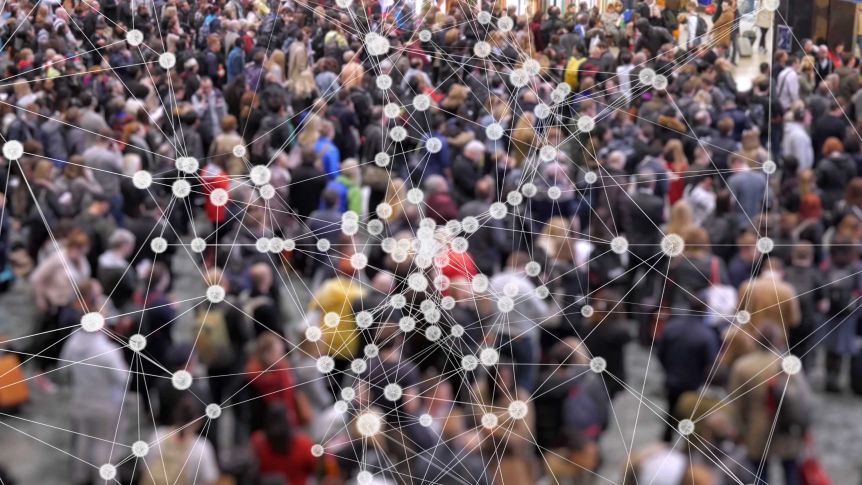
Tracing the origin of disease outbreak can be difficult, especially once it's spreading in the community.
Tracking down the source of a disease outbreak is important.
It helps us to answer questions about how and when people first become sick, and to slow the spread of infection, both now and in future outbreaks.
But recent revelations about Victoria's coronavirus hotel quarantine program at the centre of the state's devastating COVID-19 wave are a reminder that outbreaks are often more complicated than they seem.
So what's the value in trying to find "patient zero"? And what else needs to be considered when tracing a disease outbreak?
"Patient zero" can mean different things
Patient zero is generally taken to mean the first case in a disease outbreak — but the term is often applied in different ways.
When it comes to zoonotic diseases (ones that jump from animals to humans, like SARS-CoV-2), patient zero might refer to the first-ever human case — the point at which the virus spills over from an animal to a human.
In popular culture, patient zero is often used to refer to the first case in a particular region, or the first case that's come to the attention of health authorities.
These are not always the same thing.
"Sometimes the first case that's notified to us is not the first case in an outbreak," Victoria's Chief Health Officer Brett Sutton said last month.
"Sometimes the first person who develops symptoms is not the first person who's been exposed."
Similarly, just because someone is identified as the first case doesn't mean they spread the disease to anyone else, or behaved irresponsibly — with something like coronavirus, they may not even know they're sick.
This is part of the reason why patient zero is not a term epidemiologists or public health experts tend to use — it's not specific enough.
They prefer the term index case to refer to the first person authorities became aware of in an outbreak (which gives them a clue something's going on), and primary case to refer to the person who introduces a disease into a new population — a community, country or the world.
Sometimes, the primary case and the index case will be the same person, but not always. For many outbreaks — such as HIV/AIDS, and possibly COVID-19 — we will never know the primary case.
Understanding how diseases spread
While the use of the term patient zero can be fraught, tracing outbreaks back to their beginnings remains important in public health.
In the early days of an outbreak, it's still possible to catch embers of disease before they become full-blown fires, says Raina Macintyre, head of biosecurity at UNSW's Kirby Institute.
"You can actually stamp them out, by identifying every case, tracking every contact, quarantining them, making sure there's no further spread," Professor Macintyre says.
"The earlier in that process that you identify it, the greater the chance of stopping it completely."
But even after those critical first days or weeks, tracing cases back to patient zero can still give us useful insights into how disease spreads.
In the aftermath of the 2010 cholera outbreak in Haiti, which killed more than 9,000 people, epidemiologists traced the chain of disease transmission back to some of the very first cases.
Infectious diseases physician Louise Ivers, who led the work, says it helped researchers understand how the disease had spread, and re-affirmed the role health services and adequate sanitation systems play in controlling the spread of cholera.
"It's very important to ... understand the structures, the systems and the problems that cause outbreaks to happen, with your eye on how you can prevent them in the future," says Dr Ivers, an associate professor of global health at Harvard University.
'That's usually the purpose of trying to understand an index case or a first case ... you want to try to establish the opportunity to learn from this and try to make sure it doesn't happen again."
https://www.abc.net.au/news/2020-08-22/security-guards-not-experienced-using-ppe-coronavirus-paul-kelly/12586090Key points:
Two security guards at the Sydney Harbour Marriott Hotel have tested positive to COVID-19
Professor Kelly said the matter would likely form part of the review into the hotel quarantine system
A cap on international arrivals of 4,000 passengers has been put in place
Federal health authorities have conceded "mistakes happen" when it comes to security guards dealing with coronavirus hotel quarantine arrangements, suggesting strict adherence to appropriate use of personal protective equipment can pose a challenge for some.
New South Wales authorities have confirmed a second security guard working at a Sydney hotel has tested positive for COVID-19 and they are not sure where he picked up the virus.
Australia's borders have been closed to all but Australian citizens and permanent residents since March, and any international arrivals have been forced into a fortnight of hotel quarantine the moment they set foot on Australian soil.
"Mistakes happen," Acting Chief Medical Officer Paul Kelly said.
"Wearing personal protective equipment is not something that security guards are necessarily used to or potentially good at.
"It's very easy to make a slipup in relation to personal protective equipment, even for a well-trained healthcare worker — and we've seen healthcare worker outbreaks and aged care worker outbreaks over time."
Professor Kelly argued the incident was another example of the importance of the hotel quarantine system, acting as a barrier between international arrivals potentially carrying coronavirus and the wider Australian community.
He said the matter would likely form part of the review into the hotel quarantine system, currently being undertaken by former senior public servant Jane Halton.
"While this was unfortunate with that particular security guard, my understanding from New South Wales is there have been no further people that have been infected through that process," he said.
Caps on international arrivals
A cap on international arrivals of 4,000 passengers has been put in place — particularly with Melbourne not currently accepting any passengers due to the large number of coronavirus cases still being recorded in Victoria.
"This very much relates to the capacity in the hotels: the capacity in terms of rooms, but also in terms of the supports that are needed to ensure that hotel quarantine is safe and effective, and that the support that is given to people in hotel quarantine including physical supports, but also mental health supports — it's not an easy thing to spend 14 days in a hotel room — are provided," Professor Kelly said.
"It's being discussed at National Cabinet every time that National Cabinet meets, every two weeks.
"It was discussed yesterday, it was decided to keep those caps at the same amount again for the next two weeks."
On Thursday, the Department of Foreign Affairs and Trade told a parliamentary committee that there were around 19,000 Australians overseas currently trying to return home.
Almost 3,000 of those people were classified as "vulnerable" because they are facing financial or medical difficulties.
Professor Kelly said health authorities recognised the desperate situation some found themselves in, but warned hotel quarantine and international arrival caps needed to remain in place for the foreseeable future to control the spread of coronavirus.
The dangers of a blame game
The term patient zero first emerged in the United States in the 1980s when researchers were attempting to understand how HIV/AIDS was spreading in the community.
In a study looking at the sexual contacts of gay men infected with AIDS, researchers labelled one person in the sexual network as patient "O" — which stood for Outside California. They were placed at the centre of the diagram and linked to several other cases.
This letter O was later misread as the numeral 0.
Later, this patient zero was revealed to be a French-Canadian flight attendant named Gaetan Dugas. He was subsequently, and incorrectly, blamed for setting off the entire US AIDS epidemic.
While the researchers never suggested Dugas was the source of the outbreak, and research later confirmed the virus entered the US long before he did, the idea of patient zero stuck.
In the case of Dugas, the label perpetuated ideas of stigma and shame and created an opportunity for scapegoating and blame.
And we see those same issues playing out with coronavirus today.
In February, the World Health Organisation put out a warning about the risks of social stigma around a COVID-19 diagnosis. They say stigma and blame can push people to hide their illness or avoid testing, making it even harder to pin down a disease outbreak.
Looking at the big picture
Disease outbreaks can rarely be simplified to a single index case, despite how appealing that narrative can seem.
Rather, outbreaks are the "combination of an infectious agent and the social situation in which they find themselves", Dr Ivers says.
It's a story that's played out again and again through history — from the 1918 flu, to HIV/AIDS, and now with coronavirus. Different countries handle outbreaks differently, meaning the same disease introductions have very different outcomes.
When thinking about patient zero in the context of COVID-19, it's less important to focus on who — but how and why?
Scientists have been warning for decades that a pandemic like the one we're living through would happen, thanks to humans' ever-growing expansion into animals' natural habitats.
It only takes one jump — from animal to human — for a new deadly disease to kick off.
It starts with one person. But how that outbreak develops — if it becomes an outbreak at all — depends on so much more.
https://www.msn.com/en-au/news/australia/labor-mp-andrew-giles-criticises-aged-care-minister/vi-BB18fqu9Labor MP, Andrew Giles, says he is concerned by the Federal Government's 'ongoing failure' to admit responsibility for coronavirus outbreaks in Victoria's aged care facilities.
https://www.msn.com/en-au/news/australia/liberal-mp-publicly-supports-minister-richard-colbeck/vi-BB18fuyAColleagues of Aged Care Minister, Richard Colbeck, are publicly backing him, a day after he struggled to answer basic questions about how many Australians had lost their lives from coronavirus in aged care facilities.
https://www.msn.com/en-au/news/australia/coronavirus-pm-defends-minister-over-aged-care-blunder/vi-BB18f181Scott Morrison has come to the defence of the Federal Minister for Aged Care over an embarrassing blunder. During a senate committee into the crisis, Senator Richard Colbeck couldn't recount the number of seniors whose lives have been claimed by COVID-19.
https://www.msn.com/en-au/news/other/shattered-heartbroken-financially-ruined-stranded-australians-plead-for-help/ar-BB18eRNiWith revelations this week that 18,800 nationals were stranded overseas, it became clear that the government’s strict international arrivals cap was causing significant disruption for Australians trying to get home.
The government introduced the cap in July to ease pressure on the hotel quarantine regime, but the measure has prompted the few airlines still offering flights to prioritise business and first class passengers as a means to remain profitable.
Related: ACCC investigates complaints about airlines flying to Australia during Covid-19
Reports of economy passengers being repeatedly bumped for last-minute business customers, and planes flying with as few as four economy passengers, have fuelled criticism of the cap.
Guardian Australia has been inundated with emails from Australians stranded overseas, among them a man desperately trying to get back to his dying father and a nurse who left to visit her sick mother in Denmark. Here are a few of their stories.
Scott McCourt
The Berlin-based Australian photographer had originally planned to fly home in May, but that flight was cancelled indefinitely.
After hearing that his father in Port Macquarie had been diagnosed with a terminal illness, McCourt desperately booked a new flight home. He last saw his father in September 2019.
Related: Australians stranded overseas as airlines fly with as few as four economy passengers
His first booking was for 5 August, but Qatar Airways has since cancelled his economy class ticket four times. Despite submitting paperwork to the airline proving his father’s sickness, he was told he did not qualify on compassionate grounds for an early rescheduled flight. Instead he was asked to pay for a business class seat on one of the flights for which his economy booking had been cancelled, an offer he described as “heartless”.
“I rang their booking office where I was … showed zero compassion towards my situation,” McCourt said. “I was genuinely speechless and really had to keep myself from getting angry.
“I am desperately trying to get home to my dying father but this airline is only interested in taking people’s money and bookings so they can sell our places to the next highest bidder,” he said.
His most recent booking, for 18 August, was cancelled 12 hours before departure. After Guardian Australia contacted Qatar Airways for comment about McCourt’s case, he was offered a new departure date of 25 August.
Keagan Vowels
In March Keagan and his family made a long-anticipated trip to England to see his grandparents and to celebrate their 50th wedding anniversary. Keagan, a year 8 student from the New South Wales town of Teralba, has since lived in a camper van with his parents and four younger siblings in their cousins’ front yard in Crawley.
The 13-year-old had originally been excited for Legoland and Harry Potter excursions while in England, but the family, realising the financial strain they would be under, had to cancel those plans.
Keagan has not been to school for five months, and since physical schooling resumed in NSW, lessons are no longer online. He is unable to properly call his friends due to the time zone difference, and is concerned he is falling so far behind in classes he will be unable to realise his dream of becoming an engineer or scientist.
“School is a very precious thing to me, I get to learn and I get to have a rest from my siblings and I don’t have to worry about being an example to them, at least for six hours,” he said.
For their birthdays earlier in the year, Keagan’s younger sister and brother had hand-sewn presents and shared a cake.
The Vowels’ flights home with Emirates have been repeatedly cancelled since their original April departure date. They are now scheduled to fly home on 8 November, but are concerned that if they do not upgrade to a higher class seat, they will be bumped again.
The family tried to book business class flights home this week, but could not afford the cost – $113,000. Keagan’s father, Paul, is a paramedic, and his mother, Deanne, is a teacher. They have had no income since March.
“We have run out of money. We are in the hands of Emirates,” Deanne said. “Please help us.”
Marianne Uldall
The Melbourne nurse flew to Copenhagen in June to visit her mother after she suffered a stroke. Her return flight, originally scheduled for July, has been pushed back by more than a month.
She has since exhausted all her paid leave while waiting in Denmark. The sole income earner in her family, she is separated from her three children and unable “to support colleagues in the crazy fight against the pandemic” at Werribee Mercy hospital.
Qatar Airways offered her an earlier flight home if she paid almost $4,000 to upgrade to business class, but given the cap, she is concerned even this will not guarantee her a flight home.
“My children are crying and longing for my return, my partner is struggling to keep it all together,” she said.
“My family and I are shattered, we’re heartbroken and we’re financially ruined.”
After Guardian Australia contacted Qatar Airways for comment about Uldall’s case, she was also offered a new booking on 25 August.
Cristina Williams
The Brisbane mother has not seen her Australian husband, Mat, since January. The Williams family has been separated both by Australia’s international arrival cap, and its strict exit ban.
The family usually splits its time between Brisbane and Mesa, outside Phoenix, Arizona, as Mat works and has two children from a previous marriage there.
Since travel restrictions were introduced at the beginning of the pandemic, Cristina has not been able to secure exit exemptions from the Australian government for her and her four boys to travel to Mesa, where they want to stay for the rest of the pandemic.
Her applications for the five of them have been denied five times, but she was recently granted an exemption for just herself.
Meanwhile, as a result of the international arrival cap, Mat has been unable to afford flights into Australia for him and the children he is with in Mesa.
Cristina said: “What do I do with one exemption? It’s like a prisoner being let out of jail for a day. When will my sons see their brothers?... All I want is to not be stuck inside the only democracy in the world actively blocking the return of its own citizens and forcibly preventing their exit when in need.
“We are desperate, we are hurting, we are Australians. Let my family be a family again.”
Rayan Wadi
The two-year-old had been staying in Barcelona for an extended period with his Australian father, Adam, and his wife, Khadija Jmilou.
In February, at the beginning of the pandemic, Adam heeded advice and flew back to Sydney, but had to organise entry for his wife, as she would need a partner visa. Rayan, an Australian citizen, stayed with Khadija.
After organising the visa, border controls further tightened, and Rayan and Khadija have since been repeatedly bumped off their Qatar Airways flight to Sydney as a result of the international arrival cap.
Their most recent departure, for 16 August, was cancelled. The airline issued them a voucher to book a flight after October, but has not yet rebooked them.
The lease on Rayan and Khadija’s Barcelona apartment has since expired, and they have had to live with friends until they can fly home. Adam has accessed $20,000 of his superannuation early to fund his wife’s visa and living costs while stuck in Barcelona.
“My family and I have been apart for six months,” Adam said. “Every government has used their national airlines to bring their citizens back home before closing their borders. Why do we have to be under the mercy of foreign international airlines like Qatar Airlines?”
Ethan Hoffmann
The 26-year-old Australian has been living in London since August 2019, working in the travel industry. Having set up his life in London, he remained there through the early months of the pandemic, knowing he would be unlikely to find work in Australia.
But in June he was made redundant when his company buckled under the impact of Covid-19 on global travel. After planning to pack up his life and move back to his parents in Brisbane, he booked a flight with Emirates for the earliest possible date, 11 August. However, this has been repeatedly cancelled.
Desperate to help him, his sister, Zoe, is now helping to run an online support group for those affected by the cap, which has more than 900 members.
Ethan said he could only afford rice and sauce every day, with no income to cover living expenses. On Friday, he said he had £13 ($25) in his bank account, and his parents were unable to pay for a business class seat. His current flight home is scheduled for 24 October.
Ethan called the Australian High Commission in the United Kingdom to ask for help, and claims he was told to get a job picking fruit, to set up a crowdfunding site, or to ask his family to fund a business flight.
Airline responses
Guardian Australia contacted Qatar Airways and Emirates for comment on these and other cases.
Qatar said: “Many customers have emergency, compassionate or medical reasons for travel, and while we are working diligently to prioritise these cases, unfortunately not all passengers can be accommodated on their preferred flight due to the restrictions in place.
“We continue to work closely with all our passengers to find alternative flights if they are unable to travel on their original intended flight.”
Emirates said: “We continue to follow the Australian government’s directive to restrict capacity on all inbound international flights. All of our customers are important to us and we have adopted a balanced approach to seat allocation to minimise disruption and continue to accommodate passengers across all of our cabins on flights.”
https://au.finance.yahoo.com/news/a...ljqgzsdsljumiytellbga2deljuguzwimzvmrrdgnzsguThe Australian Taxation Office (ATO) has sounded the alarm on various scams circulating during tax season, specifically pointing out a new malicious text message.
“We’re receiving increasing reports of several myGov-related SMS and email scams,” the ATO stated.
“These scams look like they have come from a myGov or ATO email address. They also might appear in your legitimate ATO or myGov SMS message thread.”
Australians are being duped by the text as the ATO does in fact send email and text notifications when there are new messages in your myGov inbox, but there’s one major difference.
“These messages will never include a link to log on to your myGov account,” the ATO stated.
“Don’t click any links and don’t provide the information requested.”
Instead, you should always access the ATO’s online services directly via either the myGov website, the ATO website or the ATO app.
“All online management of your personal tax affairs should be done in ATO online services, accessed through your genuine myGov account,” the ATO stated.
“Any communications containing your personal information, such as your tax file number (TFN), will be sent to your myGov inbox, not your email account.”
To make accessing your myGov account more secure, you can opt to receive a security code via text.
Earlier this month, the ATO warned against scam phone calls that appear to be from the tax office or Services Australia, but were in fact phishing calls.
“Scammers are constantly developing new ways to steal from the community and will often try to take advantage of people when they are most vulnerable,” the ATO stated.
https://www.msn.com/en-au/news/australia/regional-wa-towns-want-help-to-manage-rise-in-visitors/vi-BB18f7ggTowns in the Wheatbelt region in WA are embracing an economic boost from the sudden rise in visitors, but are struggling to meet the demand for food and accommodation.
https://www.msn.com/en-au/news/australia/wa-s-federal-mps-face-major-changes-to-coronavirus-travel-rules-as-parliament-resumes/ar-BB18fmOmTrump to attend Republican convention as Biden promises…
Queensland cluster could explode into HUNDREDS of cases in a few days
a man wearing a blue shirt: State Emergency Coordinator Gary Dreibergs says new travel rules for MPs and staff are likely. (ABC News: Hugh Sando)© Provided by ABC Health State Emergency Coordinator Gary Dreibergs says new travel rules for MPs and staff are likely. (ABC News: Hugh Sando)
The West Australian Government is set to remove some of the exemptions federal politicians and their staff have been given to travel to Canberra for parliamentary sittings amid the COVID-19 pandemic.
Federal MPs and their staff have been permitted to come and go from WA despite the state's hard border with the rest of Australia.
But WA's State Emergency Coordinator and Acting Police Commissioner, Gary Dreibergs, has written to senators and MPs saying the freedoms they have enjoyed have been reviewed and will likely change on Wednesday.
Marked "confidential", the letter obtained by the ABC suggests staffers should not travel to Canberra for this fortnight's parliamentary sittings, which start on Monday.
"My advice is that your staff should not travel with you as there is no certainty they will be able to return," the letter said.
"Entry into WA by your staff will no longer be automatic.
"As such this will likely mean your staff will need to make application for approval as an exempt traveller to allow them to enter WA.
"These applications will be considered on a case by case basis."
The letter, dated August 21, said federal MPs travelling directly between WA and Canberra would continue to be exempt from quarantine rules.
But any MP returning to WA from the capital would be required to get a so-called "day 11" COVID-19 test and abide by strict conditions for 14 days.
The conditions include maintaining a record of close contacts, wearing a face mask in public, not travelling to nursing homes or Aboriginal communities and not attending non-work related public gatherings, "unless on compassionate grounds".
But any MP travelling to or through Victoria would be required to spend 14 days in a hotel room at their own expense after returning to WA, get a COVID-19 test within 48 hours and get tested again on day 11 of their quarantine.
Any MP travelling to or through another jurisdiction would be required to self-quarantine at home for 14 days and get tested on day 11.
"It is expected that there will shortly be directions issued in relation to non-WA Commonwealth Parliamentarians visiting WA," Mr Dreibergs' letter said.
"While these changes are likely to be a significant restriction on the freedom of travel enjoyed by members of the Commonwealth Parliament, I trust that you will understand they are necessary to minimise the risk of COVID-19 entering WA from the eastern states."
<< LEADERS WHO ARE SUCCESSFUL IN DEALING WITH THE PANDEMIC , WHO SAVE LIVES , AND ARE GOOD LISTENERS TO THE EXPERTS AND ARE ABLE TO SUCCEED IN CAREFULLY "RENORMALISING" THINGS AND CAN BY THEIR POLICIES KEEP THEIR ELECTORATE SAFE , PERHAPS ACHIEVE ELIMINATION OF THE VIRUS IN THEIR ELECTORATE DESERVE TO BE REWARDED IMO >>Labor is set for a second term in office in the Northern Territory after securing enough seats to form at least a minority government, according to the ABC's projections.
ABC chief election analyst Antony Green says it is likely the party has won at least 12 seats, one shy of the 13 needed to form a majority government.
Labor Chief Minister Michael Gunner addressed a raucous crowd at the Labor Party's headquarters, telling supporters he was "very confident Labor would form the next government of the Northern Territory".
As supporters within the party room chanted "four more years", Mr Gunner said "Labor is in front on the votes, Labor is on front on the seats" and said the party was "not done winning seats yet".
Chief Minister Michael Gunner has been successful in his own seat, comfortably winning the Darwin electorate of Fannie Bay over high-profile candidate Tracey Hayes.
If it can only win a minority, Labor would need at least one of two independents, former speaker Kezia Purick and Yingiya Guyula in the electorate of Mulka, to agree to give Labor confidence and supply in Parliament.
Mr Gunner and the Labor party campaigned heavily on the party's response to coronavirus, making it the main issue on their re-election platform.
Mr Gunner directed his speech at party headquarters shortly after 11:20pm to the coronavirus pandemic, saying his party would try to rebuild the Territory’s economy and "save lives".
"If we are fortunate to keep serving, we will work for you, for all Territorians, we won't just save job, we will create them," he said.
"We will keep rebuilding, building renewables to power our economy, infrastructure to strengthen the bush and better housing for those who need it. We will keep investing in schools."
Despite the projections, the CLP is refusing to concede defeat at this stage.
"There are still a lot of votes to count," said its leader Lia Finocchiaro, whose party is projected to secure at least six seats, four more than it won at the last election.
Striking an upbeat tone at the CLP election headquarters, Ms Finoccharo declared "the CLP is back" after the party's electoral wipe-out in 2016.
"We heard you when you said you wanted to live in safe communities, you want to be safe in your business, you want to be safe in your homes," she said.
The election campaign, which was billed as a three-horse race between Labor, the CLP and newly-minted party Territory Alliance
Territory Alliance, the party former CLP chief minister Terry Mills started in 2019 and said would act free of ideology and govern with common sense, has struggled to gain traction, with the party not guaranteed to win any seats at this stage in the count.
The new party failed to live up to its expectations, suffering the deflating blow of losing its leader Terry Mills in his seat of Blain, according to projections.
Mr Mills has not yet formally conceded the seat but told the ABC he could "see plainly what appears to be the case".
"It's something we couldn't have predicted, particularly as a young party — very difficult to campaign — and still I think we've given it a good shot."
CLP leader Lia Finocchiaro has been voted back in for a second term in the seat of Spillett.
"As a party, we have rebuilt and we have strengthened our resolve, because the Territory needs us," Ms Finocchiaro said speaking at the CLP's election headquarters.
According to the ABC’s election analysis, the seats of Arnhem, Araluen, Barkly, Brennan, Daly, Katherine and Namatjira remain in doubt.
Labor is ahead in Arnhem and Daly, Territory Alliance is up in Araluen, with the CLP ahead in Barkly, Brennan, Namatjira and Katherine.

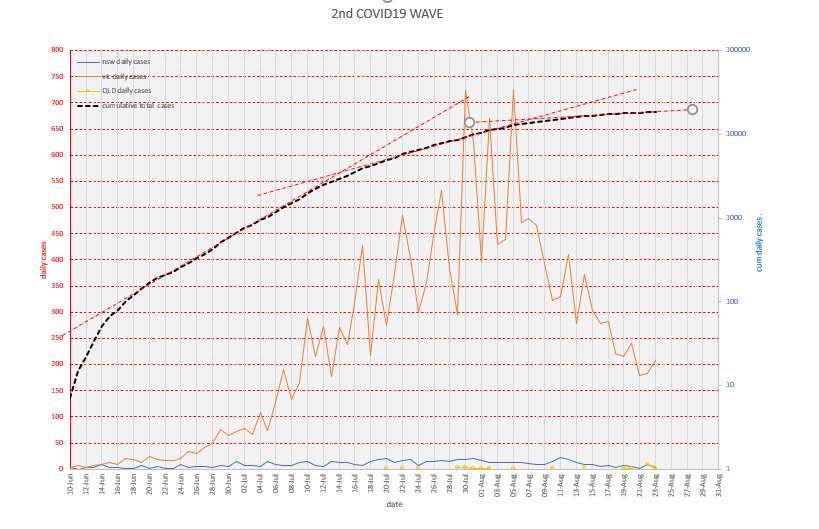
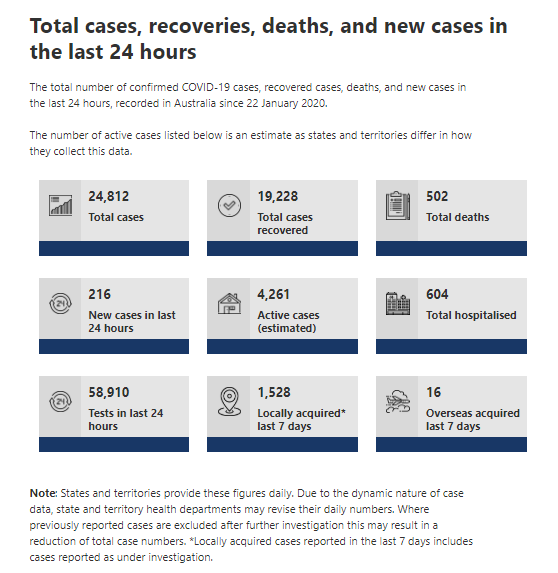
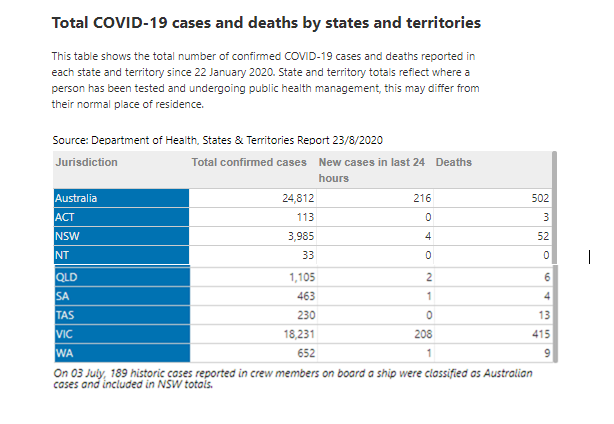
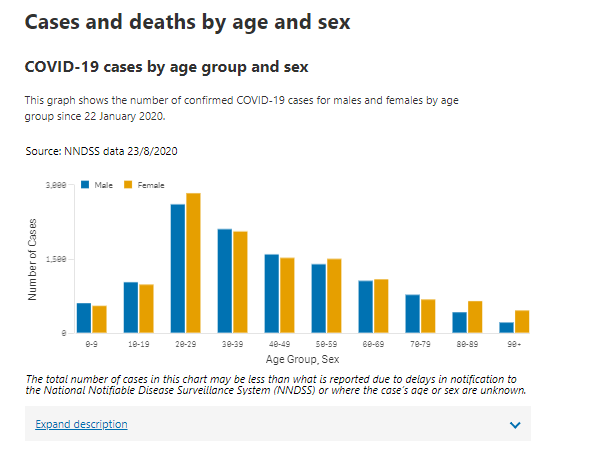
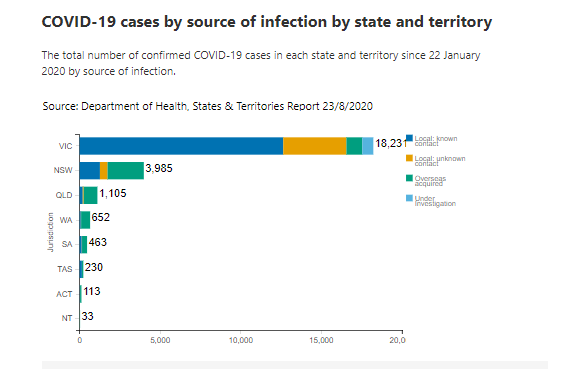
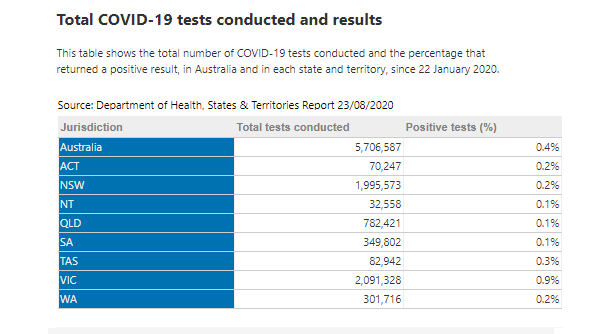
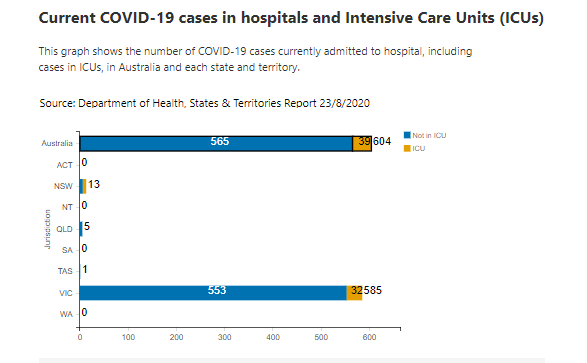

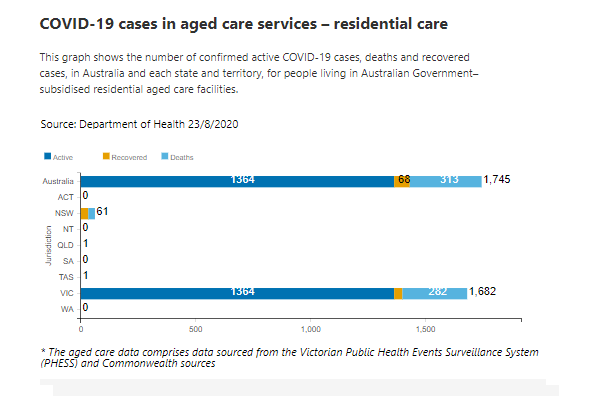
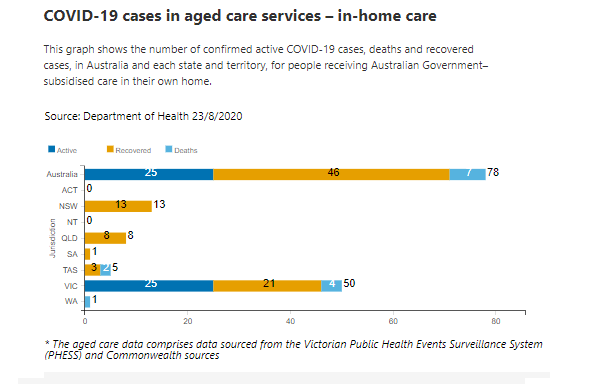
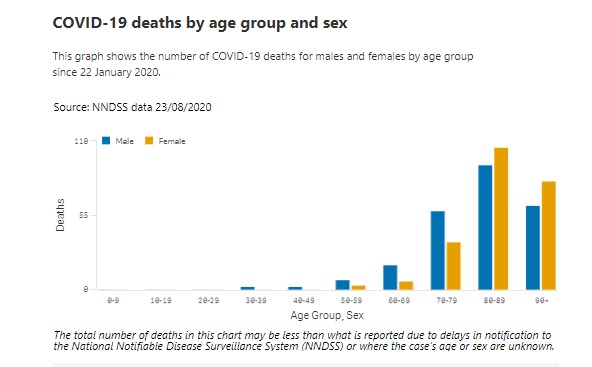
https://www.abc.net.au/news/2020-08-23/victoria-coronavirus-covid-daily-cases-reported/12586812Key points:
Health officials are investigating cases linked to a ward at the Peter MacCallum Cancer Centre and the Western Private Hospital in Footscray
The Premier said the lockdown strategy was working to "defeat this second wave"
Data has showed a spike in people using public transport in Melbourne last weekend
Victoria's Chief Health Officer has vowed daily coronavirus numbers will not climb above 300 again "under my watch", as the state recorded a further 17 deaths.
The Premier confirmed another 208 cases of COVID-19 and 17 deaths on Saturday, taking the state's death toll to 415 and the national death toll to 502.
The deaths include one woman and one man in their 60s, three men in their 70s, four women and six men in their 80s and two men in their 90s.
Eleven of the 17 are linked to aged care outbreaks.
There are 585 Victorians in hospital including 32 people in intensive care and 21 of those in ICU are on ventilators.
The number of healthcare workers with an active case of COVID-19 dropped to 536, down from 674 a day earlier.
The Department of Health and Human Services (DHHS) said it was investigating new cases linked to a ward at Melbourne's Peter MacCallum Cancer Centre and Western Private Hospital in Footscray.
Chief Health Officer Brett Sutton said the numbers were "bouncing around a little bit" but the state would not be seeing cases in the 300s or 400s again.
"Not under my watch," he said.
Professor Sutton said daily cases still needed to drop and people continuing to follow the basic rules like washing their hands, wearing masks properly and keeping their distance would help the most.
There are 3,920 cases with an unknown source — an increase of 82.
Professor Sutton said the number of active cases was likely lower than reported due to the definition of what was a recovered case, which would be clarified by National Cabinet next week.
Premier wants to reach 'Covid-normal' by Christmas
Premier Daniel Andrews warned Victorians the state was still a long way off from easing stage 4 restrictions, despite today being the halfway mark of the six-week lockdown.
He said he understood people wanted lockdown to be over but warned if the state opened up too soon, "it wouldn't last long".
"Then we'd be arguably in a worse situation than we are now," he said.
"We don't underestimate that there are many costs, some economic, some social, many very personal costs and there's going to be a massive job of repair. But I think we're up to that.
"I think the strategy is working, we're going to defeat this second wave and then we'll be able to begin the process of opening up."
Professor Sutton said it was "ambitious" to think cases would be in single digits by September 13, when stage 4 restrictions were due to end.
"I certainly hope we are in double figures," he said.
"We can't second guess what the transmission will be until we are closer to the date."
Mr Andrews said his goal was to get to a "Covid-normal" state by Christmas but it was "too early for us to be going through a catalogue of all the different restrictions as they might or might not apply".
Mr Andrews acknowledged the last few months had played havoc on people's mental health and said the Government would invest in services and programs to help people recover.
Racing Victoria clears 88 staff from coronavirus
The latest figures come after two new outbreaks in Melbourne were revealed on Saturday in industries that have been allowed to continue operating under stage 4 restrictions.
Racing Victoria locked down seven Cranbourne stables yesterday but lifted those restrictions this afternoon after 88 close contacts of a COVID-positive staff member returned negative results.
A spokesperson said any staff identified as close contacts and ordered to isolate for 14 days by the DHHS could not resume work.
Licensed jockeys Alexandra Bryan, Michael Walker and Jason Benbow have all been cleared to resume riding.
Melbourne yesterday after several crew members tested positive to COVID-19.
DHHS said in a statement on Sunday that seven people linked to the set had now tested positive.
The entire production team including the cast and crew are isolating.
Data shows Victorians moving around more
Meanwhile, data supplied by the State Government showed Victorians were moving around more.
While residents in Melbourne and regional Victoria were staying home during the week, they were travelling more on the weekend.
The data showed "signs of lockdown fatigue emerged on the weekend," according to the Government's mobility report.
There was a spike in people using public transport in Melbourne last weekend, compared with the previous weekend, according to the data.
Most metropolitan local government areas recorded a rise in public transport use last Saturday, particularly in Port Phillip that saw train and tram use up 37 per cent and bus use up 25 per cent.
The age cohort that caught public transport the most was senior Myki cardholders with a 20 per cent increase compared to 11 per cent for students and 2 per cent for full-fare travellers.
Mr Andrews said it was not surprising movements were up last weekend when the weather was "absolutely beautiful".
"It's just an obvious thing — lots of sunshine last weekend, that meant people were out. This weekend, not much sunshine and I expect when we're reporting movement next week that will be reflected in those numbers."
Government launches Click for Vic initiative
The State Government has launched a new campaign to help connect Victorians with local producers and restaurants as the pandemic puts tourism on hold.
The $1.5 million Click for Vic campaign will be rolled out across television, print, radio, digital and social media channels to encourage Victorians to support one another by buying local produce, meals, alcohol and even music.
Mr Andrews said the business support fund had approved 126,420 applications in total, delivering $1.3 billion.
"We don't rule out doing more, that is a very big direct financial support," he said.
The Premier said the worker support payment, which was originally $300, before being increased to $450, had reached almost 25,000 people.
https://www.msn.com/en-au/news/australia/vic-cases-drop-authorities-still-cautious/ar-BB18eMd7Victorians eager to live a freer existence cannot depend on lockdowns loosening in three weeks' time, authorities say.
A six-week period of tough restrictions in Melbourne and slightly less onerous rules in the regions are due for review on September 13.
New infections on Friday dipped below 200 for the first time in five and half weeks - showing restrictions are working.
Premier Daniel Andrews and Chief Health Officer Brett Sutton say the latest infection numbers are encouraging, but maintain a cautious tone, and offered no clarity on the pathway out of lockdowns.
Prof Sutton said that while lockdowns were reducing general community transmission it was outbreaks in aged care and disability that remained a challenge.
"They might end up with a baseline level of transmission that is harder to shift," he said.
There are 1732 active cases across 126 aged care sites. The 10 most infected aged care facilities range between 107 and 209 cases each, according to government data.
Across the state there are 4421 active cases, including 626 people in hospital, of which 40 are receiving intensive care.
The state's death toll is now at 385 after nine more deaths were recorded on Friday.
The premier urged Victorians not to waver in their lockdown efforts, saying the state was not even halfway through an "ultra-marathon".
He was pleased the daily testing rate in the 24 hours to Friday was above 20,000 after dipping lower earlier in the week.
Meanwhile, the state's inquiry into the hotel quarantine scheme heard from a security supervisor that he "had to keep an eye on" a couple of guards to ensure they didn't leave their posts, fall asleep or spend too much time on their phones.
He had assumed they were fired, but later discovered they had been moved to a different hotel.
The supervisor, who was subcontracted by Wilson Security, said he was concerned by the amount of "subcontracting on top of subcontracting".
https://www.msn.com/en-au/news/australia/coronavirus-continues-to-spread-in-melbourne-hospitals/vi-BB18gF19Dr Stephen Parnis is an emergency physician in Melbourne and former Vice President of the Australian Medical Association. He says the outbreaks are indicative of the virus and it's highly infectious nature.
https://www.msn.com/en-au/news/australia/victoria-records-another-208-cases-of-coronavirus-and-17-more-deaths/ar-BB18gsAuFarmers flag need to move across border as calving season begins
On Saturday, Mr Andrews flagged the possibility of a border bubble between Victoria and South Australia to free up movement for small communities who shop and get their fuel across the border because it's closer.
Mr Andrews said he had been talking with SA Premier Steven Marshall yesterday about the arrangement.
"We'd like to see the borders open. But I'm not critical of those who have closed their borders and I'm only focused on trying to make those arrangements as best we possibly can."
Mr Andrews said he was happy to follow up on individuals who could not wait two weeks for a permit to cross the NSW border due to the beginning of calving season.
"It's a very busy time. These are not decisions that we have made, they have been made by other governments. I'm not criticising those other governments. We're working very closely.
"On the issue of people wanting to move livestock, I'm more than happy to chase that up."
https://www.msn.com/en-au/news/australia/vic-govt-could-face-largest-class-action-in-australian-history-for-quarantine-fiasco/ar-BB18gWM9A growing number of experts believe the Victorian hotel quarantine fiasco will result in major legal proceedings being initiated against the state Labor government, Sky News host Rowan Dean says.
“When I suggested on this show that Dan Andrews and his chief medical bureaucrats could be charged under Victoria's own recently-introduced workplace manslaughter laws … Labor and the luvvies all squealed from the rafters and the ABC even fact-checked the claim and said there was ‘zero chance’,” Mr Dean said.
However, he pointed out Robert Gottliebsen wrote a detailed article for the Australian Business Review about why the political class are themselves liable under the industrial manslaughter law and concludes as that Dan Andrews and his top public servants could be charged for their negligence.
Dean of Swinburne Law School Mirko Bagaric arrived at similar conclusions saying, “the hotel quarantine fiasco is likely to lead to the largest class action in Australian history, one that effectively could bankrupt the state of Victoria”.
“The test for negligence is an objective one; it is irrelevant how pure or sanctimonious were the intentions or motivations of those individuals involved,” he said.
Mr Dean said “sanctimonious intentions and motivations also known as identity politics and virtue-signaling are insidious forces that are destroying and corrupting so many of our once prized businesses and institutions”.
https://www.msn.com/en-au/news/australia/jim-s-mowing-founder-delivers-another-brutal-letter-to-daniel-andrews/ar-BB18gB3l#image=6The self-made millionaire founder of Jim's Mowing has upped the ante on his war with Victorian Premier Daniel Andrews with another scathing open letter.
David 'Jim' Penman has written to the state's leader for the third time in as many weeks about how harsh lockdowns have destroyed the lives and livelihoods of tens of thousands of Victorians.
Melbourne is in Stage 4 lockdown while the rest of Victoria is in Stage 3 as the battle to control the state's second deadly wave of new infections continues.
Sole business operators were initially permitted to continue working alone at sites under the Victorian Department of Health and Human Services before Mr Andrews abolished the exemption a week after the latest lockdowns were enforced August 2.
Mr Penman followed up his latest letter with another furious tirade on Premier Andrews, labeling him a dangerous man.
'He is the worst political figure Australia has had in my lifetime,' he told Daily Mail Australia on Sunday.
'No other leader has done as much damage he has caused by plunging a knife into the heart of the state.'
'The longer he remains in office, the more dangerous and toxic he becomes.'
'He has shut down an entire industry by rejecting detailed guidelines drawn out by his own government department.'
Adding to Mr Penman's fury was a photo emailed to him of a maintenance worker without a face mask mowing lawns at a school in Caulfield, in Melbourne's south-east.
'What I find outrageous is that school and council workers are fine to work in a group but a sole operator working alone with no contact with the public can't,' he said.
'My inbox is inundated with terrible stories. On Saturday, I got a call from a woman on a bridging visa who had just bought a dog-washing business.
'She has been left completely destitute and can't even buy food.'
In his latest letter, Mr Penman asked the Premier why he overturned the expert advice of his own health department and what evidence he has of sole operators with no contact with other workers or the public being serious risk to public health?
'Your bungled hotel quarantine program has brought the state of Victoria to its knees,' Mr Penman wrote on Thursday.
'Small businesses are the lifeblood of Victoria’s economy. You have pushed a knife through their heart.'
'If you don’t have the decency to provide answers, then you do not deserve to remain as Premier.'
The only response Mr Penman says he's received from the Premier is a comment made at a press conference that he would not depart from the advice given by experts.
'But, Mr Premier, this is exactly what YOU have done,' Mr Penman said.
'Mr Premier, mum and dad businesses may not support your Party with fundraising dinners and union dues, but they are still Victorians who deserve your respect. They deserve your answers.
He ended his letter by urging Victorians to demand answers from their leader.
'To fight this infection we must make sacrifices, but the sacrifices should be both necessary and fair. Anything else undermines our unity and the support for any restrictions,' he pleaded.
Mr Penman remains hopeful lockdown restrictions will soon ease and vowed to continue hounding the Premier for answers.
'I haven't forgotten him,' he told Daily Mail Australia.
'What I find incomprehensible is why his own party is putting up with this man and the dreadful mistakes he's made.'
Melbourne was plunged into Stage 4 lockdown on August 2, where residents are required to carry permits to go to work, and need to carry a piece of paper signed by their employer when outside of their homes.
The rest of Victoria is in Stage 3 lockdown, with people only allowed to leave for essential reasons, such as grocery shopping or medical appointments.
https://www.msn.com/en-au/news/australia/hundreds-of-people-defy-melbourne-lockdown-to-go-shopping/ar-BB18h1PxMelburnians have flocked to shopping centres and markets across the city despite stage four lockdown restrictions.
Hundreds of shoppers ignored social distancing measures to cram into stores to buy groceries, with retailers unable to control customers.
Shopkeepers said they were becoming frustrated with shoppers who ignored health guidelines or don't understand the safety measures in place.
'It's dangerous,' fruit market owner Ahmed Alex from Lalor in the city's north told 9News. 'It's not easy.'
Poor weather did little to dampen the spirits of eager shoppers, with residents in coronavirus hotspot areas including Whittlesea crowding into stores.
Chief Medical Officer Professor Brett Sutton reiterated people must stay home amid stage four coronavirus lockdown measures in Melbourne.
'Food and drink is take away in Victoria, so people need to take it and they need to go home,' he said.
Markets were able to open in Melbourne on Saturday after the state government backflipped on a decision to ban them on Friday.
John Davidson from The Cripps Family Fish Farm said a ban would have left many traders out of pocket.
'We'd be looking at $20,000 to $25,000 worth of loss if these markets failed to go ahead,' he said.
VICTORIA'S COVID-19 NUMBERS FOR AUGUST 23
* 208 new cases
* 17 more deaths, taking the state toll to 415 and the national figure to 502
* Latest deaths include a woman and a man aged in their 60s, three men in their 70s, six men and four women in their 80s, and two men in their 90s
* 11 of the deaths are linked to aged care
* 4012 active cases in Victoria
* 3920 'mystery' cases, including 82 new cases
* 585 people are in hospital with 32 in intensive care, of whom 21 are on ventilators
* 536 active cases among healthcare workers
* 2,091,328 test results received - an increase of 20,747 since Saturday
RESTRICTIONS UNTIL SEPTEMBER 13
* Stage four in metropolitan Melbourne, including an 8pm-5am curfew, 5km travel limit from home, one-hour outdoor exercise, widespread workforce shutdowns including child care
* Stage three protocols for regional Victoria
FINES
* Police issued 199 fines in the past 24 hours, including 73 for curfew breaches and 20 for failing to wear a face mask
Melbourne residents still have about another three weeks of stage four restrictions ahead of them before they are revised on September 13.
Melburnians can only leave their homes to exercise for one hour only, to shop for necessities like food, to give or receive medical care, or for study or work.
Those who break the rules face an on-the-spot fine of $1,652.
Regional Victorians are under slightly less onerous level three restrictions for the same period.
Professor Sutton said restrictions would not be lifted in full until community transmission was eradicated.
He said people must expect to continue to wear protective face masks in public after restrictions are eased.
Victoria recorded 208 new cases of coronavirus on Sunday and 17 deaths.
Meanwhile, hearings for state's inquiry into the failed hotel quarantine program resume on Monday with more testimony from hotel security staff.
The inquiry last week heard poor-performing security guards were moved between the quarantine hotels, while returned travellers feared catching the coronavirus during their stay.
199 VICTORIANS FINED FOR VIRUS BREACHES
Victoria Police have fined 199 people for breaching coronavirus restrictions, including a man who told officers he 'got bored at home'.
The man from Altona Meadows was pulled over 19km away in Brimbank - in breach of the 5km travel radius rule - and told police he was aware of the restrictions but wanted to visit a friend.
Of the people fined in the 24 hours to Sunday, 73 were in breach of the 8pm to 5am curfew in metropolitan Melbourne, 20 were pinged for failing to wear a mask when leaving home and 14 were picked up at vehicle checkpoints.
Five men found inside a vehicle in Airport West told police they were 'just out chilling'.
Police were called to an address on the Mornington Peninsula to reports of loud music and found two women and three men drinking together.
When asked why they were breaching restrictions on gatherings they said, 'We are *****s', according to police.
A man was also seen leaving a petrol station in Glen Eira after curfew.
He told police he had been buying chocolate for a friend with diabetes who had low blood sugar.
'When asked to produce chocolate he admitted to lying and produced cigarettes he had just purchased,' police said in a statement on Sunday.
Police conducted 3869 spot checks on people at homes, businesses and public places across the state.
Some 316,136 spot checks have been conducted since March 21.
https://www.msn.com/en-au/news/australia/man-who-got-bored-at-home-among-199-victorians-fined/ar-BB18gIG9A man who told police he "got bored at home" is among almost 200 Victorians to be fined for breaching COVID-19 public health orders in the past 24 hours.
Twenty people were fined for failing to wear a mask when leaving home and 73 were fined for breaching Melbourne's strict 8pm curfew.
It comes as the state recorded 208 new coronavirus cases today and 17 further deaths.
Authorities have conducted a further 3,869 checks on people at homes, businesses and public places across the state and 5,538 vehicles were stopped at vehicle checkpoints.
In total, 199 fines were issued.
Among those fined was a man from Altona Meadows who was pulled over by police in Brimbank.
He told police he was visiting a friend, admitting to being aware of the restrictions but he "got bored at home".
A group of five men found inside a vehicle in Airport West who told police they were "just out chilling" were also fined.
In a separate incident, police were called to address on the Mornington Peninsula to reports of loud music and discovered two women and three men drinking together.
When asked for reason for breaching the directions, they stated "we are *****s".
A fine was also issued to a man observed leaving a petrol station in Glen Eira after curfew, who told police he had just been buying chocolate for a friend with diabetes who had low blood sugar.
When asked to produce the chocolate, he admitted to lying and produced cigarettes he had just purchased.
